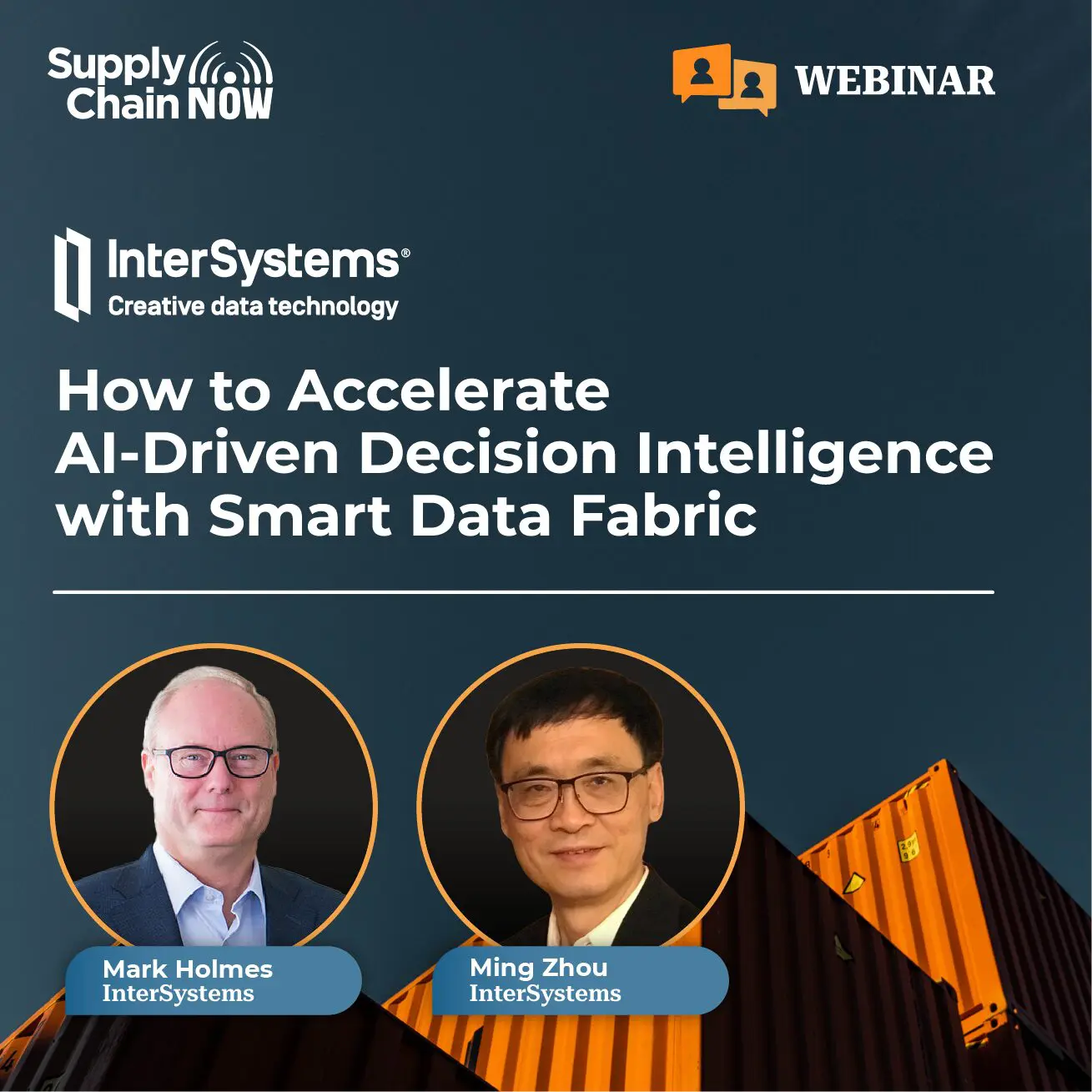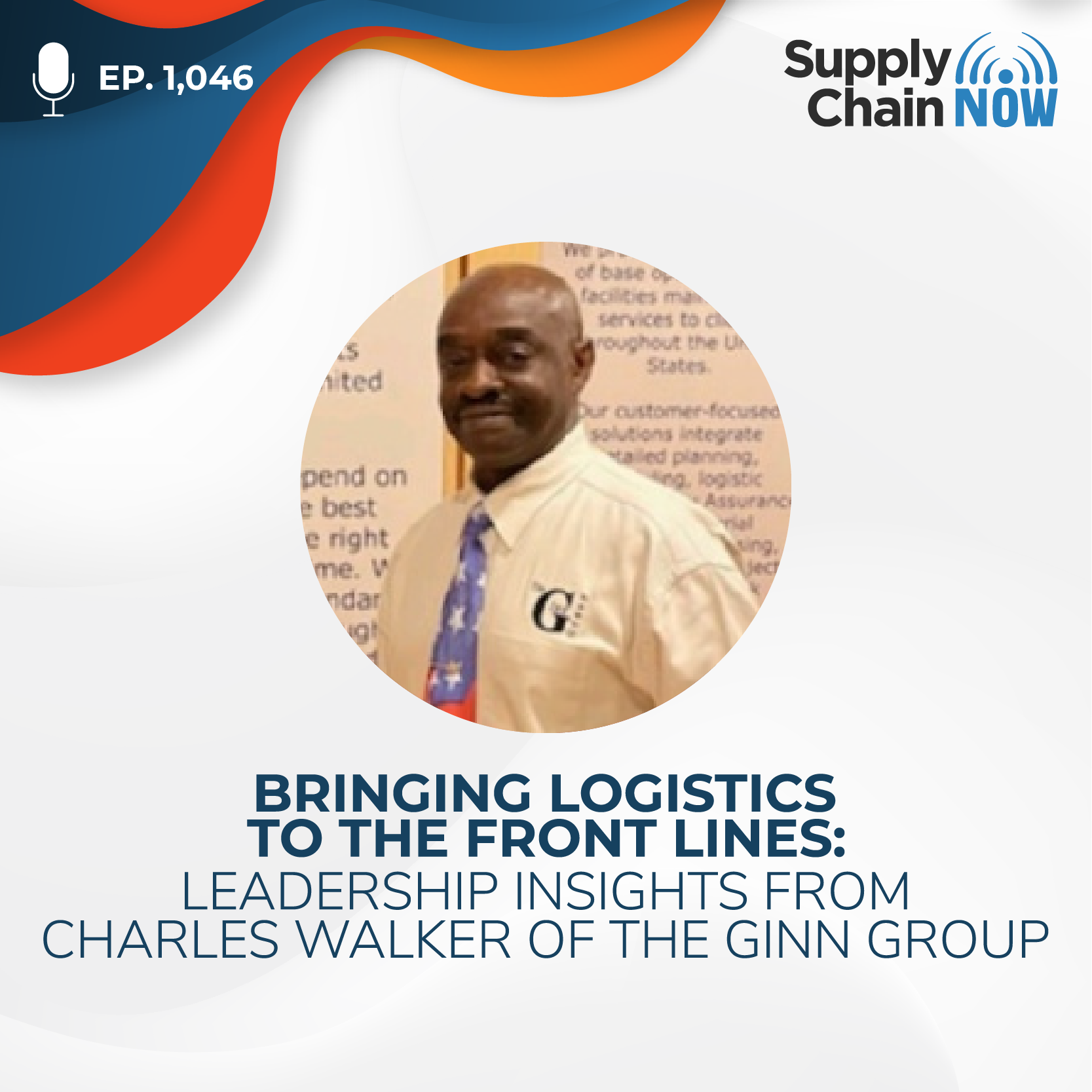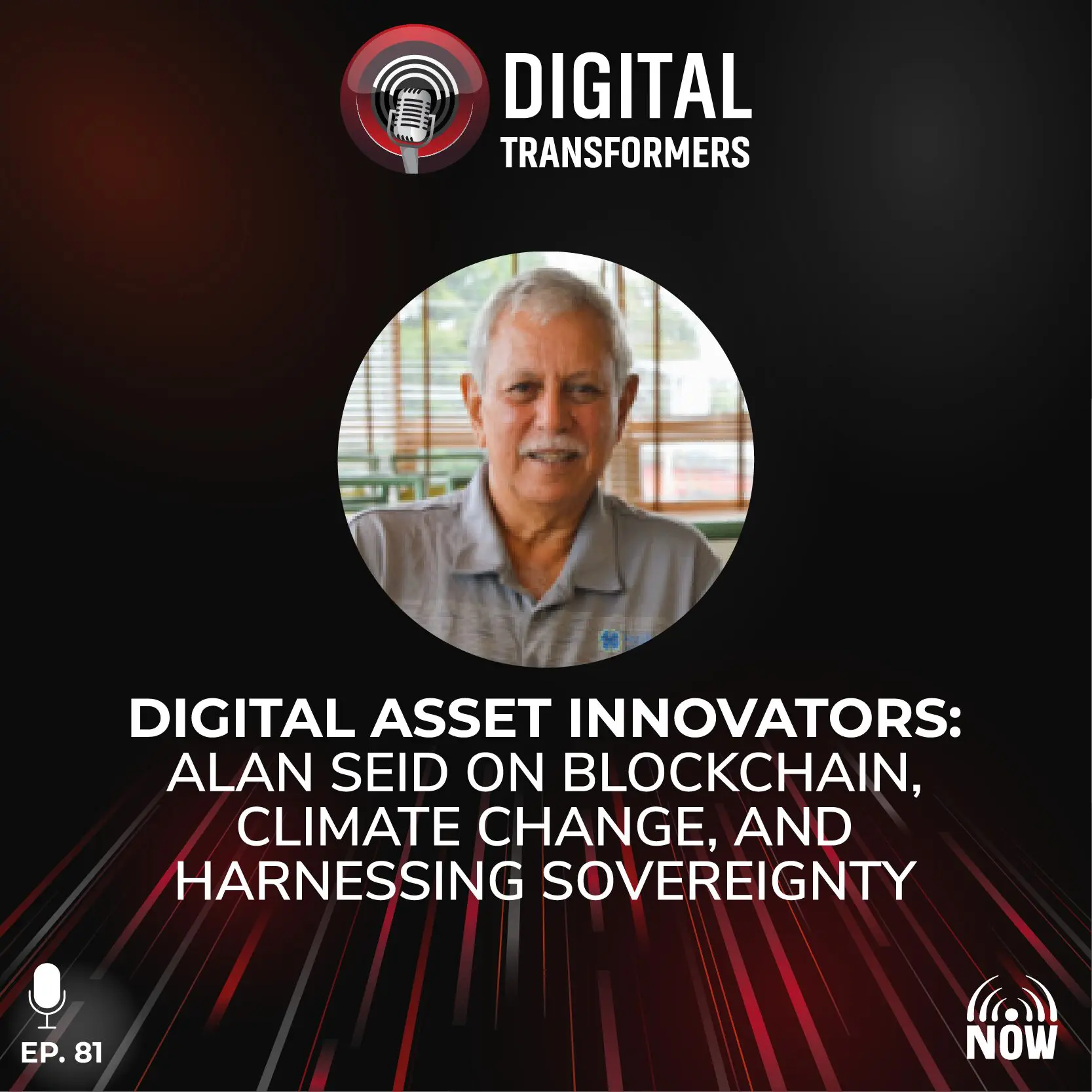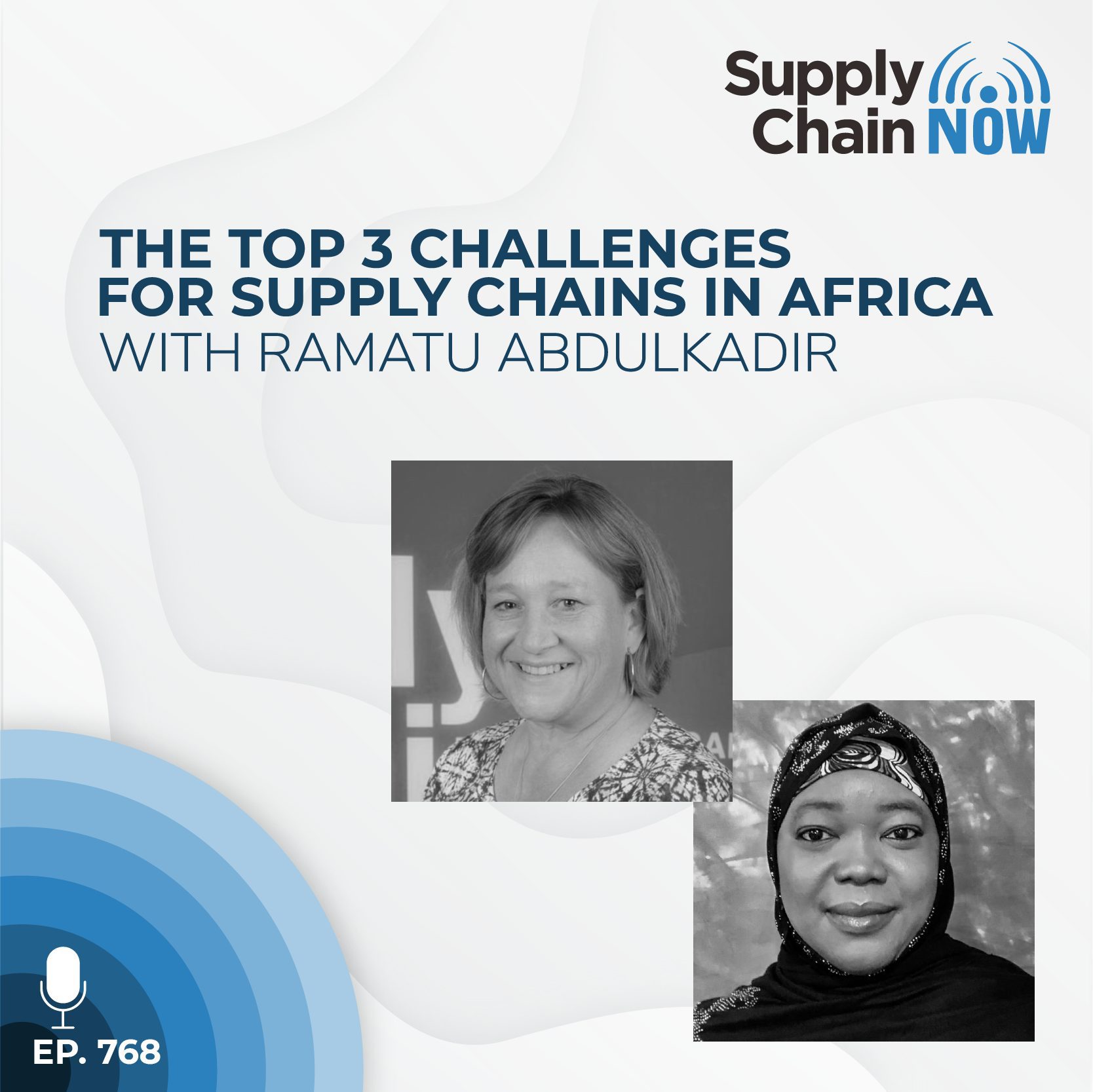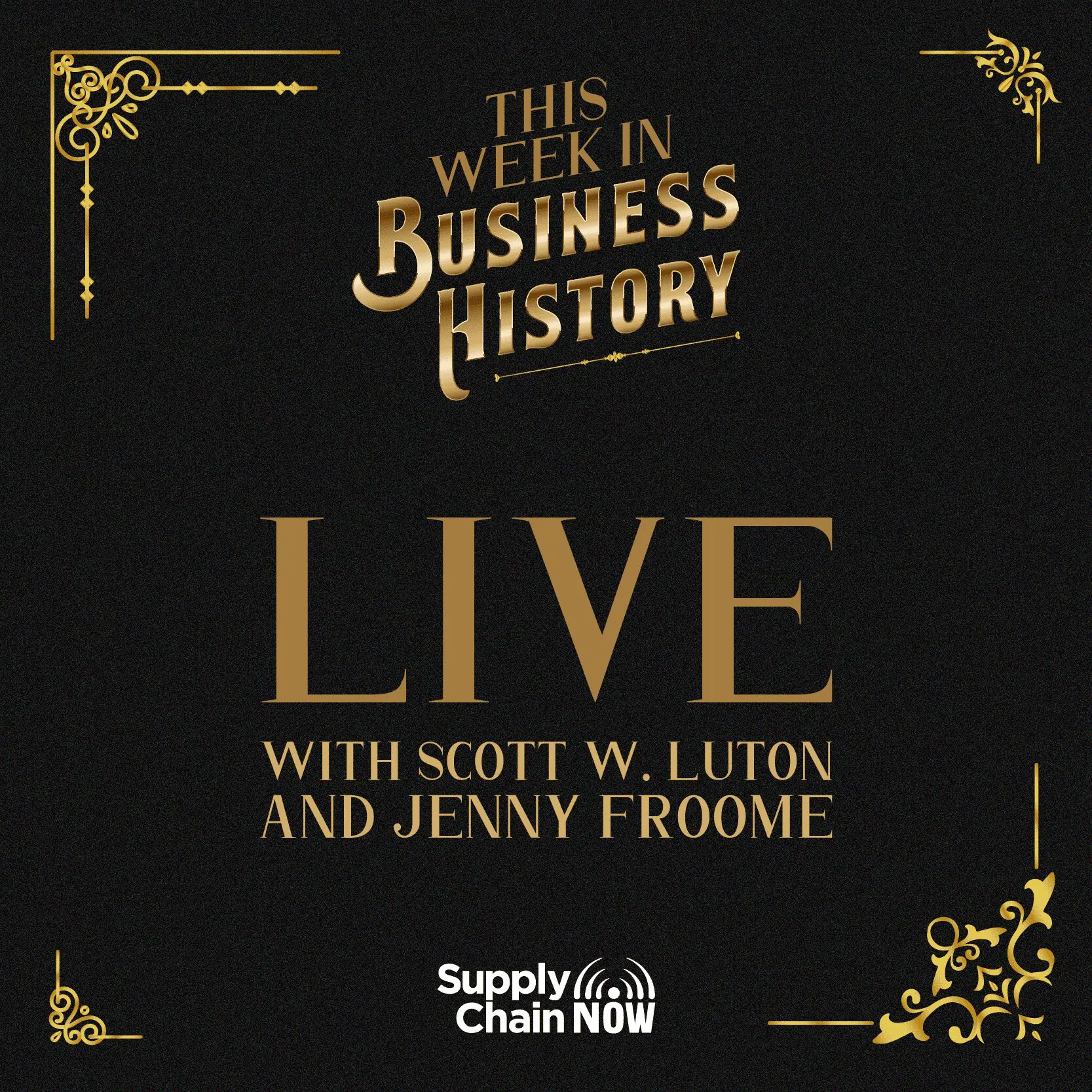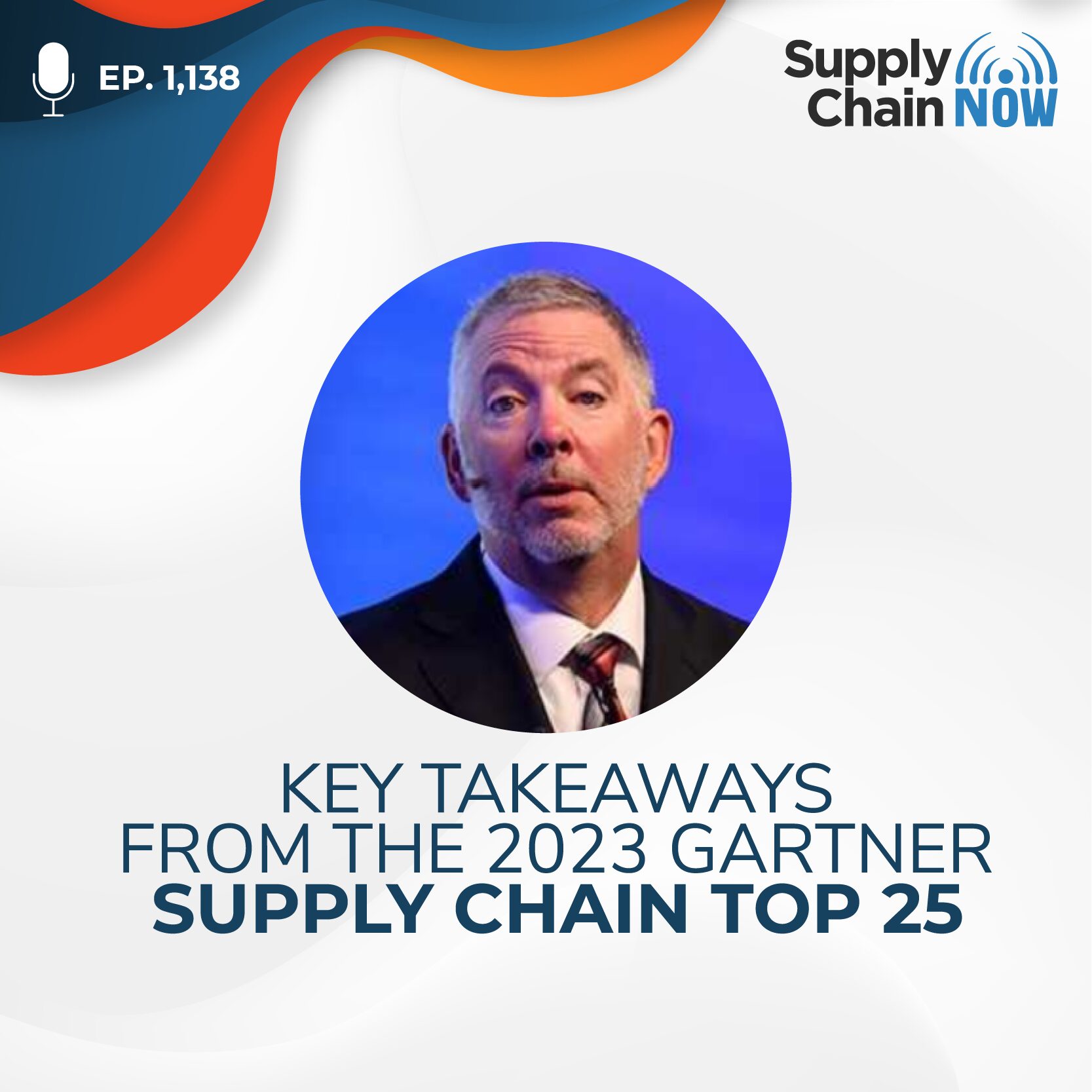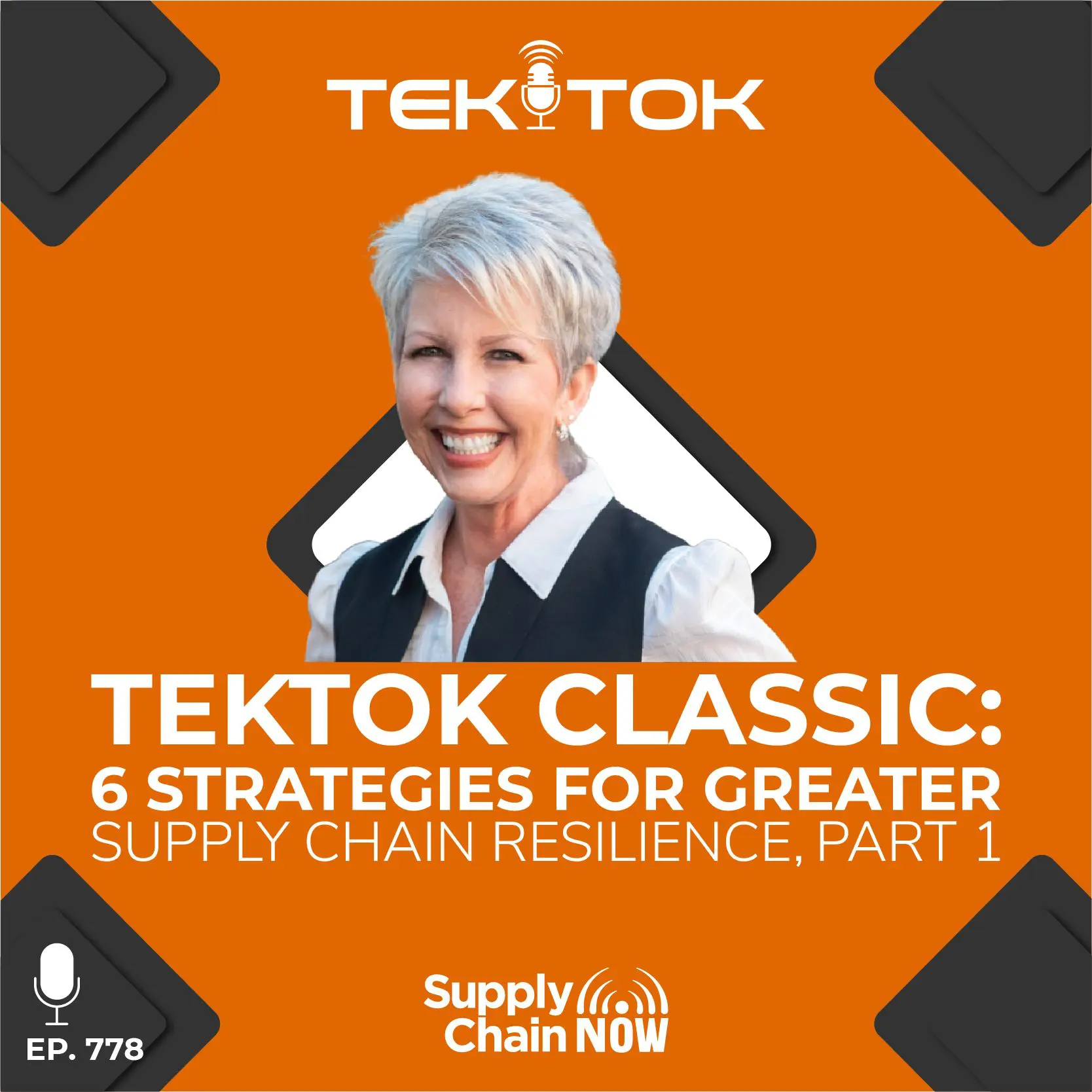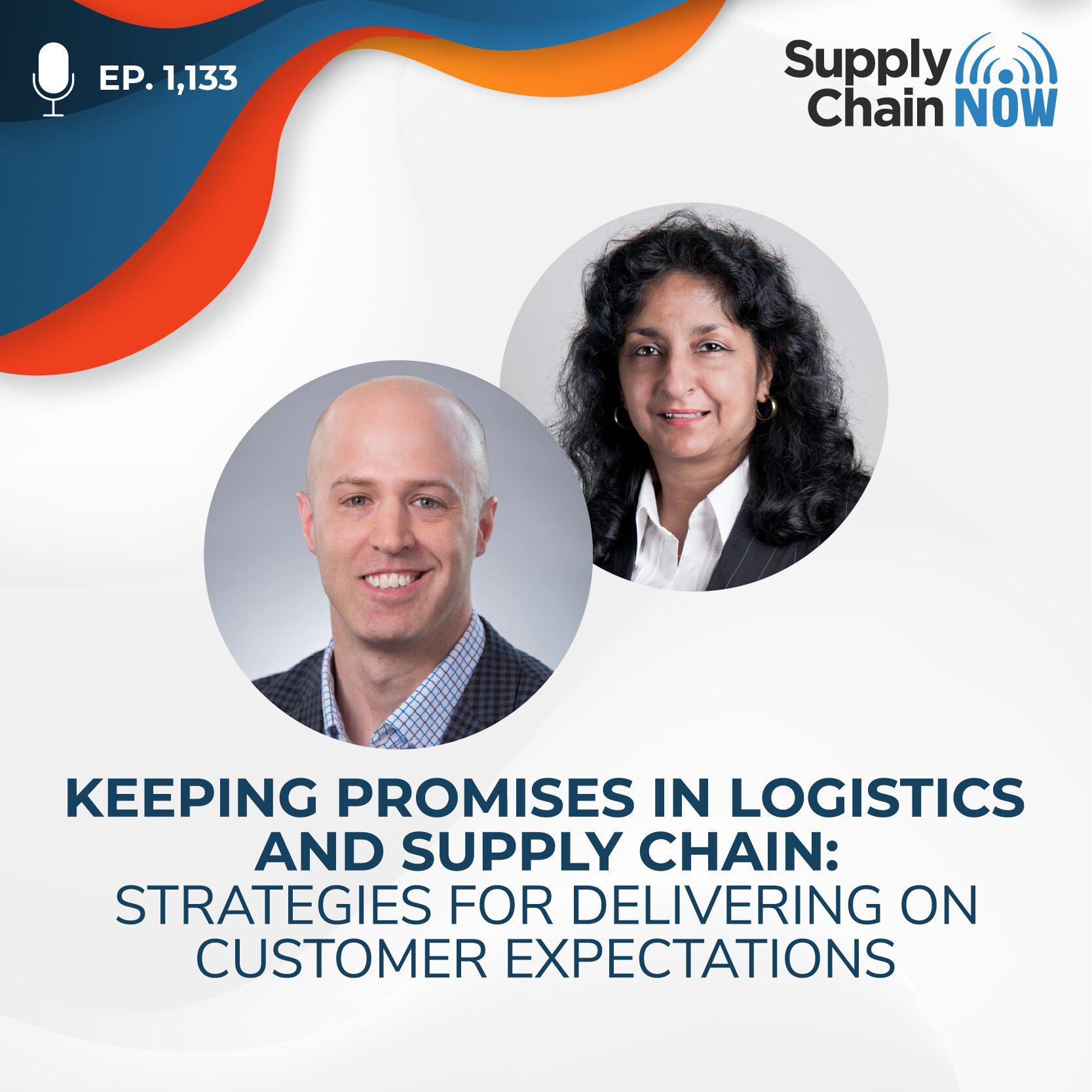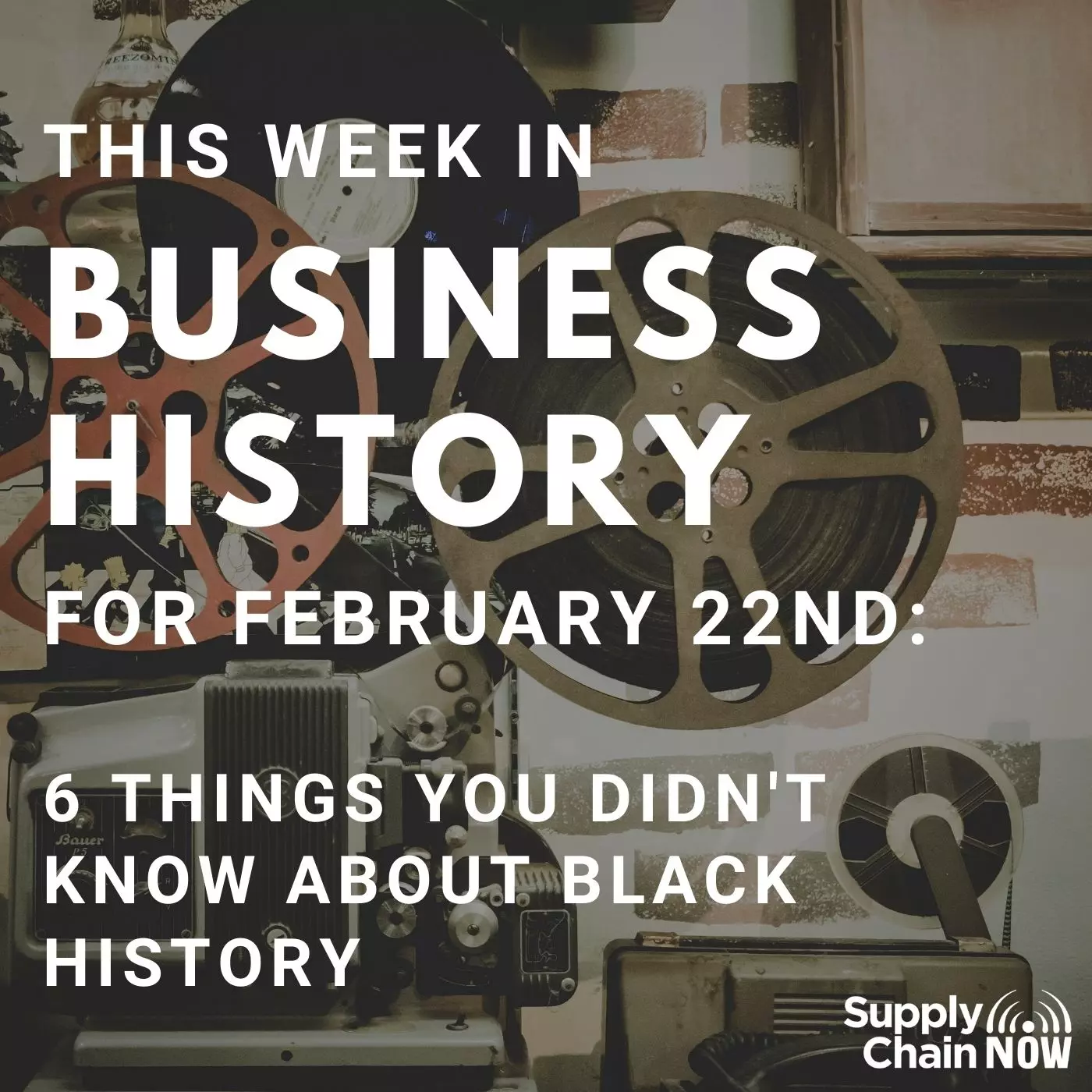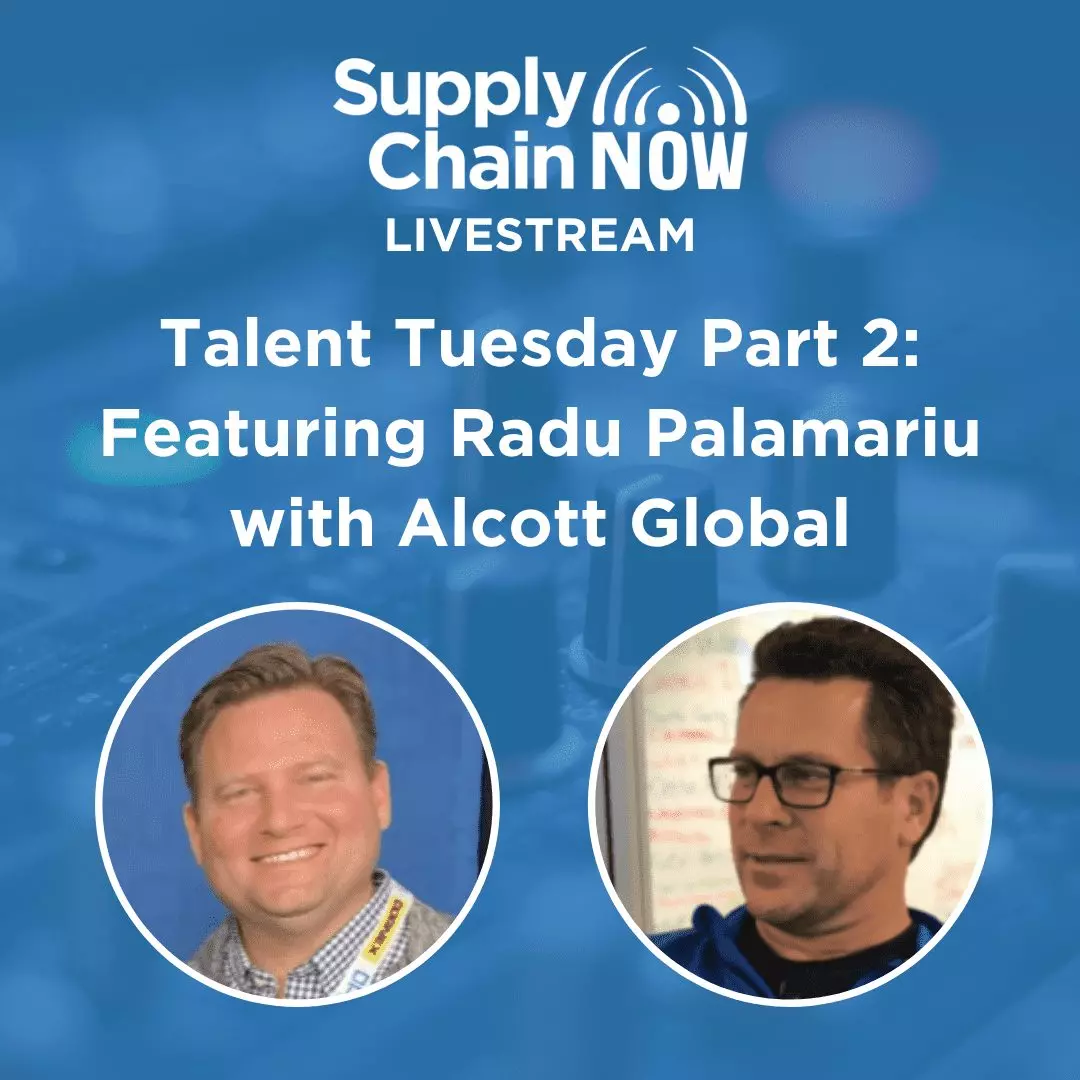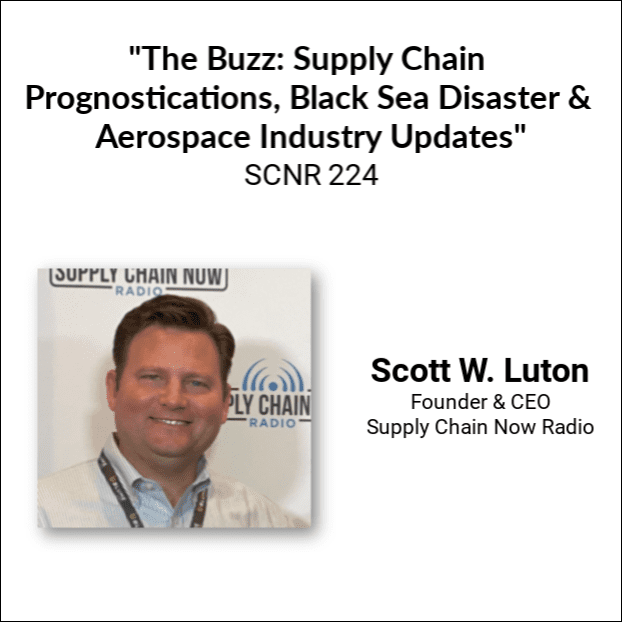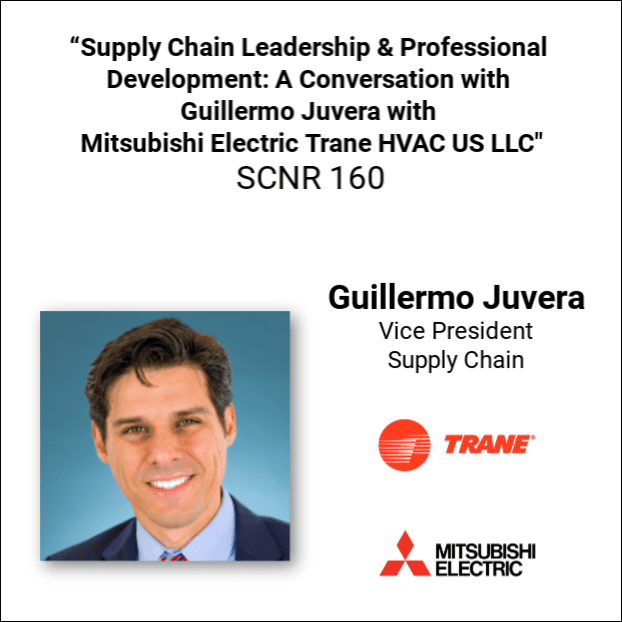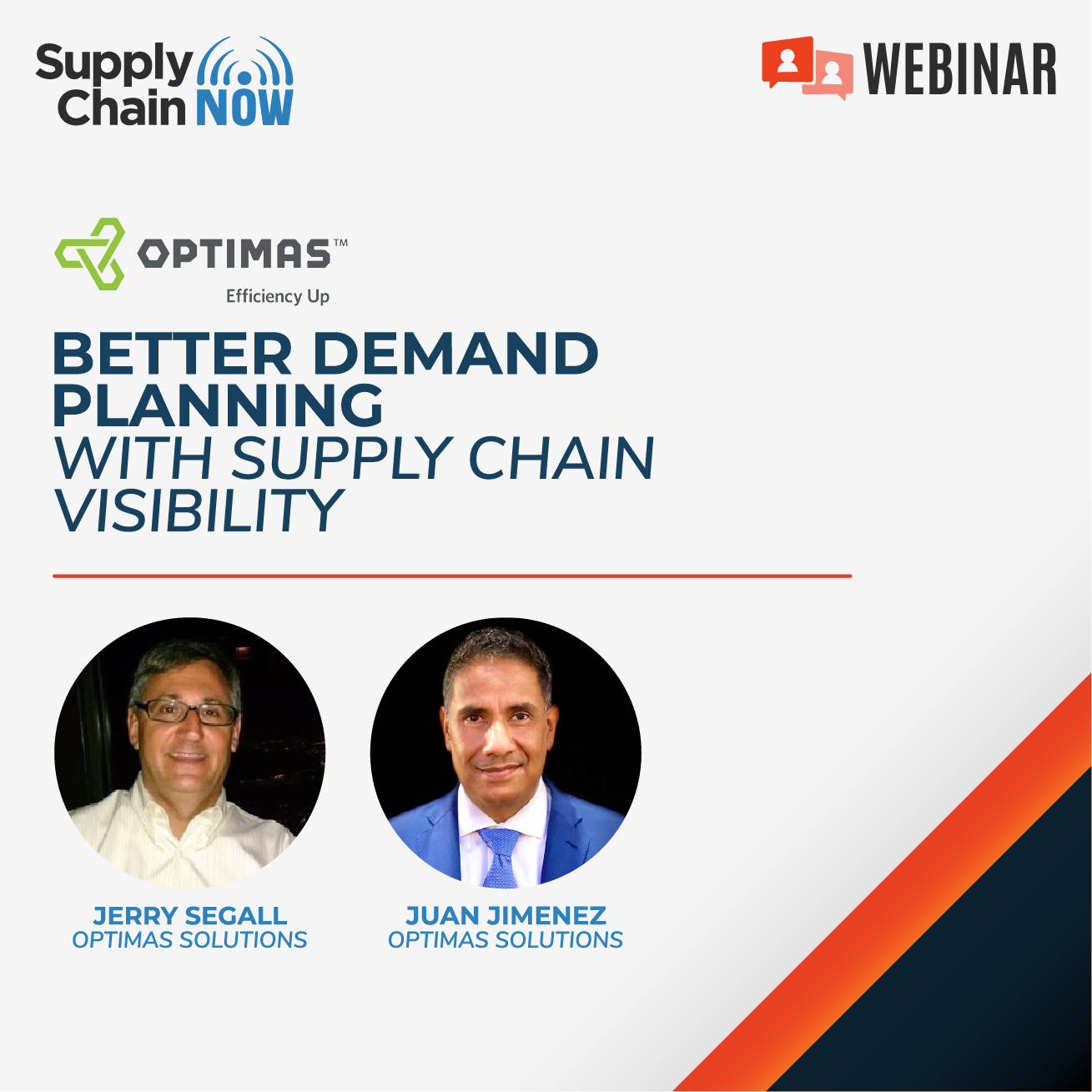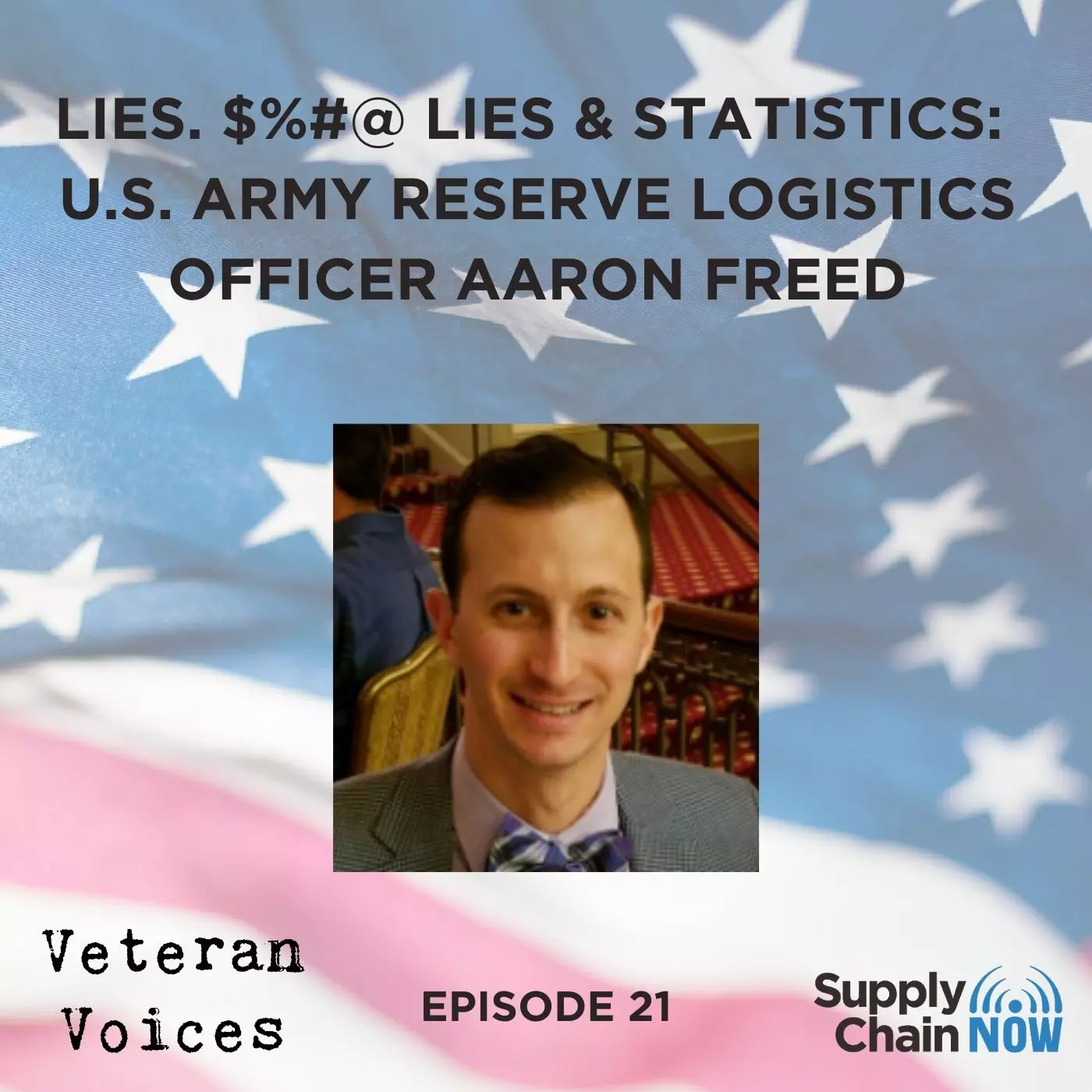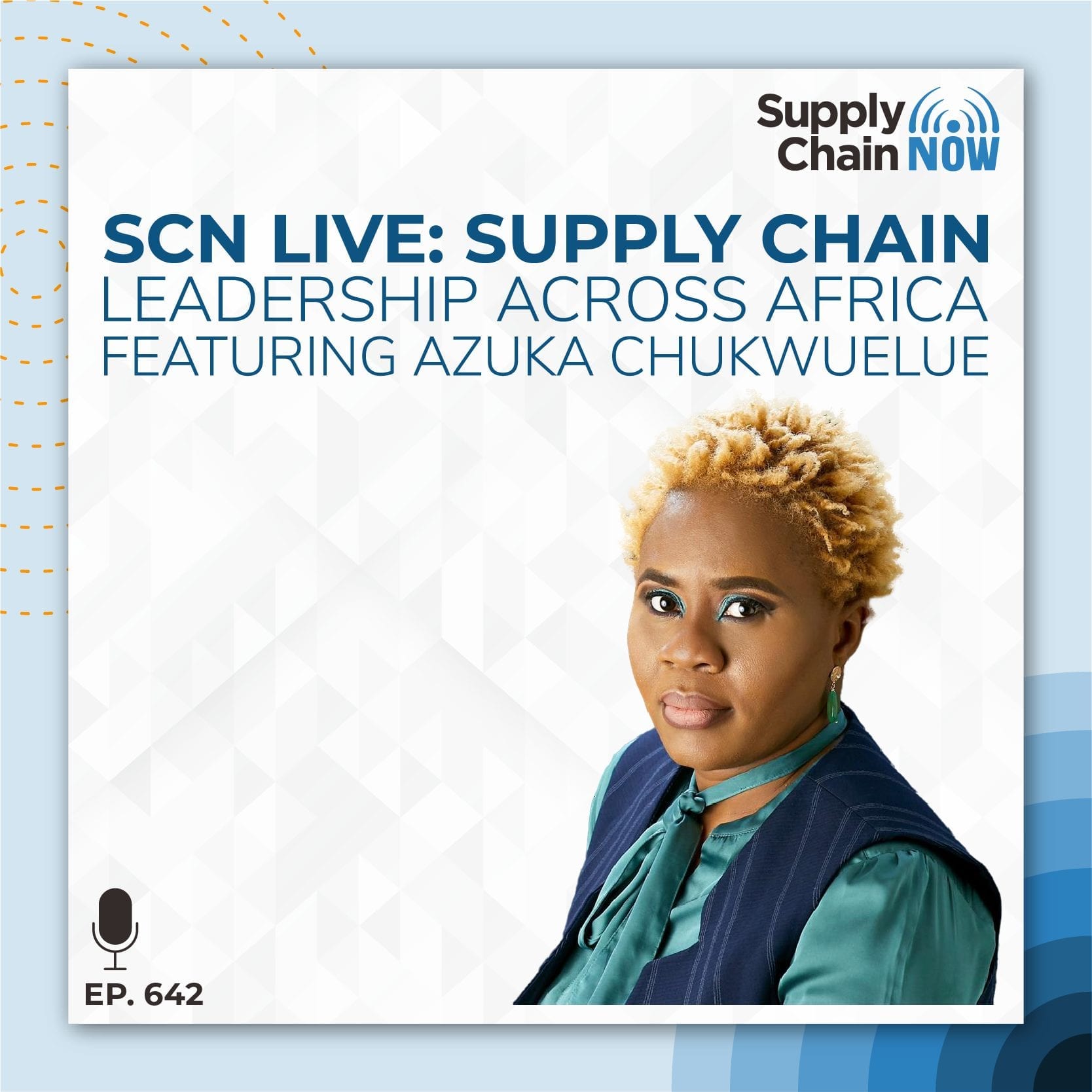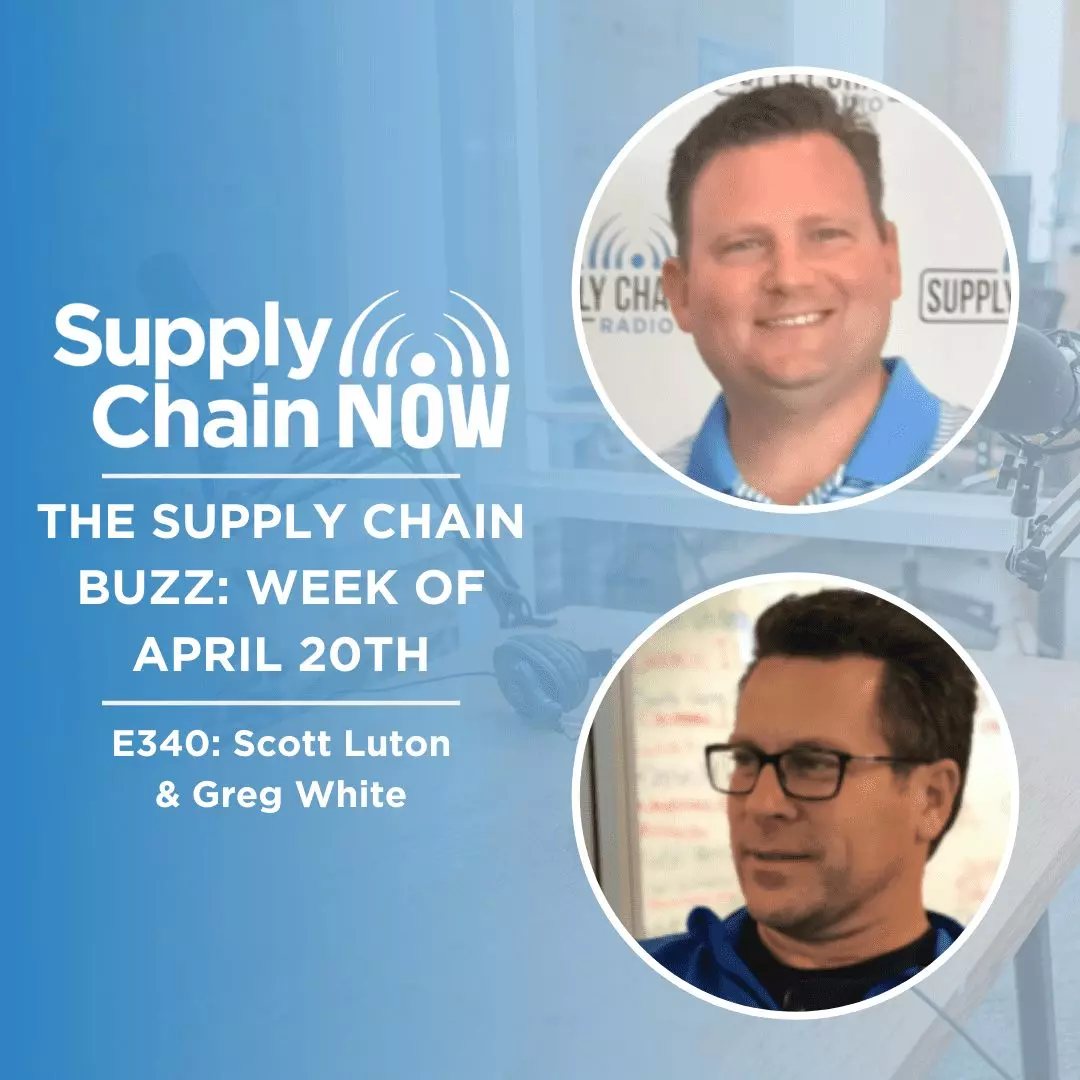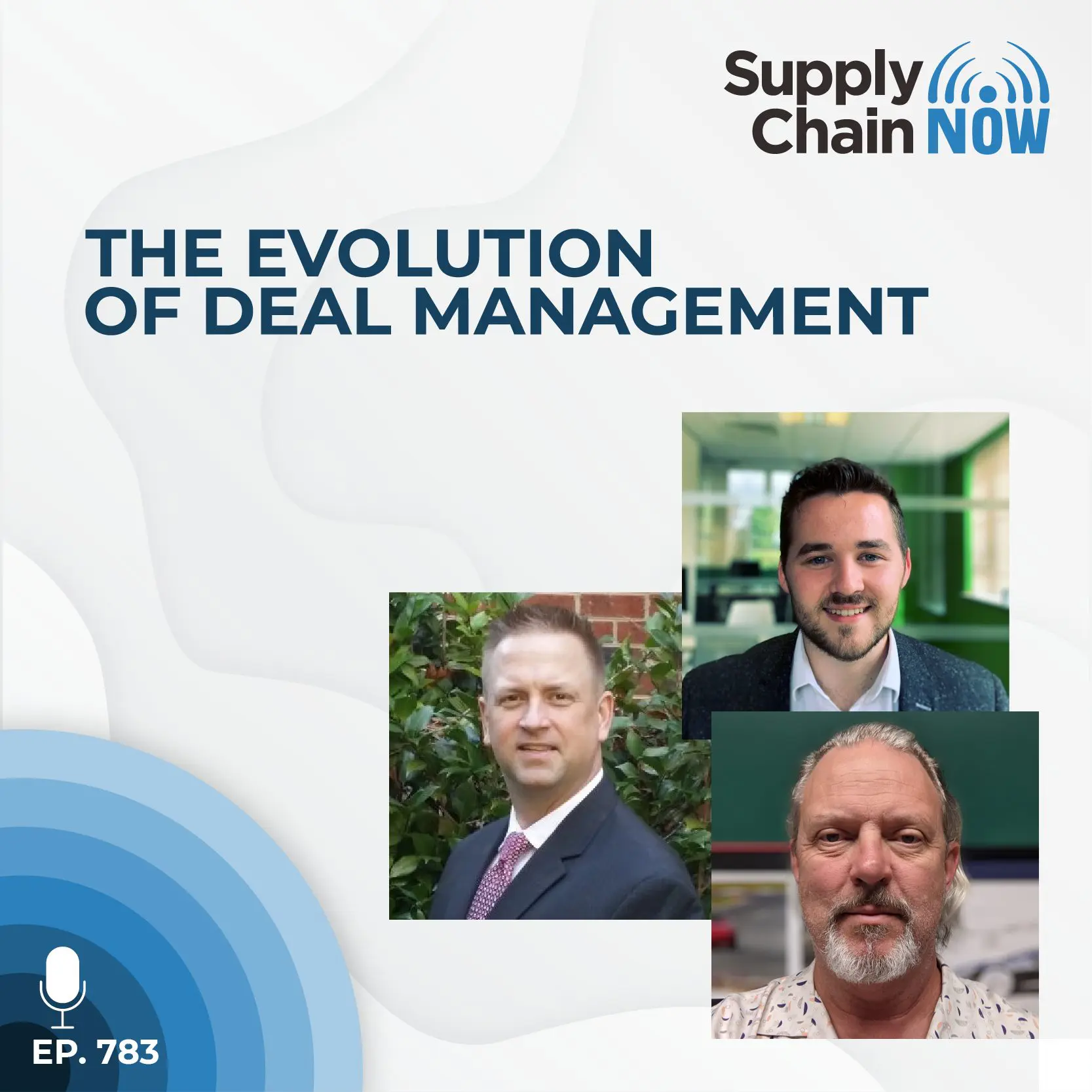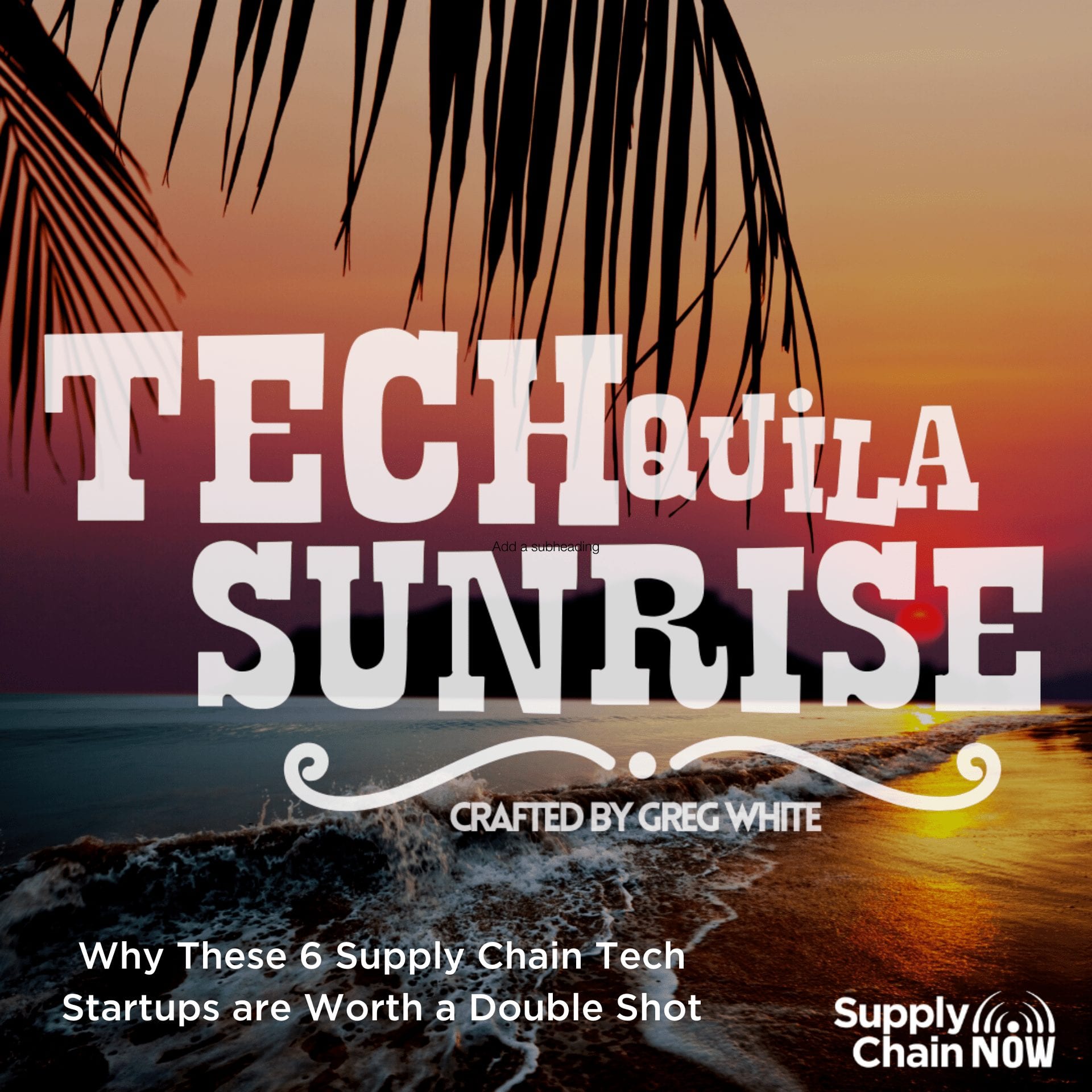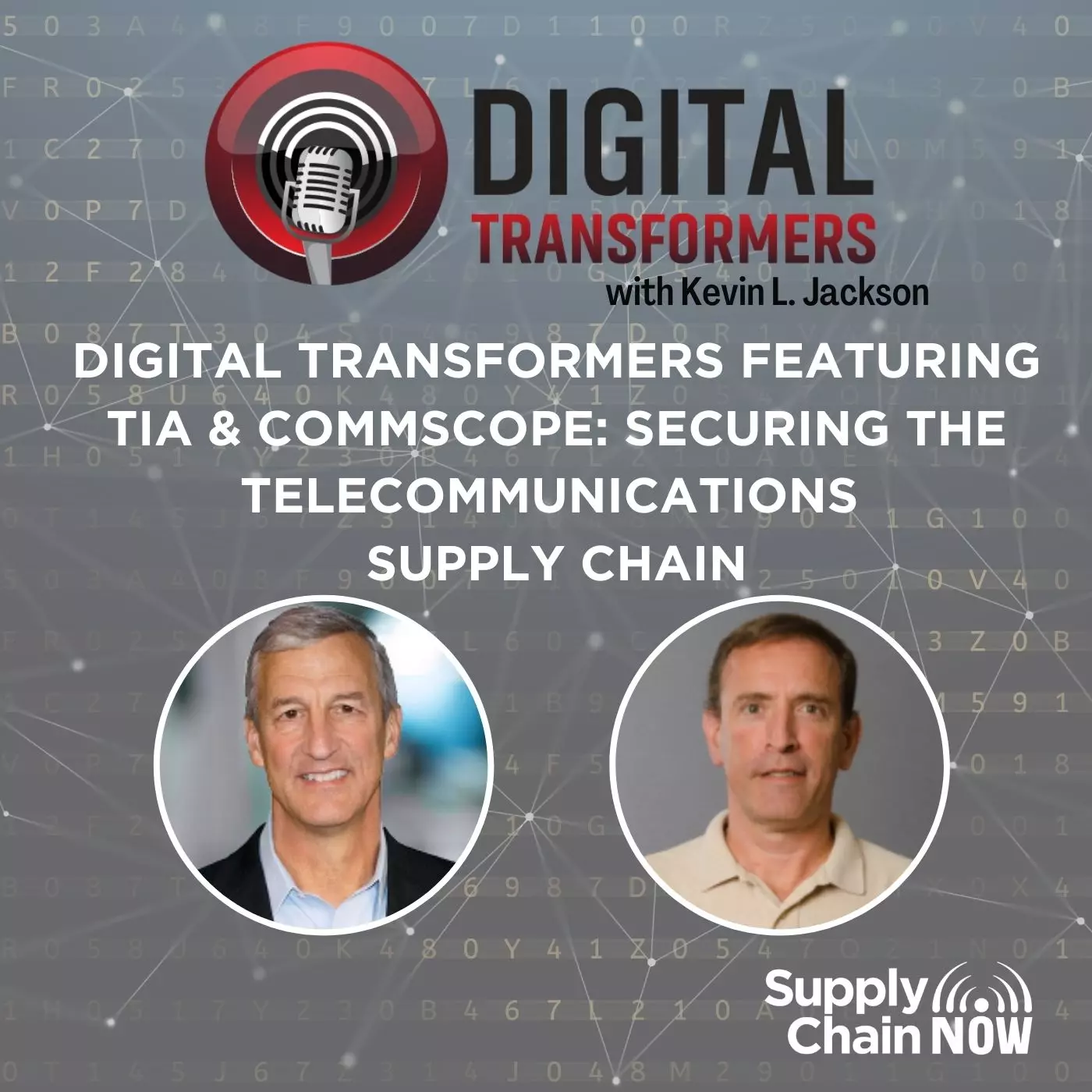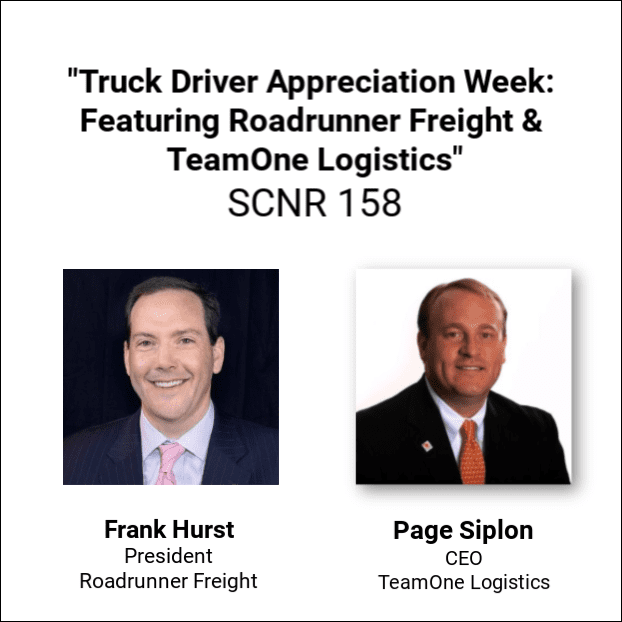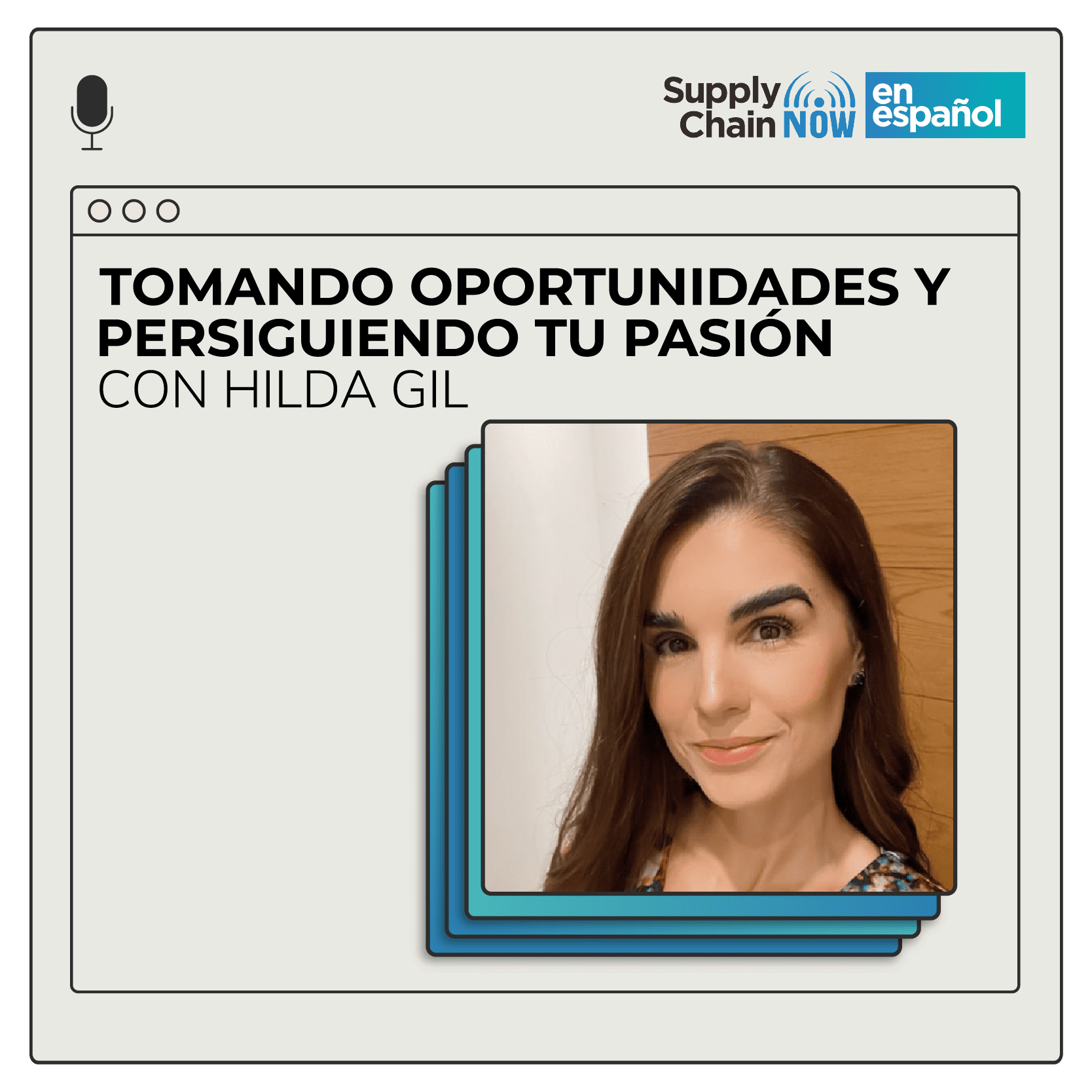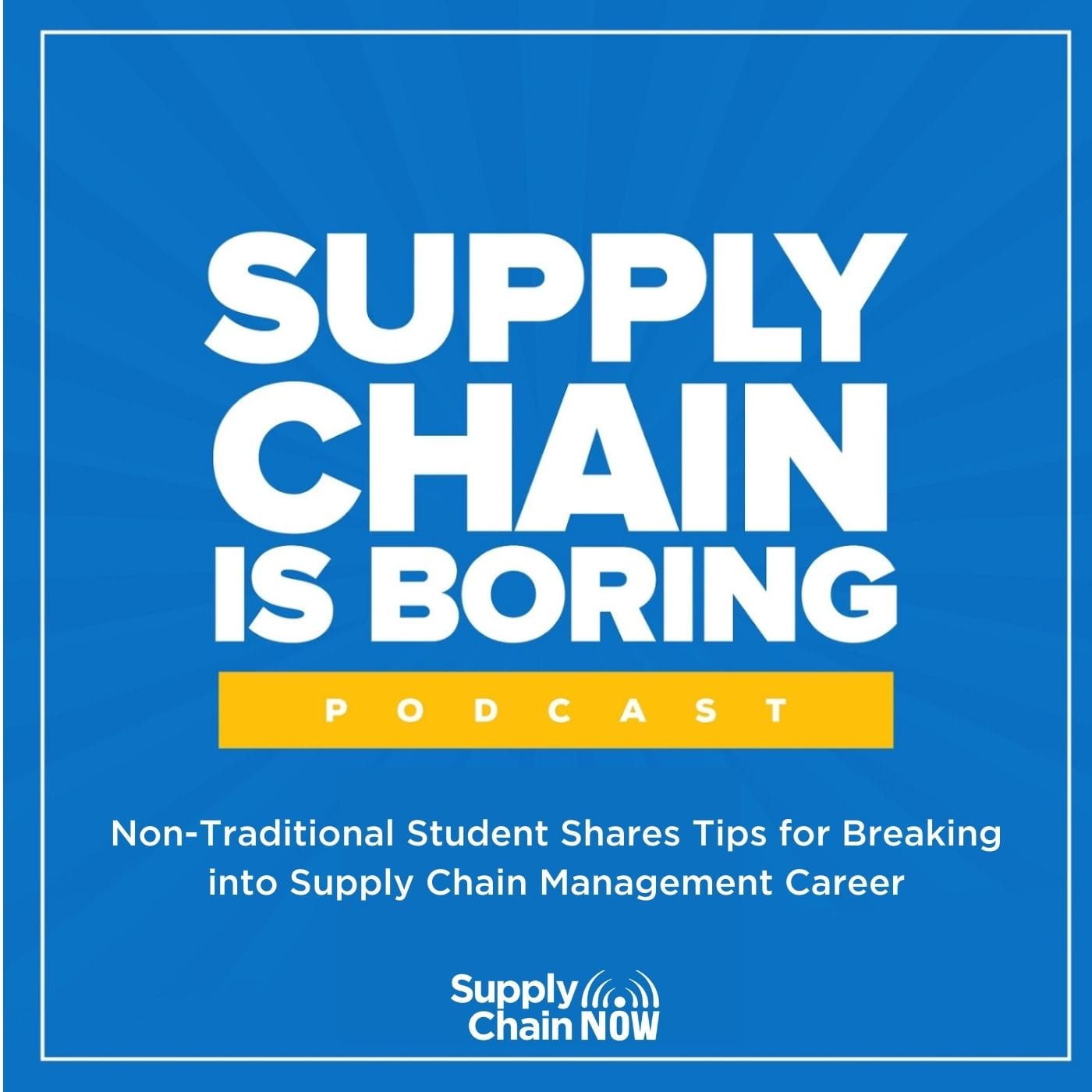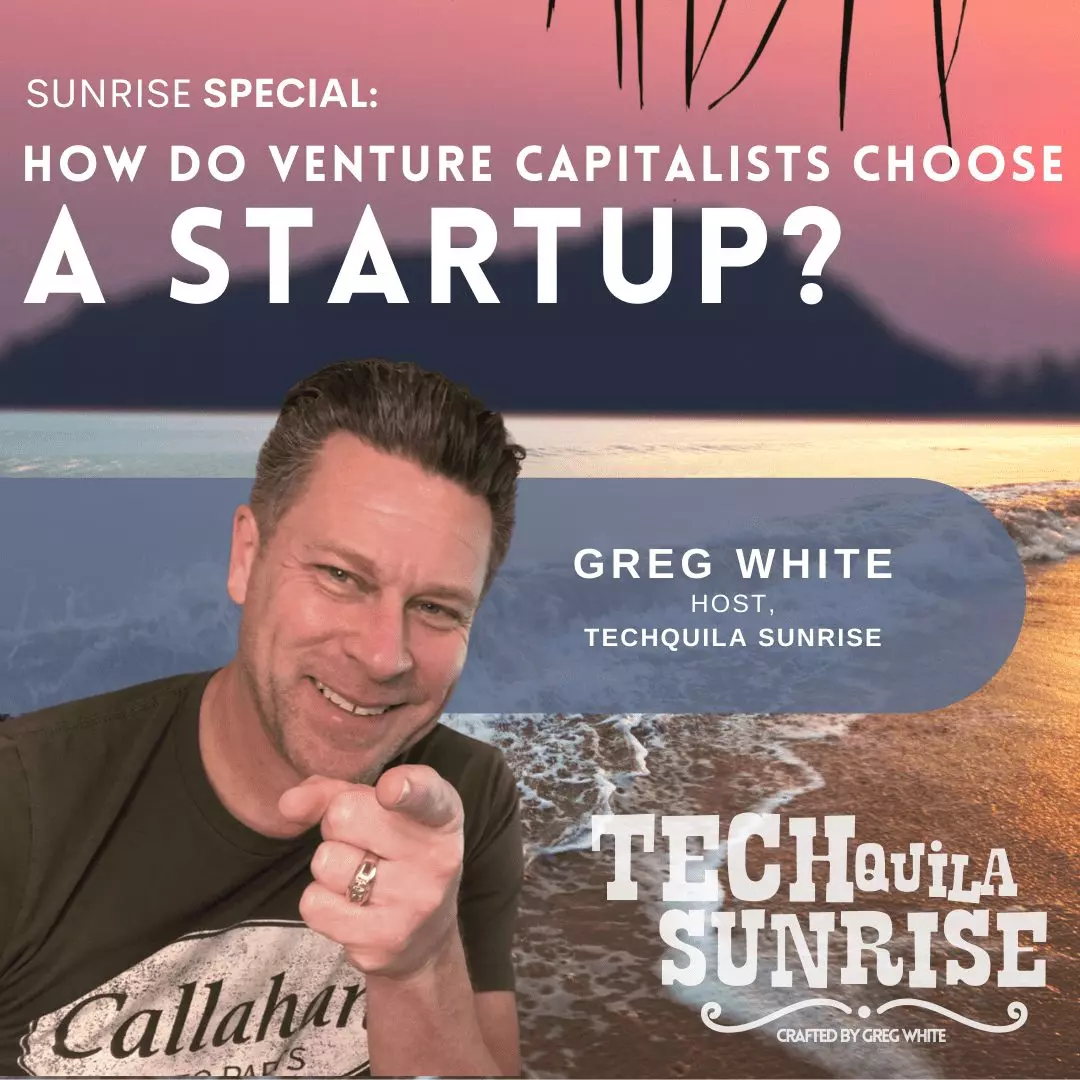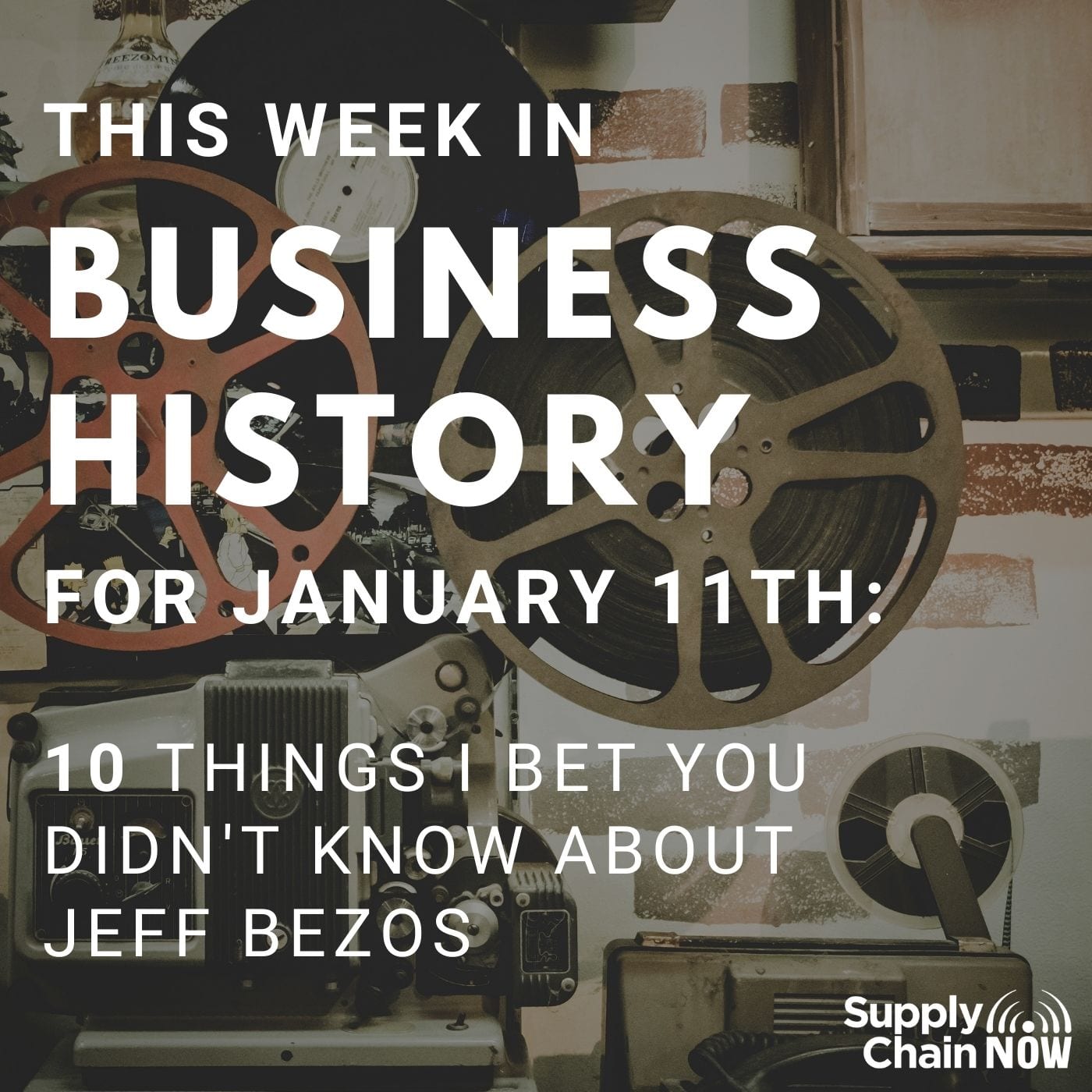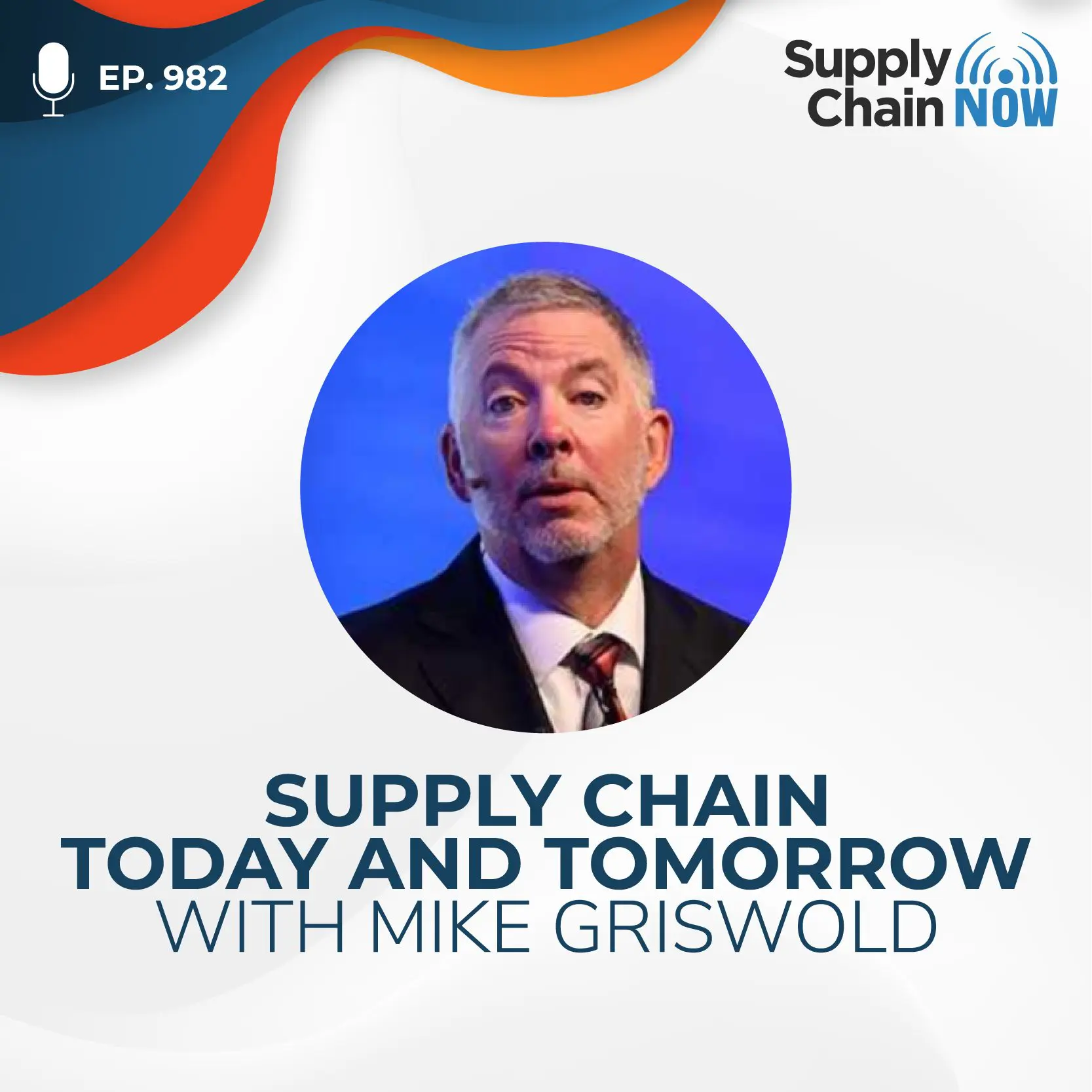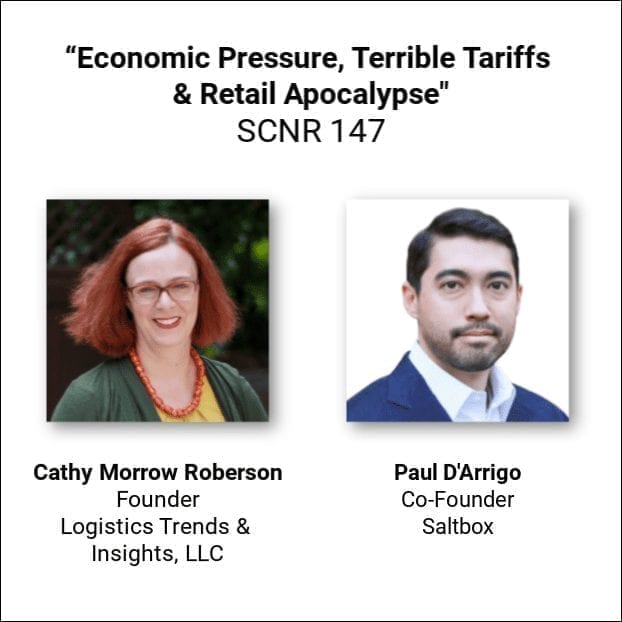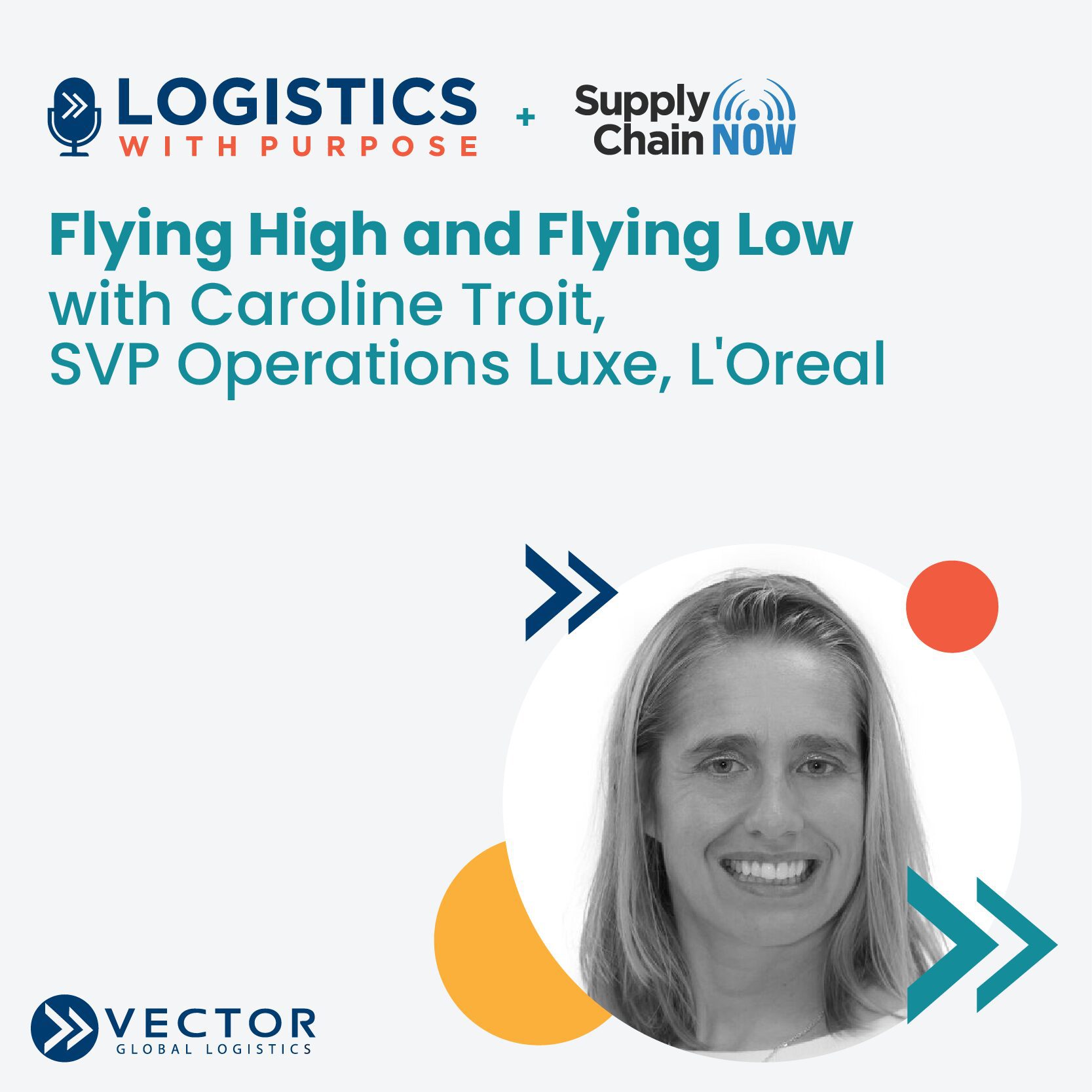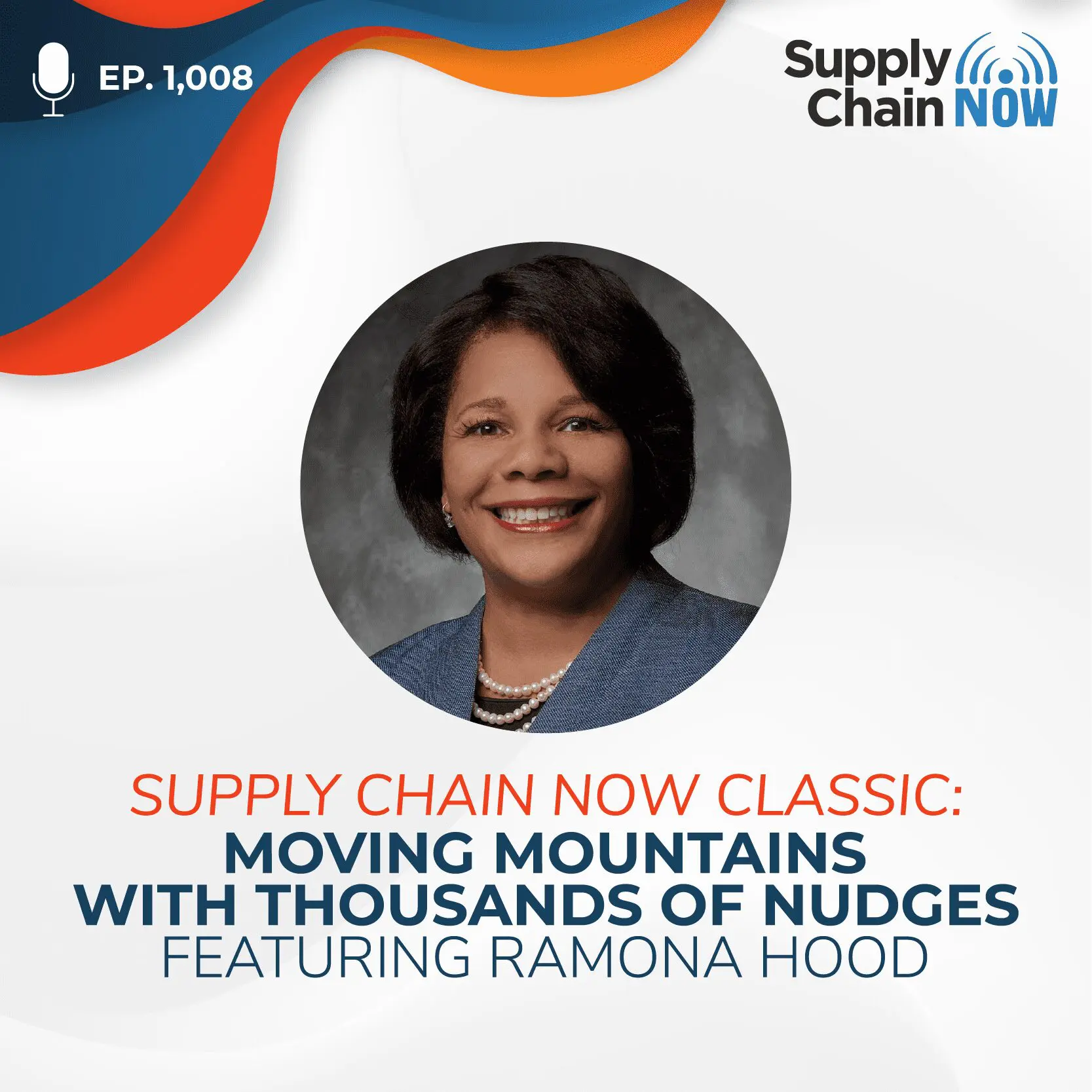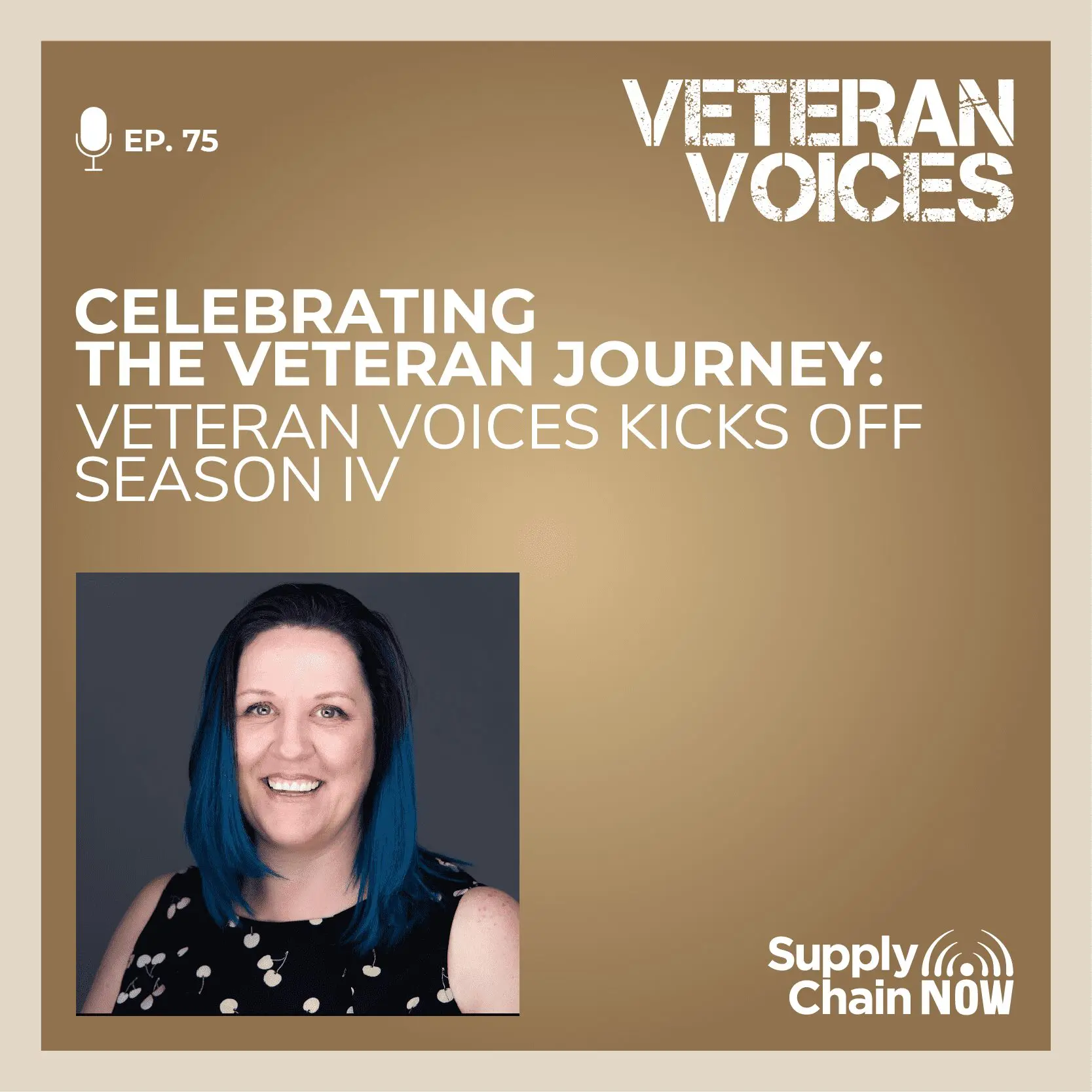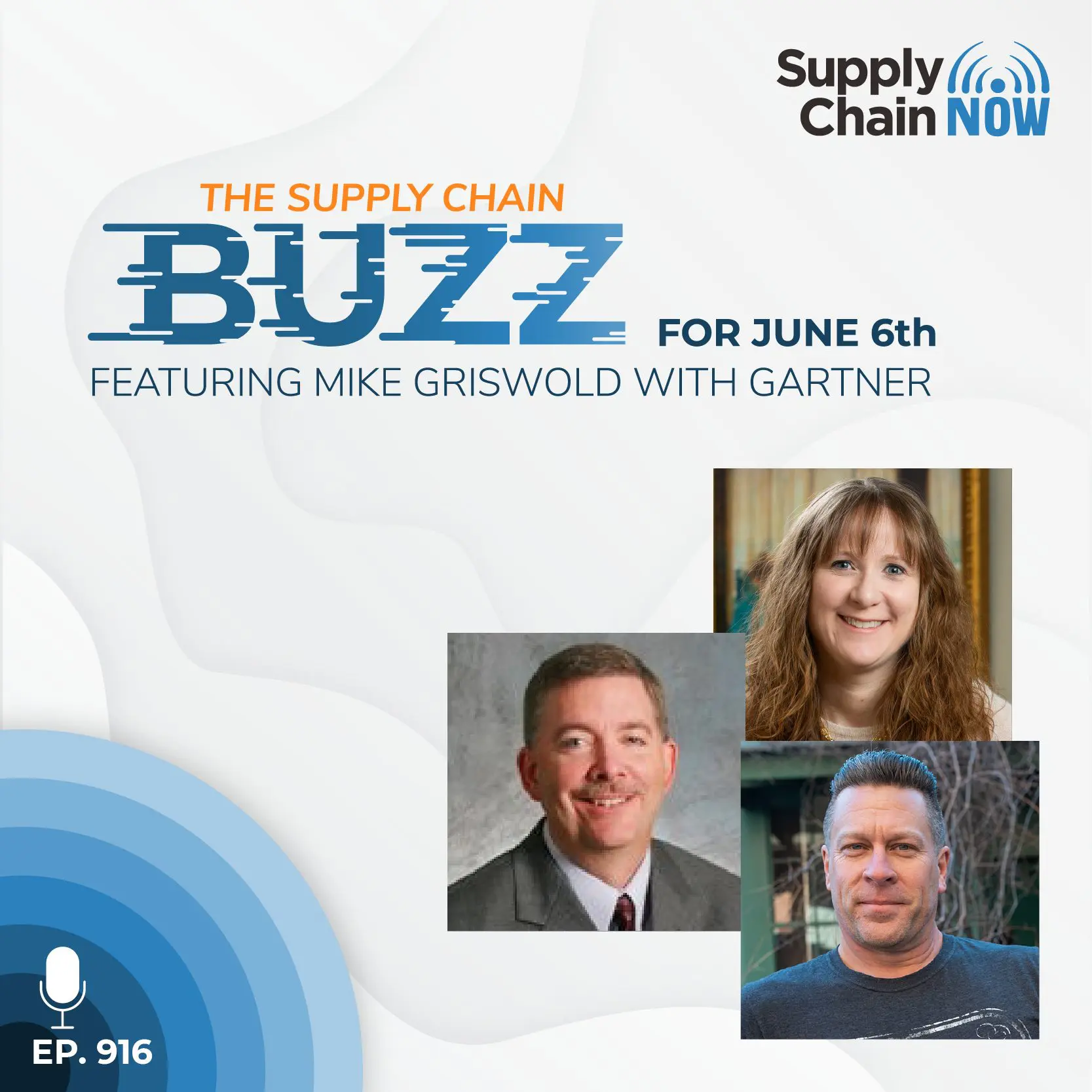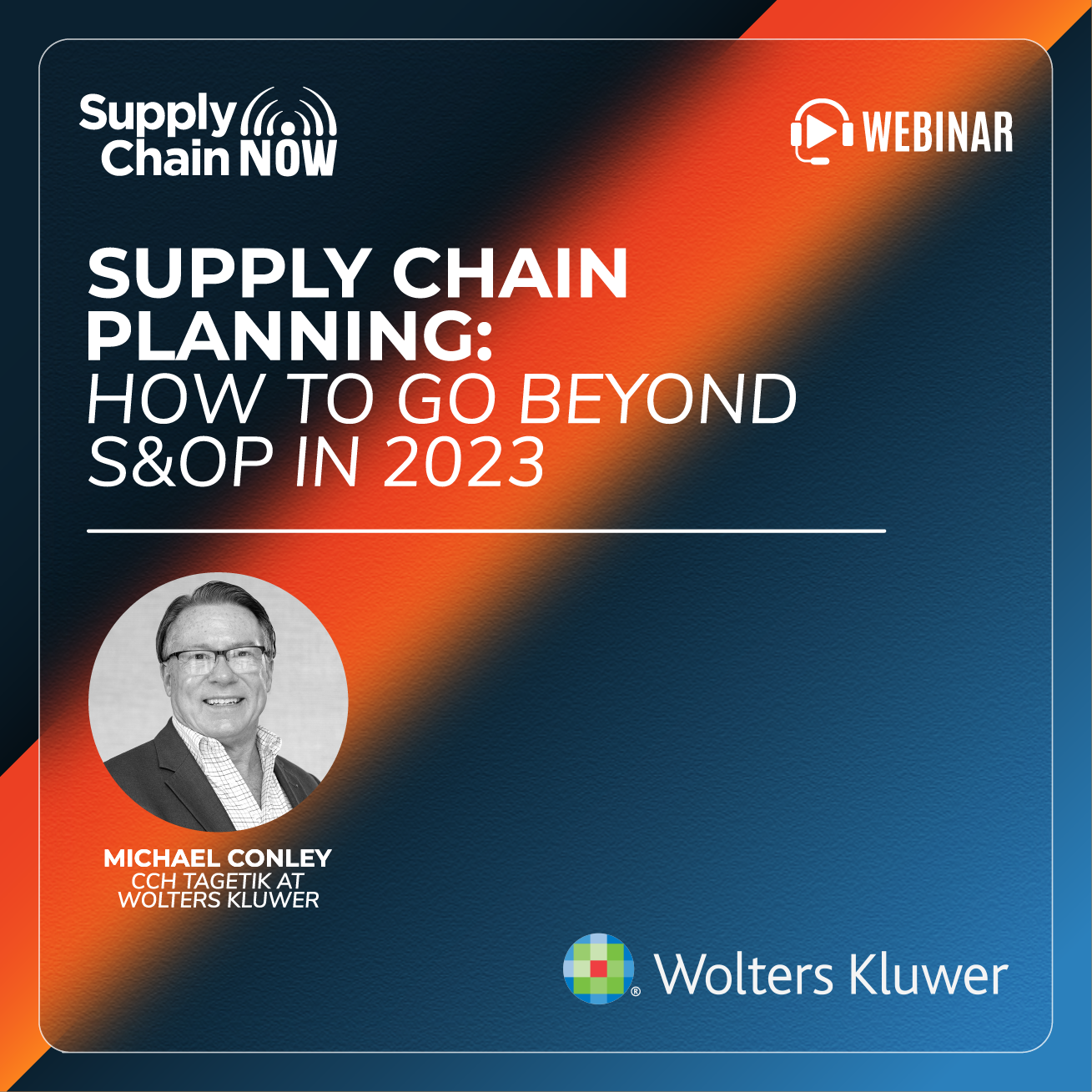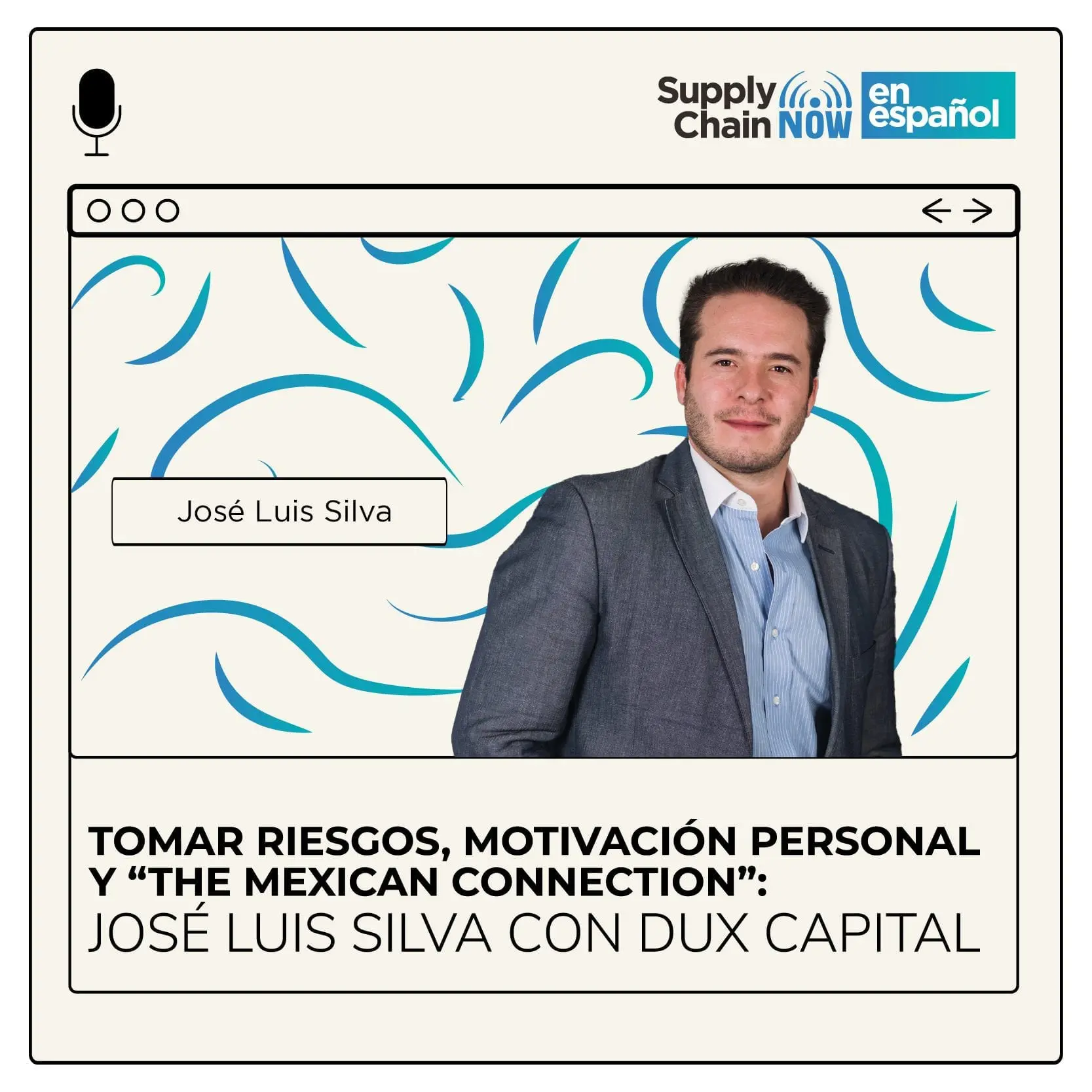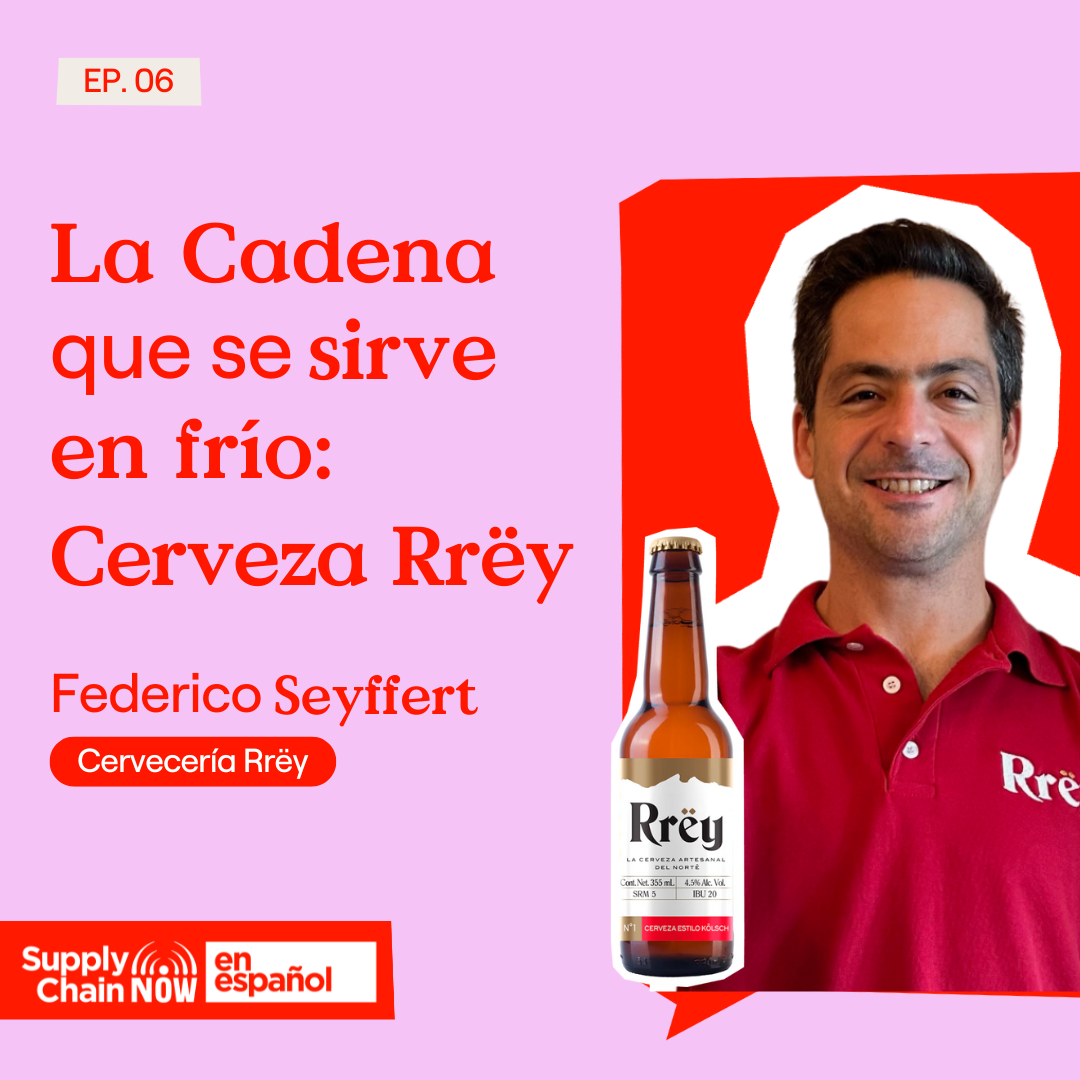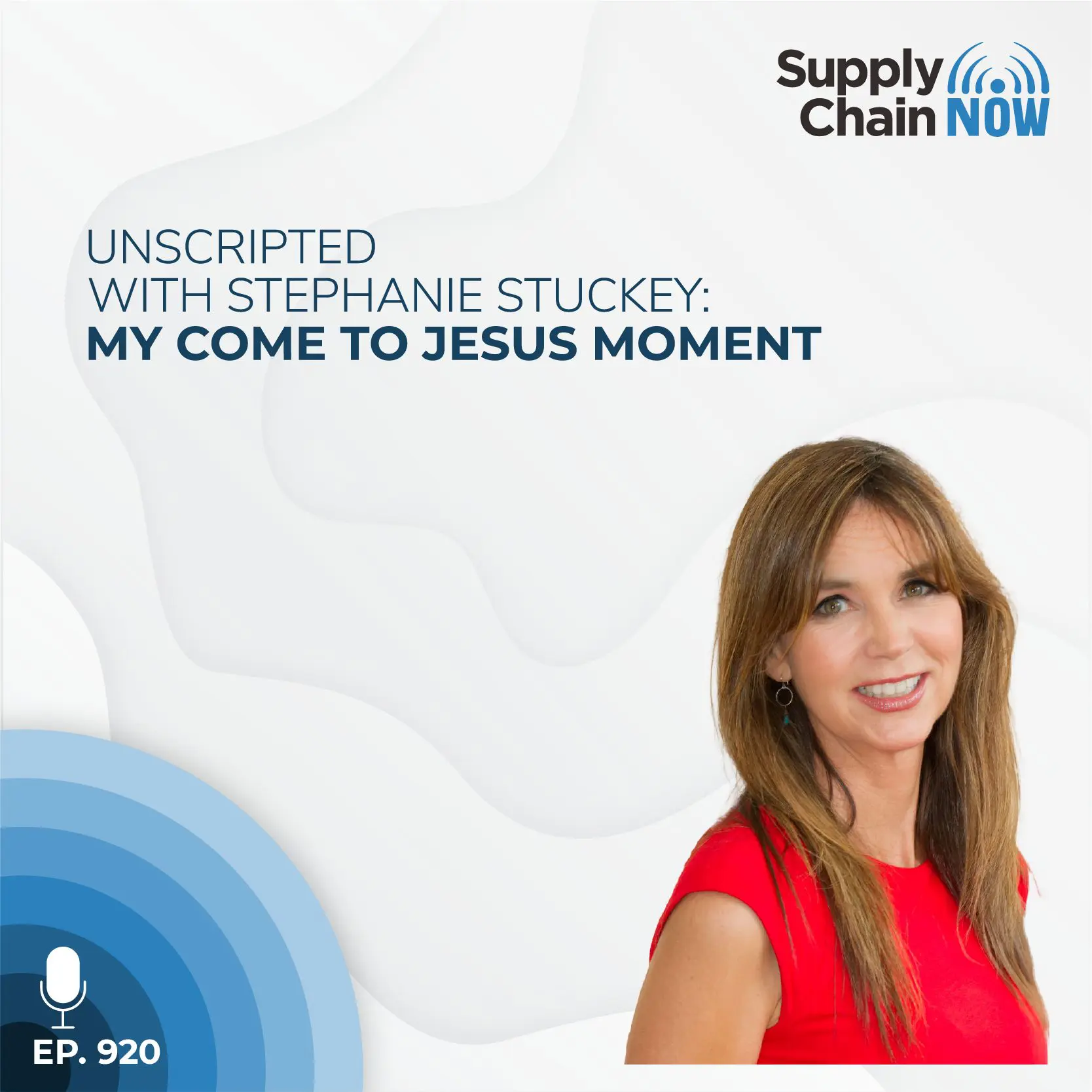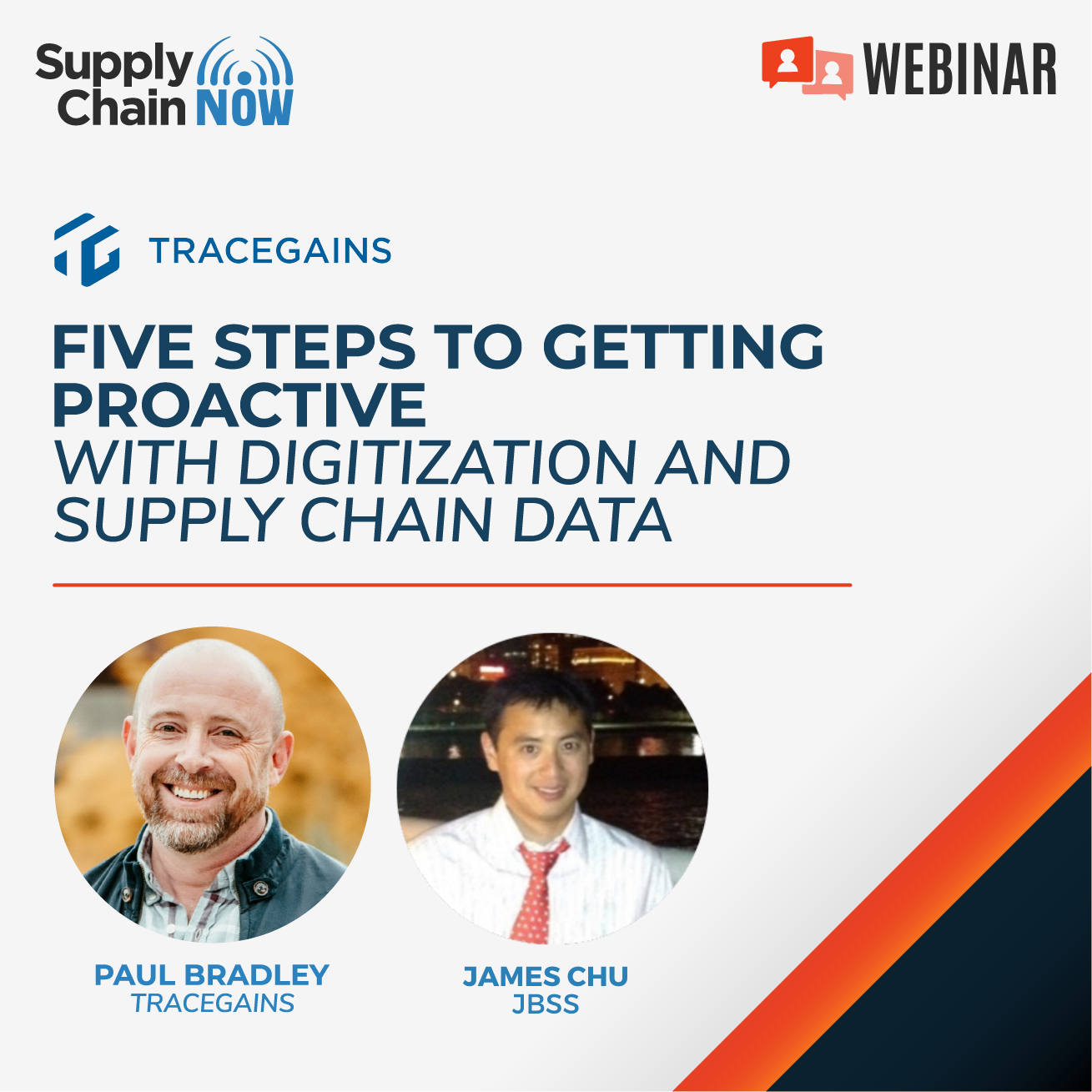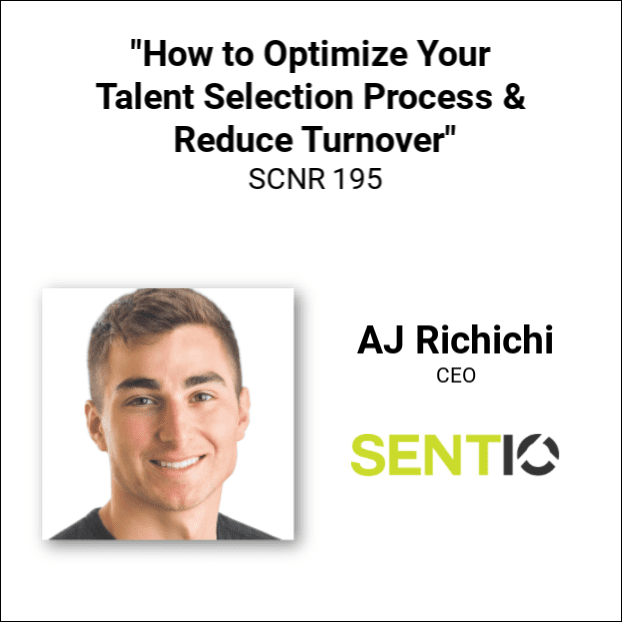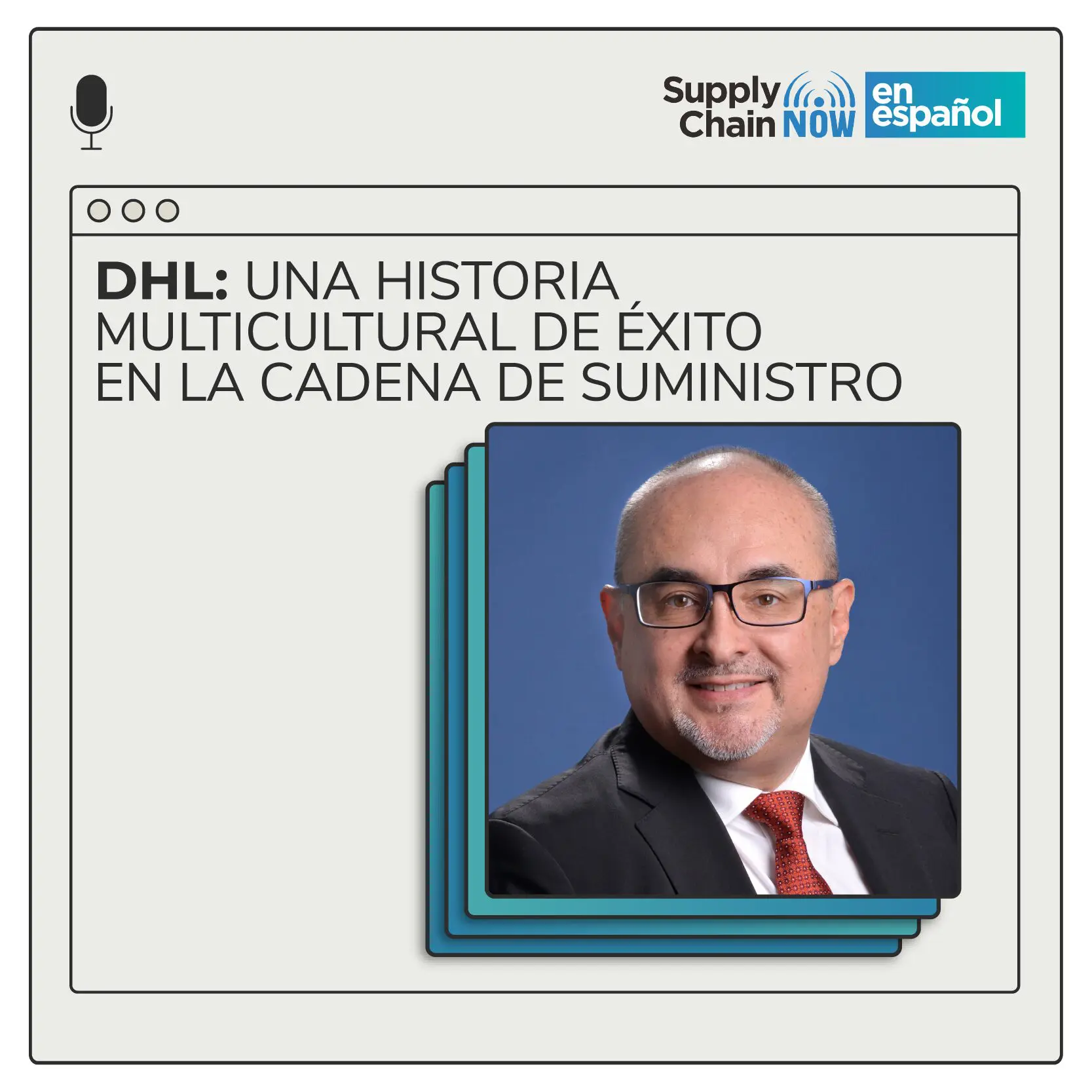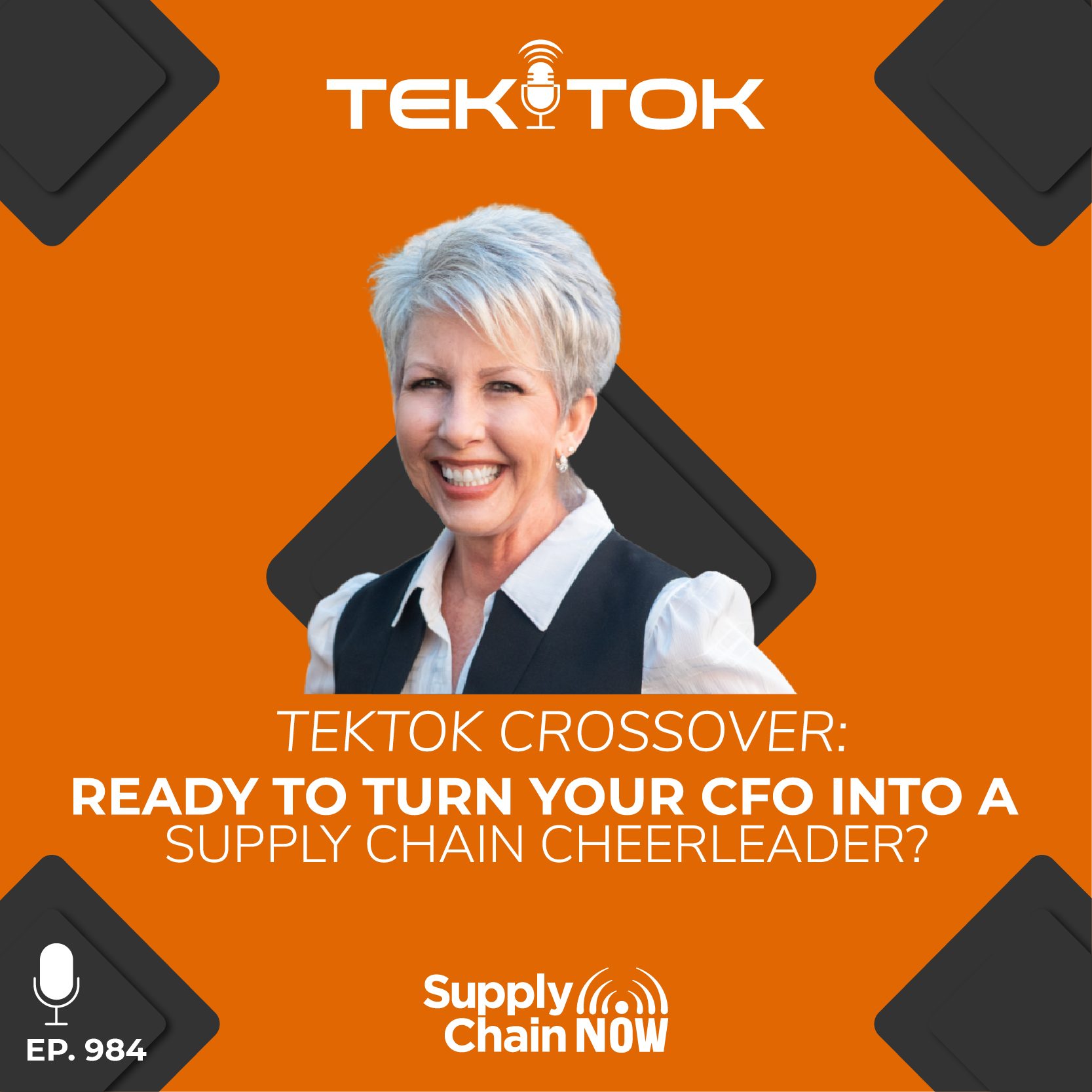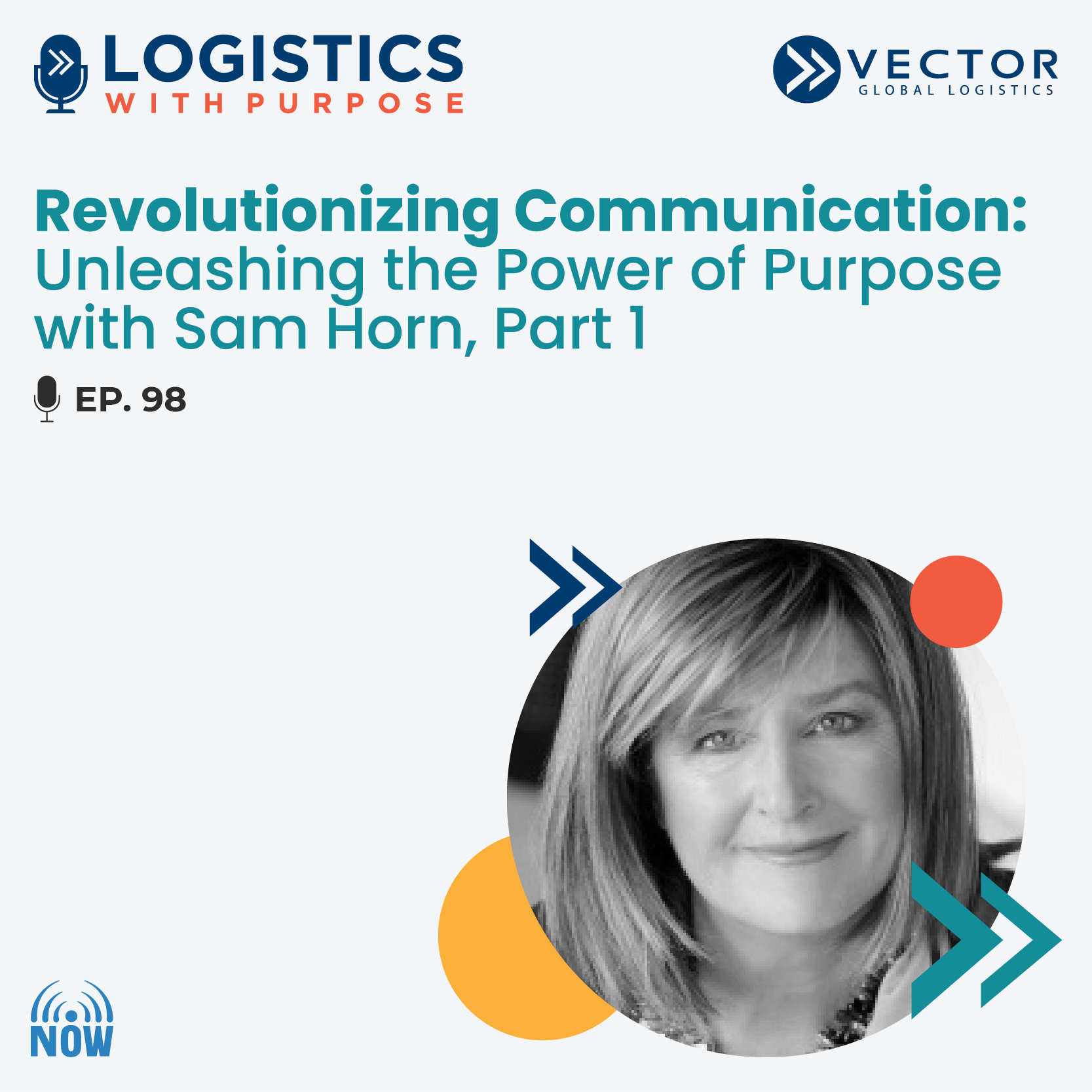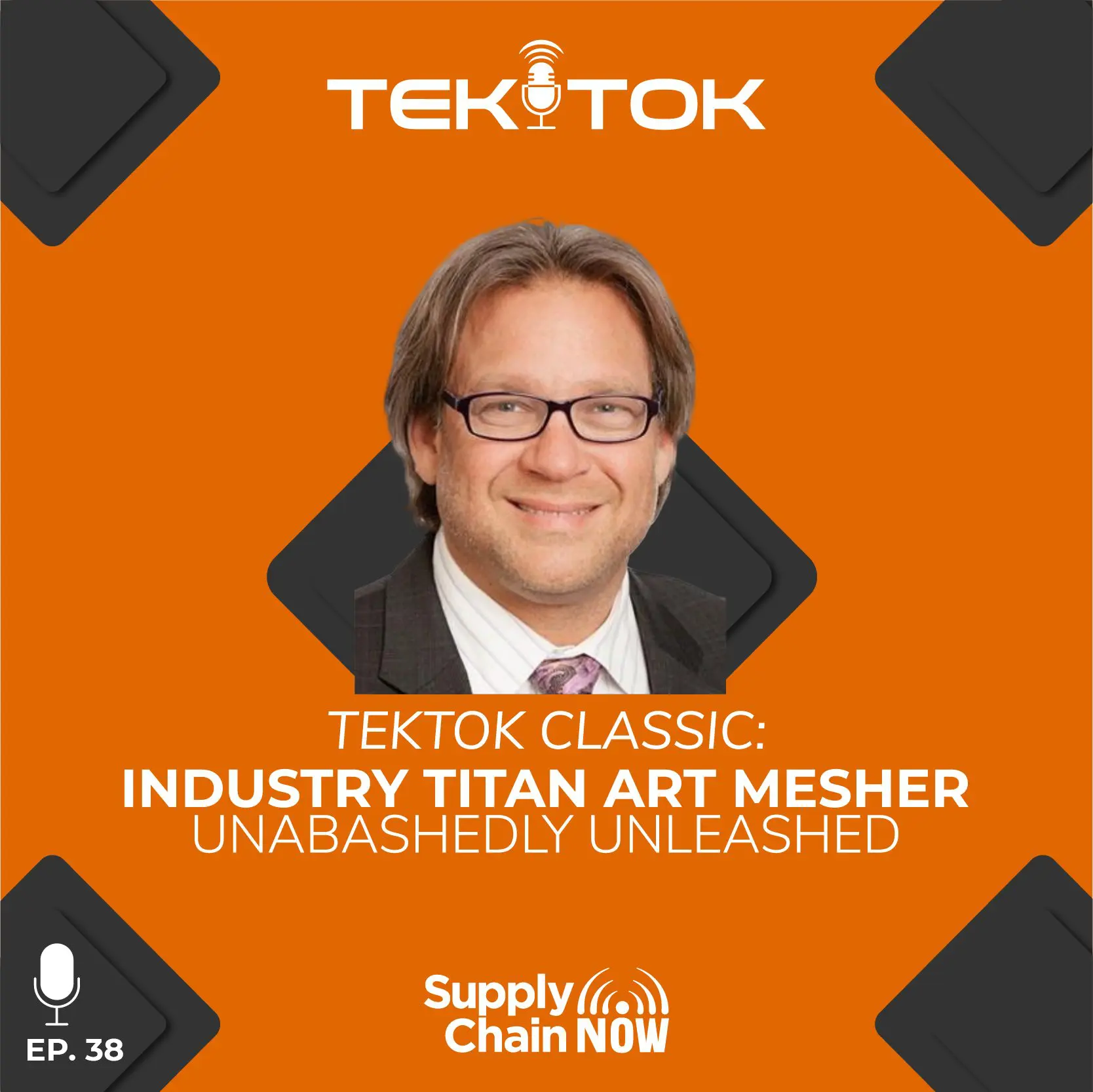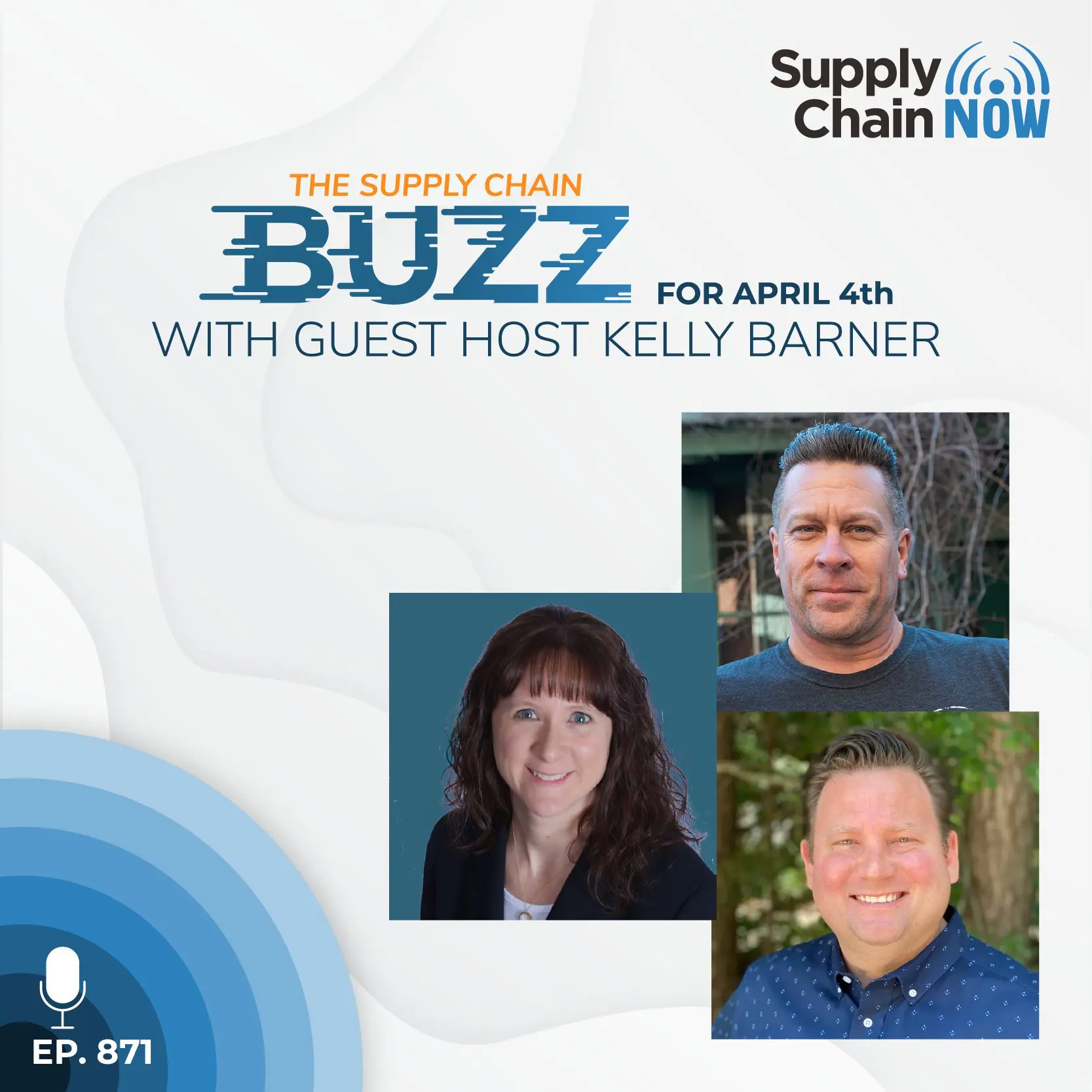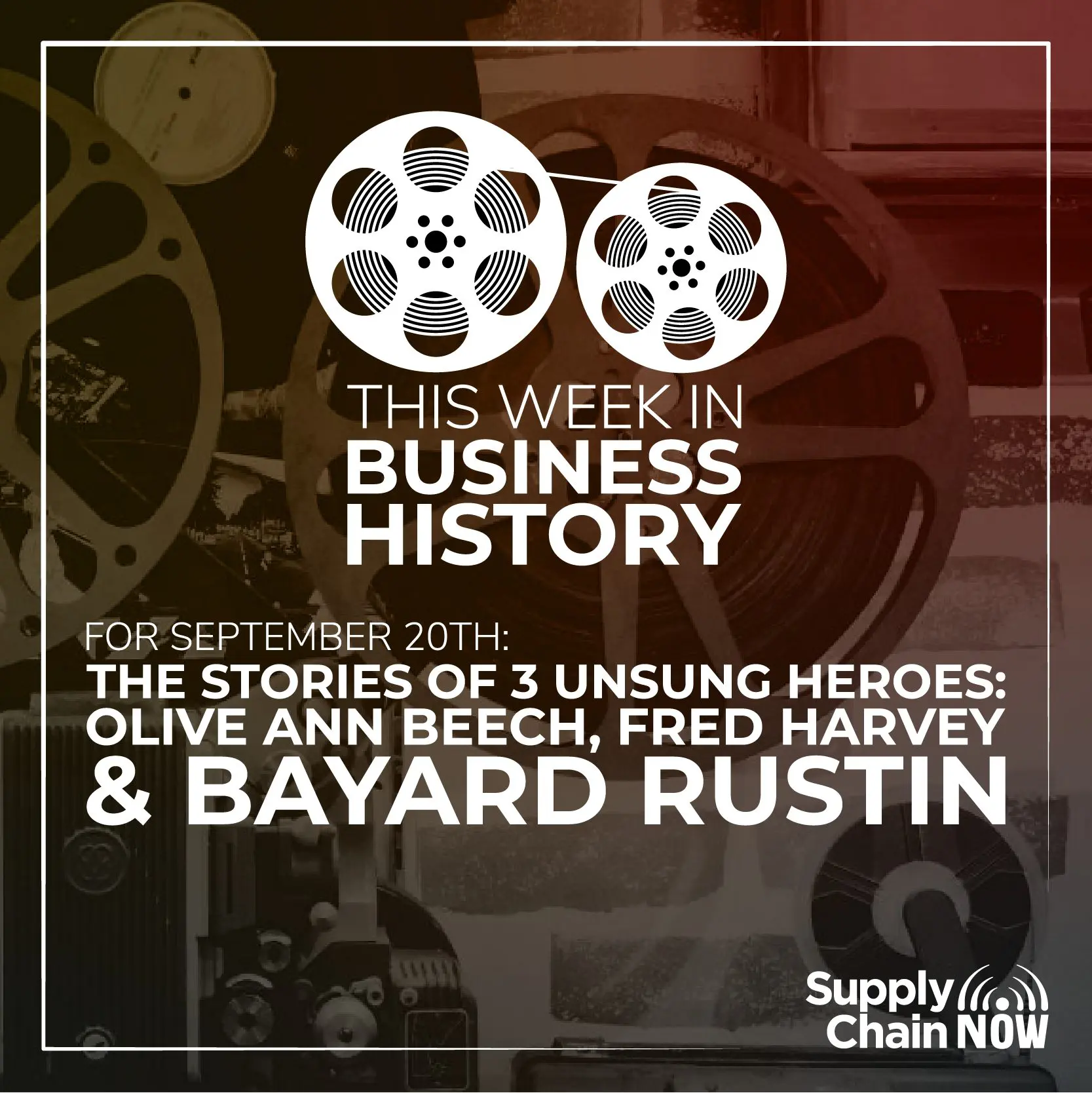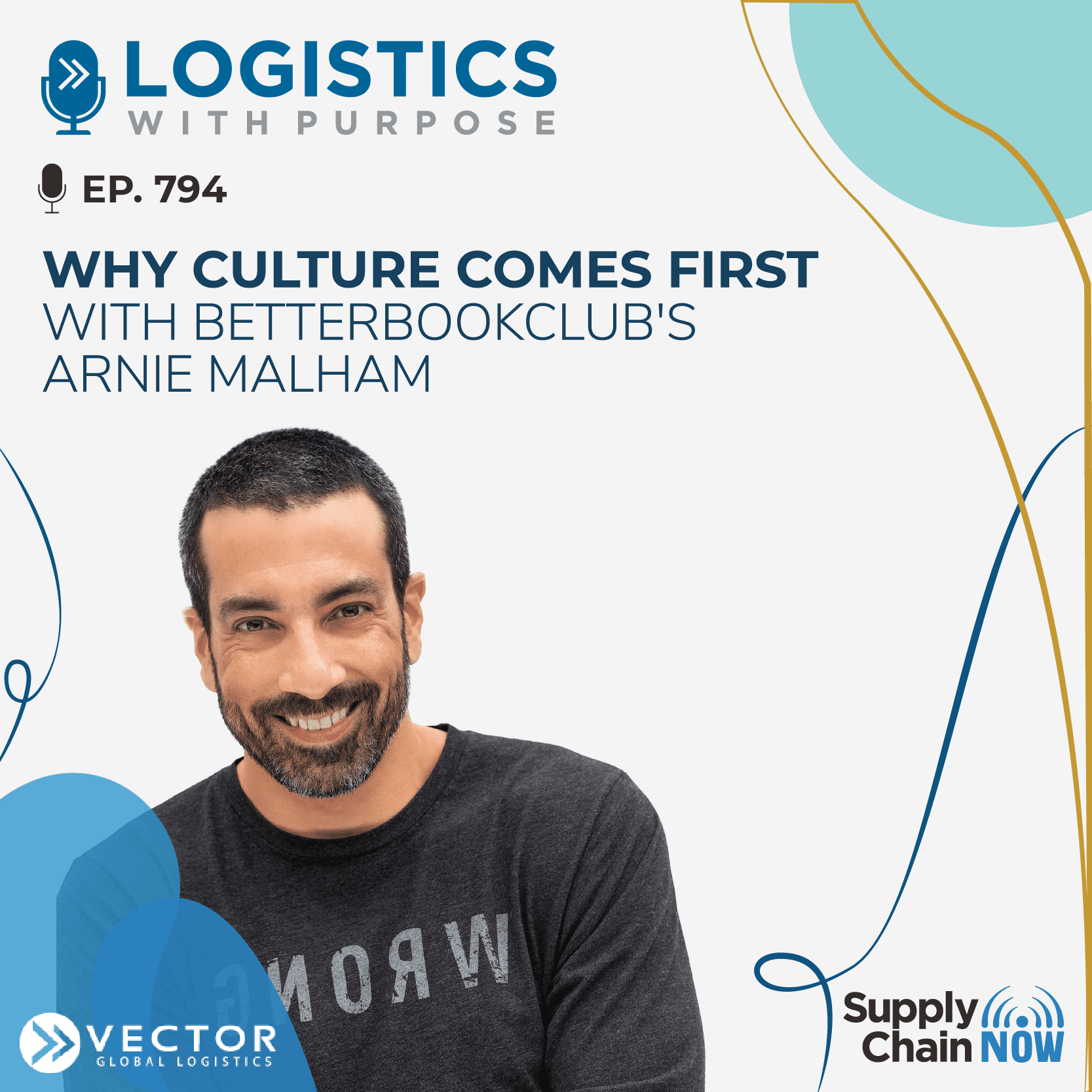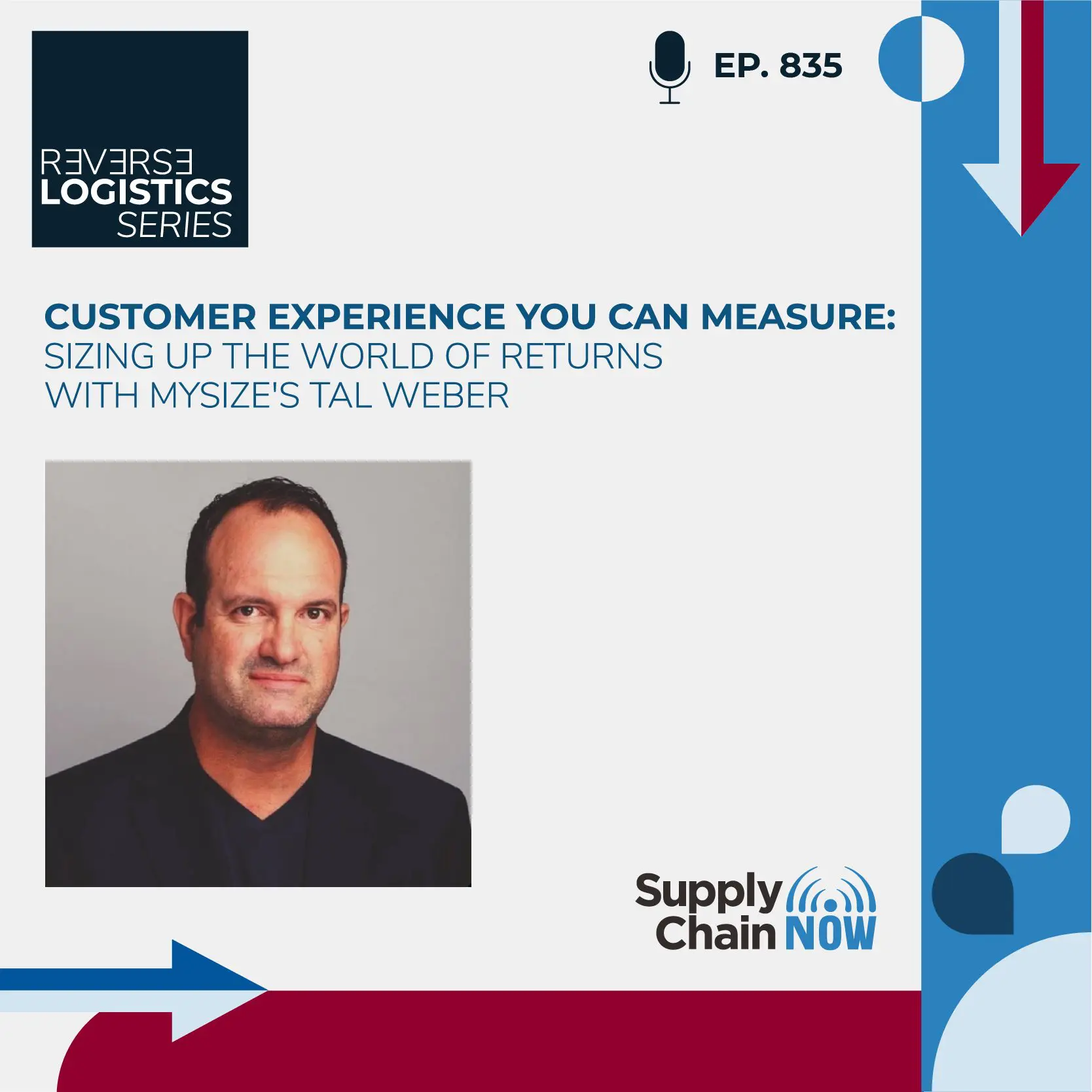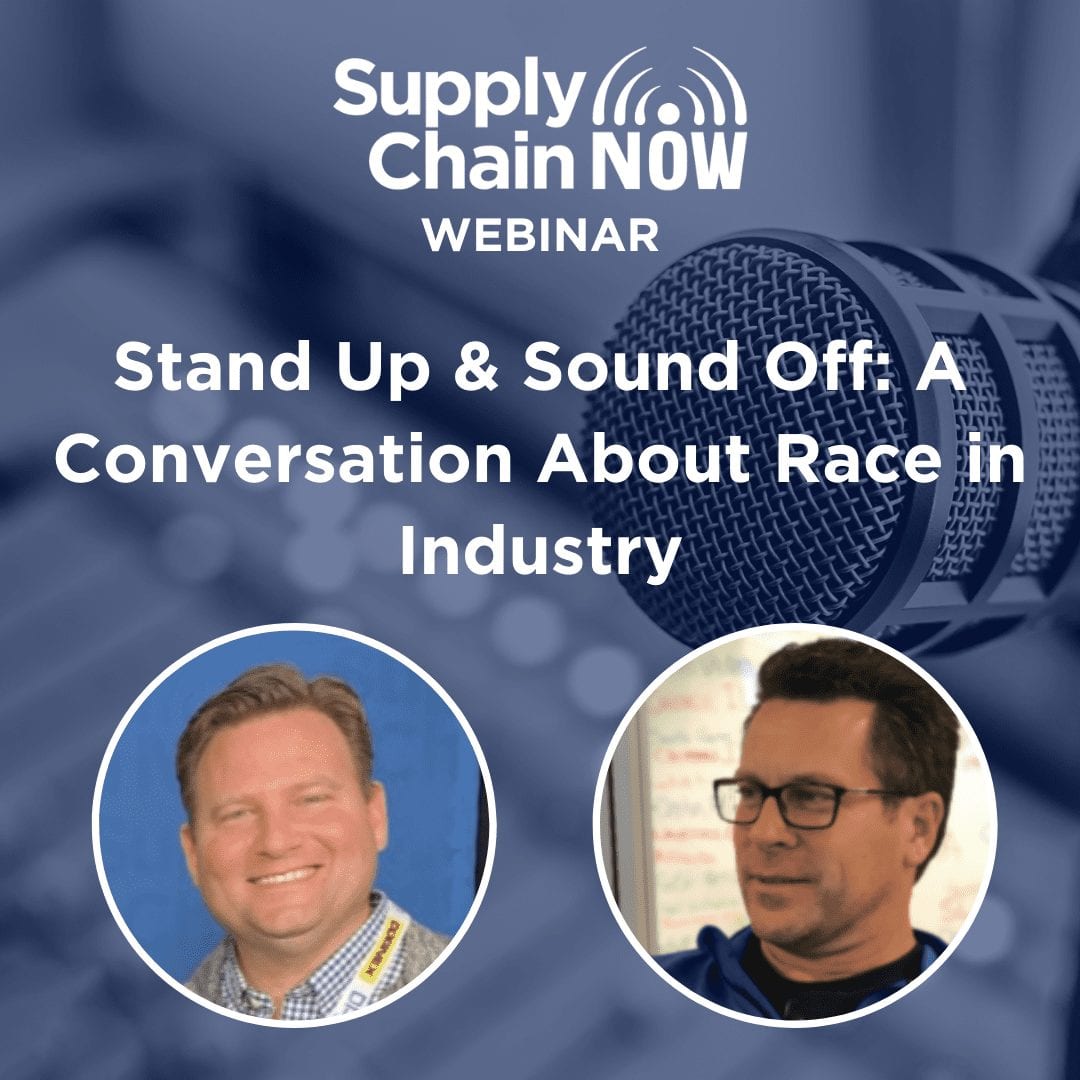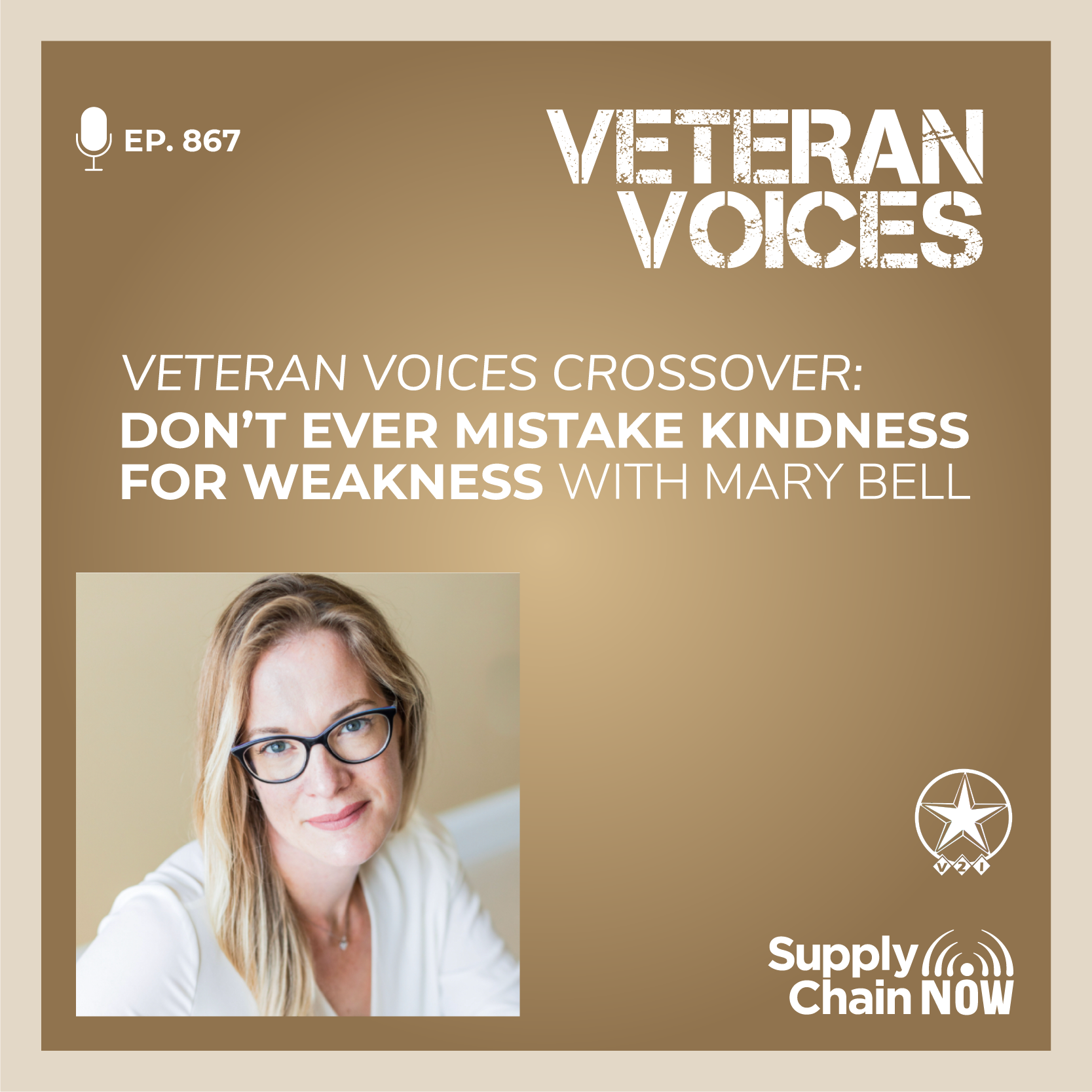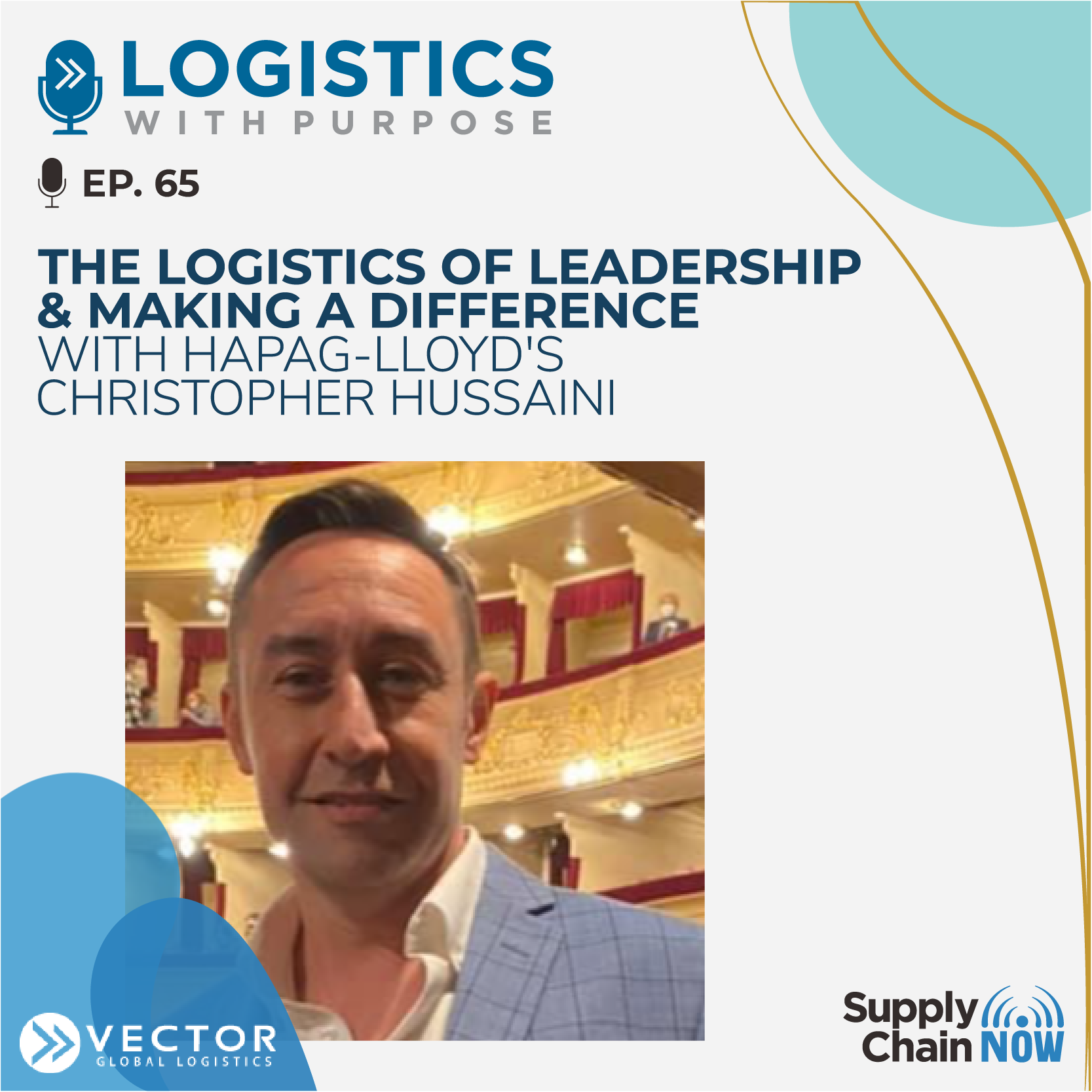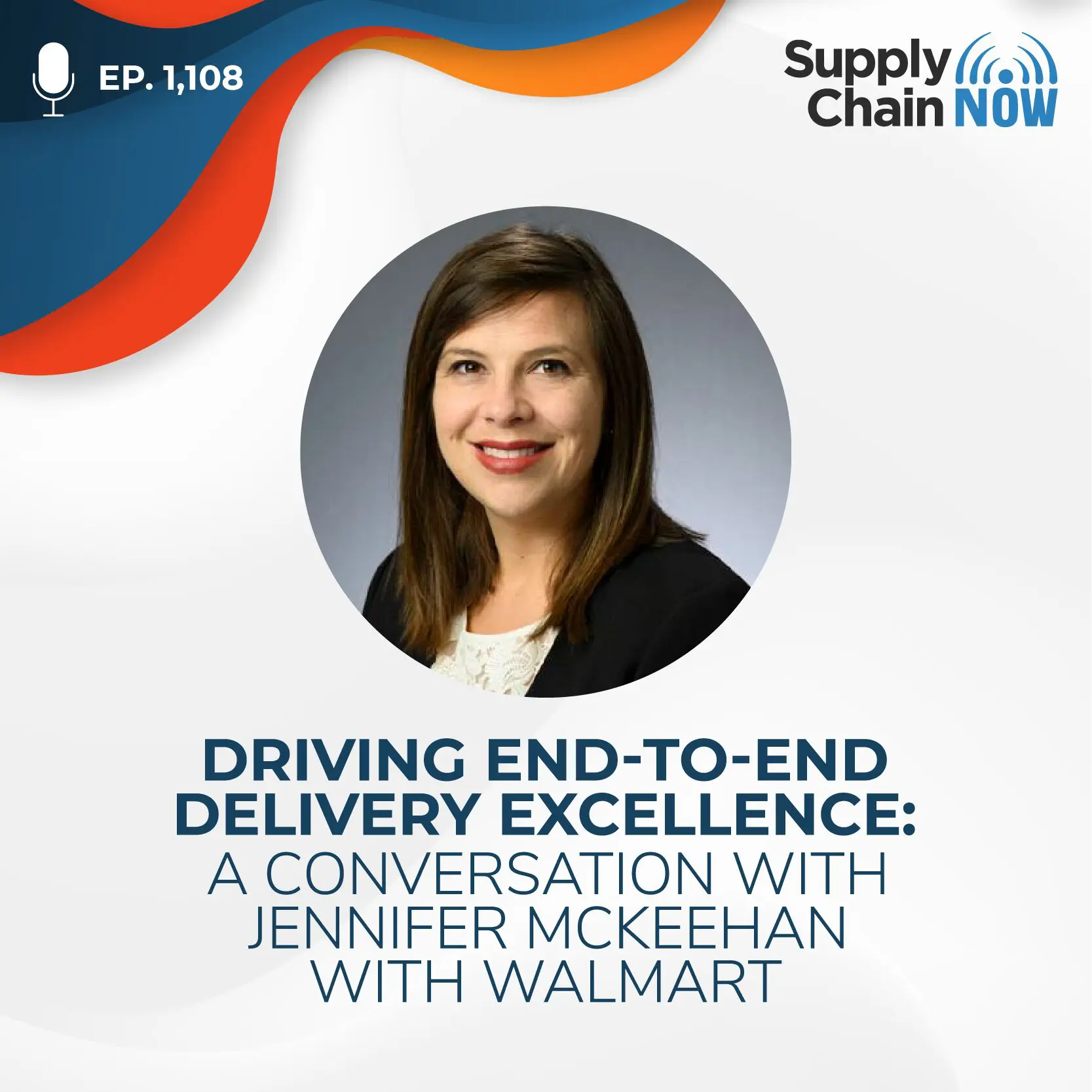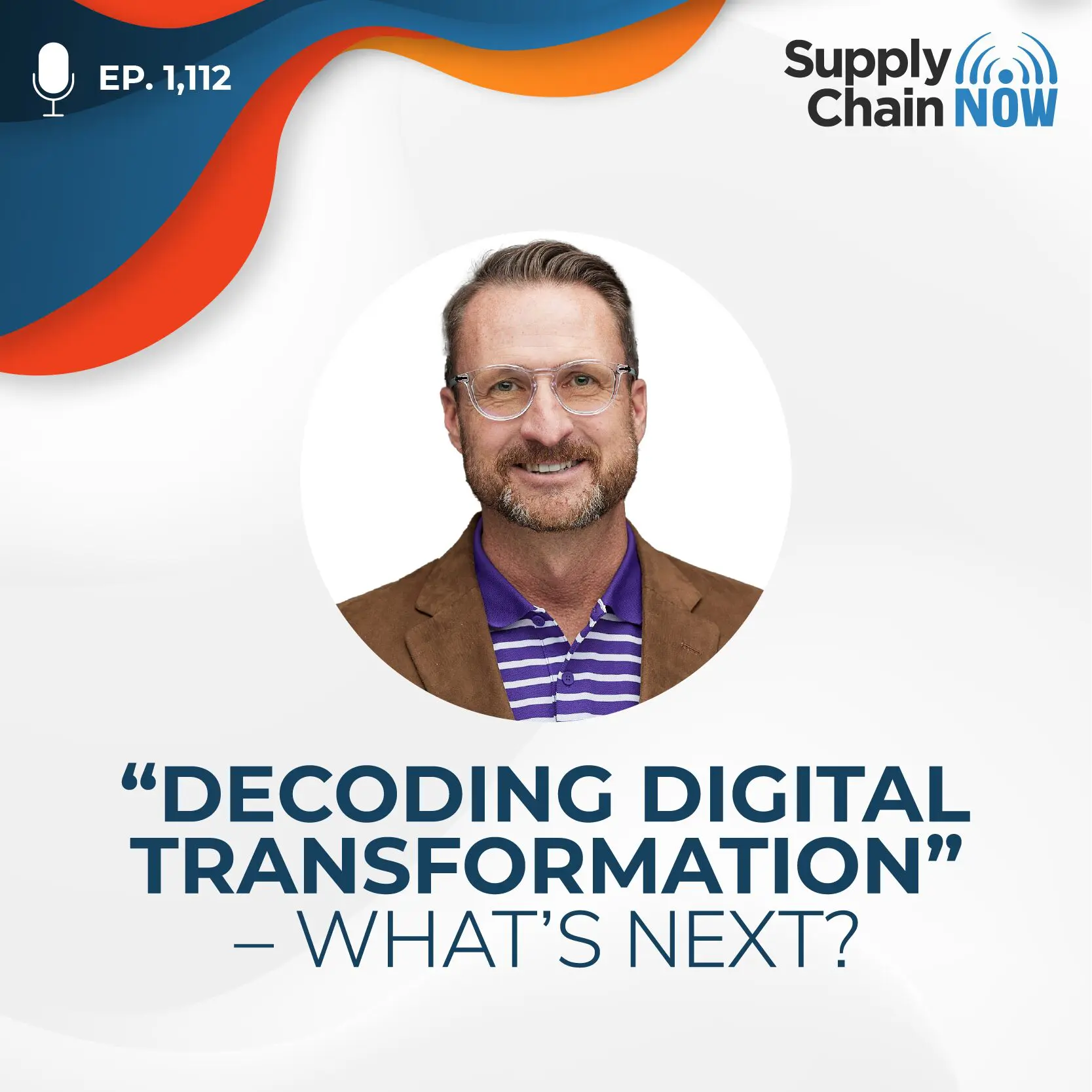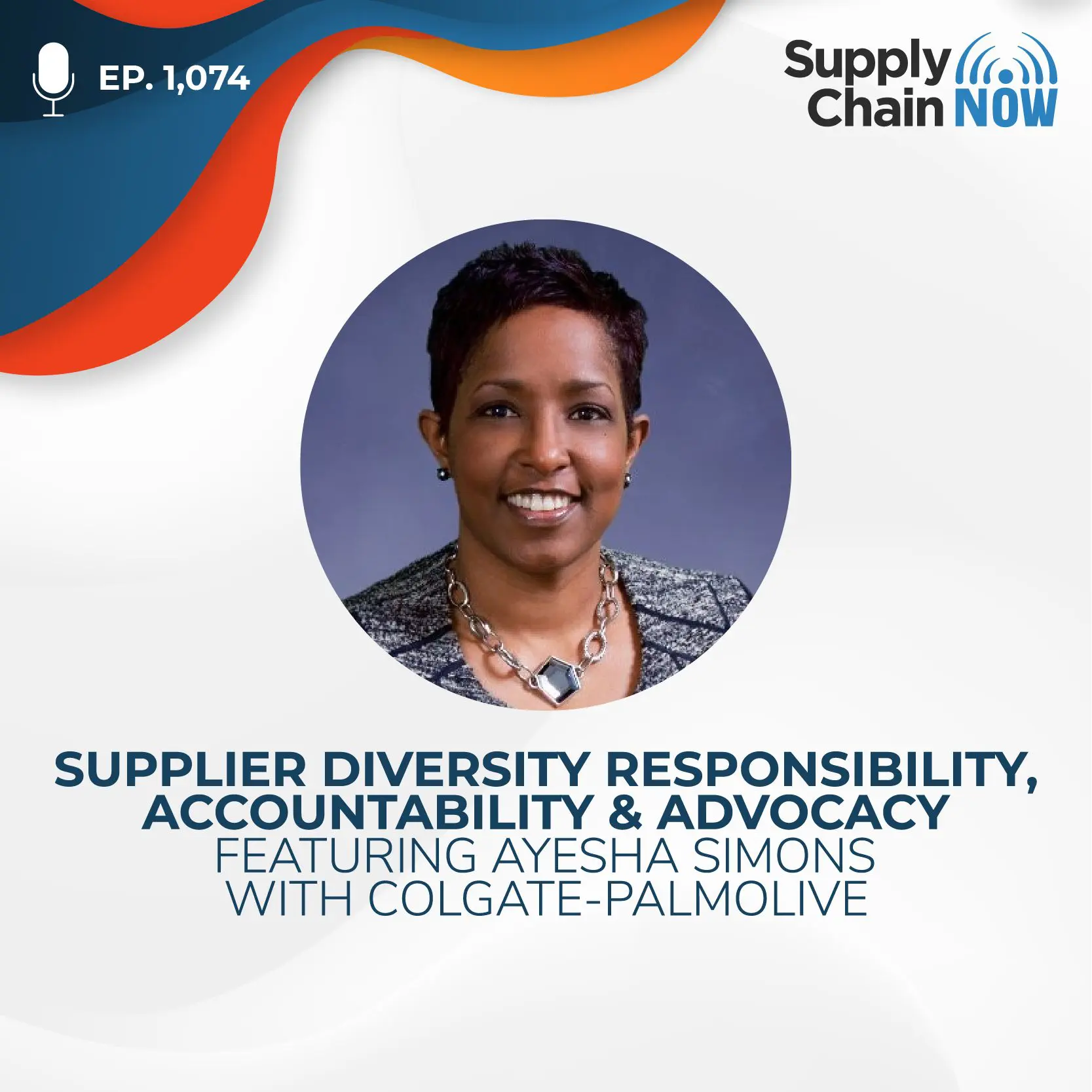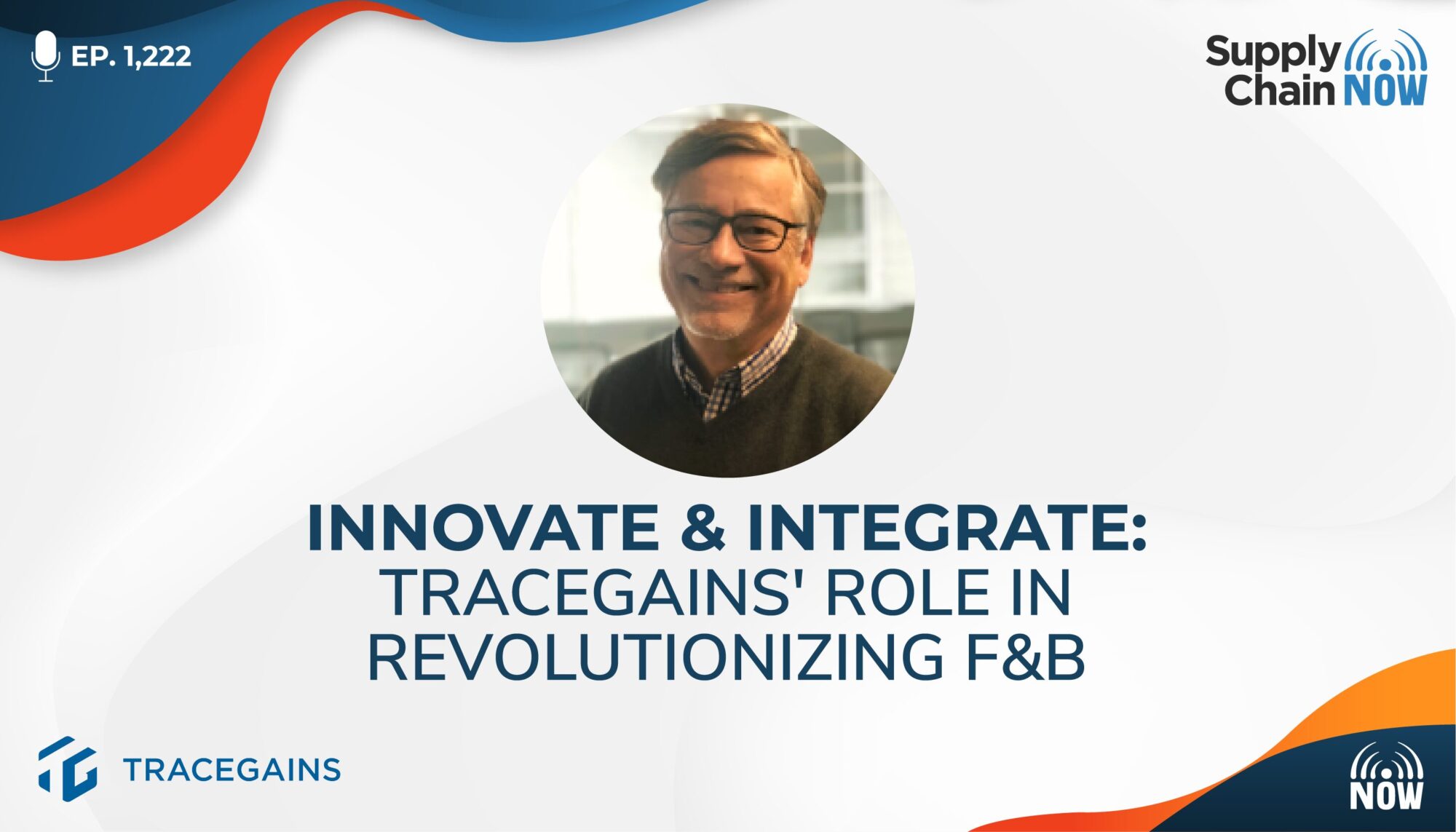
The food supply chain is the world's largest. It's $10 trillion in annual GDP, so it's 12% of the world's GDP. But it also causes 80% of tropical deforestation and it causes one-third of global greenhouse emissions. So issues like ESG- environmental and social governance are critical in the food industry.
-Gary Nowacki
Episode Summary
Prepare yourself for an insightful exploration into the complexities, trends, and innovative solutions that define the dynamic world of supply chain management in the food and beverage industry. In today’s episode, hosts Scott Luton and Greg White delve into the intricate world of the food and beverage industry, accompanied by an industry leader at the forefront of innovation, Gary Nowacki, CEO and Founder of TraceGains.
Listen in as this episode offers a fascinating journey through the critical issues, transformative technologies, and leadership priorities shaping the global supply chain within the realm of food and beverages. They touch on a variety of topics, from the challenges faced by food companies to the revolutionary impact of technology on supply chain performance, and everything in between.
Join them as they navigate through discussions about:
- Data movement
- Food safety and eco-system thinking
- The significant role of ESG considerations in the ever-evolving landscape of the food supply chain
- And more!
Episode Transcript
Intro/Outro (00:00:03):
Welcome to Supply Chain Now, the voice of global supply chain. Supply Chain Now focuses on the best in the business for our worldwide audience, the people, the technologies, the best practices, and today’s critical issues, the challenges and opportunities. Stay tuned to hear from those making global business happen right here on Supply Chain Now.
Scott Luton (00:00:32):
Hey, good morning, good afternoon, good evening, wherever you may be. Scott Lutton and Greg White with you here on Supply Chain Now. Welcome to today’s show. Greg, how you doing today?
Greg White (00:00:42):
I’m doing very well, having a little fun while we get started here. Yeah, I’m doing well.
Scott Luton (00:00:48):
That is good. That is good. We’ve had a lot of fun. We’ve had a fast and furious but fun, and based on feedback, very popular close to the year. And we’ve got a great episode here today. You as excited as I am?
Greg White (00:01:00):
I am. And I just got to say, Scott, I think people that don’t watch this, just listen to it, they kind of miss a little bit of something interesting here.
Scott Luton (00:01:09):
So true.
Greg White (00:01:10):
Which quarter zip we’re wearing? You know, rabbit ears, things like that.
Scott Luton (00:01:16):
Oh, all the good stuff. Well, hey, but you’re right —
Greg White (00:01:19):
Our smiling faces.
Scott Luton (00:01:20):
Great episode to listen in, and especially of you. This conversation, they were talking with a business leader that has developed quite the reputation for using technology to transform supply chain performance. In particular, Greg, we’re going to be taking a deep dive into some of the trends, challenges, and leadership priorities emerging right now and ahead in the food and beverage industry, one of my favorites for sure. So, Greg, you ready to dive right on in?
Greg White (00:01:45):
I am. I love talking to the fellow founders, especially ones who are still feeling the joys and the pains of founding and running startups.
Scott Luton (00:01:55):
Well, this promises to be a great one, indeed, along with some of those elements there. But hey, let me introduce our featured guest today, Greg. Our guest brings a ton of leadership and practitioner experience to the table, especially when it comes to ERP supply chain management, imagine that, and quality in process industries. In 2008, he leveraged all of this success to found TraceGains, which he leads as CEO today. Now this award-winning company is on a mission to revolutionize supply chain agility, especially across the consumer package goods world, CPG. And with all that said, let’s welcome in Gary Nowacki, CEO and founder of TraceGains. Gary, how you doing?
Gary Nowacki (00:02:37):
I’m doing well. Thank you, Scott. Thank you, Greg. Great to be here with you folks today.
Greg White (00:02:42):
Yeah, likewise. Good to have you.
Scott Luton (00:02:44):
So, Gary, we want to start, we got a lot to get to here today. But we want to start — Greg and I have a thousand questions on the front end. Actually, Greg’s got a leg up as usual on me, but I’ll get to that in a second. But we understand you spend a lot of time in the summer in Maine, which is a beautiful state. When you make those yearly trips up to the northeast, what’s one of your favorite places to visit or eat or just spend time in?
Gary Nowacki (00:03:07):
Yeah. Many, many years ago, prior to TraceGains, my wife and I bought a small cottage on an island in Maine. We lived on the east coast at the time, so it wasn’t that hard to get up there frequently. But then we founded TraceGains. We’re a Colorado-based company. We ended up moving here, could not spend as much time, and then kind of the silver lining of COVID is at TraceGains once COVID hit and we were all working from home for a while, we decided everybody could work from home forever. And so, we kind of had the COVID diaspora within TraceGains. We used to be — everybody was in Colorado. Now we have employees in 27 states and four countries. So now it’s easy. We all go where we want to go. So, yeah, my wife and I said, “Hey, if everybody’s working from home, let’s just spend the whole God darn summer at that island,” and made it. So we like boating up there, go to the national parks, and Acadia National Park is a gorgeous place, and do lots of things like that.
Scott Luton (00:04:16):
Oh, I love it. All right, Greg, I know you’ve been to Maine like you’ve been everywhere else in the world. What’s one cool thing from your visits up in that neck of the woods, Greg?
Greg White (00:04:25):
Well, you can’t get that from here, but lobster, of course, lobster. What else? It’s such a beautiful state. I mean, there’s just so many things to do. I have a buddy who — he drags his RV up there from Delaware or something like that, somewhere in that area and spends the whole summer up there and it’s beautiful. They have this cliff overlooking the ocean. I mean, it is just, it’s a beautiful spot. So I don’t know how you pin it down to a single thing. It is just an amazing state. Barely the states. I mean, very might as well almost be Canada, right? So far up there.
Gary Nowacki (00:05:06):
The island we’re on is actually has the largest lobster port in America and they bring in to that one tiny little island. They bring in about $70 million a year in lobster landings. There are hundreds of lobster boats, and if you have time to not edit it out or edit it out, I’ll tell you a quick lobster story. When we’re on the island, we eat a lot of lobster and we eat soft shell lobster. They’re also called shedders. You can only get those when you’re in Maine and – lobster, like a lot of these crustaceans, they molt. As they grow, they have to cast off their shell, make a new shell, and right after molting, their shells are very soft. They’re very vulnerable to predators and they cannot be shipped and survive a trip elsewhere outside of Maine. So if you’re in Maine, you got to have shedders or soft shell lobsters. You can only get them there.
Scott Luton (00:06:04):
Ooh. Okay.
Greg White (00:06:05):
That is a great heads-up.
Scott Luton (00:06:07):
Isn’t it? I’m starving now. Thank you.
Greg White (00:06:10):
I’m very much — you guys keep talking. I’m going to [00:06:12]
Scott Luton (00:06:13):
Well, so speaking of, I don’t know if you do this thing I’m about to share up in Maine or everywhere else, but this notion of heli-skiing, based on our homework we’ve done, Gary, you’re very passionate about this activity. Greg, I think already knows what it is. I don’t. Tell us what heli-skiing is, Gary.
Gary Nowacki (00:06:32):
Well, we’re in Colorado and you can’t swing a cat out here without hitting advanced and expert skiers. And when you get to a certain level beyond beginner and intermediate, what you start to crave is powder on the ski slopes. But you can only get it right after a storm and then it gets tracked up pretty quickly. And as we say in Colorado, there are no friends on a powder day because your friend texts you and says, “I’ll meet you in 10 minutes.” You’re like, “No, I got to hit the powder. Forget it. See you later.” So what heli-skiing really is about is only skiing in powder because you go to one of these places, they have them in Colorado, throughout Canada. You go to one of these places, you jump on a helicopter with other guests that takes you to the top of the mountain. You ski down with a guide in a group — small group together, and it’s all powder. And so for more advanced skiers, it’s kind of mecca doing that. And I don’t do it every year. I have a little guilt. It’s carbon footprint and it’s not cheap. So it’s kind of a special occasion every once in a while for me and I think for a lot of other heli-skiers. But if you’ve got skiers listening and they’ve never tried it, I can’t recommend it enough.
Scott Luton (00:07:47):
Okay, man, a special treat. Greg, have you ever done it?
Greg White (00:07:51):
Nope. Don’t have the guts. Because what Gary is understating is how steep the phases are that you go down when you’re heli-skiing. I mean, you are way up there and they basically drop you on the top of a mountain and you ski off the top of a mountain. And especially these days, you have to be up high. And the faces that you ski down are those faces you see on YouTube where people fall and then slide thousands of feet down.
Scott Luton (00:08:21):
Wow.
Greg White (00:08:22):
So, nope.
Scott Luton (00:08:25):
All right. So next time, Gary, we get together, you’re going to have to send us pictures or videos. It is amazing to hear y’all describe it.
Greg White (00:08:32):
Well, we love to humanize people by learning what they’re about. And as we said before the show, this super humanizes Gary. I mean, it’s hard to overstate how expert of a skier you have to be to do what he’s talking about. Just YouTube it and you will — just be careful. It might hurt your heart.
Scott Luton (00:08:55):
So maybe then what you’re saying, the rest of our conversation, which is already pretty challenging and complex when it comes to supply chain management, that might be a piece of cake based when compared to heli- skiing. I don’t know.
Greg White (00:09:07):
Heli-skiing Is definitely a good precursor for it.
Scott Luton (00:09:10):
Okay. Well, I’m going to go with it then. I’m going to go with it. I’m going to use that as a segue because, Gary, as we got to understand some of your background a little better, really came to appreciate your journey and how you leverage a lot of your background into not only founding TraceGains, but helping a lot of different companies. So I want to go backwards as we start really getting into the meat of our conversation here. Prior to serving as CEO and prior to founding TraceGains, give us a role or two that really shaped how you view global supply chain and technology.
Gary Nowacki (00:09:42):
Yeah, I was in the software business for quite a few years before we founded TraceGains. And particularly much of my experience was with ERP, enterprise resource planning, software companies. And for people who don’t know ERP, they certainly know Oracle or SAP or Microsoft Dynamics or JD Edwards or what have you. And so, I got a lot of great experience and I worked with a lot of food and CPG companies in that space. And when we founded TraceGains, we kind of scratched our heads and said, where’s a niche? Where is there a problem that’s not being served? And what we realized is that ERP and most business software really does a great job on focusing on tracking things and managing things within the four walls of your organization. But outside the four walls across these supply chains, the solutions are not as robust, and the complexity and challenges really are big now.
Gary Nowacki (00:10:44):
I mean, there’s some good exceptions. I mean, you can get some great supply chain tools to figure out freight, reduce your cost, improve your speed, pick out a carrier and so on. But in the food industry, what we realized is that it’s a vast supply chain and all of these companies require a ton of data on all sorts of things, safety related things, quality related things, product development things, innovation things. And they weren’t getting that data. They were getting that data through phone calls, emails, running around at trade shows. Nobody was servicing the need to move data across the supply chain. And that was really our founding mission with TraceGains.
Scott Luton (00:11:30):
Greg, respond to that moving data all across the ecosystem, which we’re going to talk about more in a moment, and then we’re going to find, get some more context around what TraceGains does in a second.
Greg White (00:11:42):
Yeah. Well, I think one thing that’s important to point out is that when you’re dealing with food, perishability is a big, big issue. And so, the timely movement of data and knowing things like what is the shelf life of a particular product is really, really important because if you overbuy bar stools, eventually someone is going to need them. If you overbuy lettuce, eventually it’s rotten. And margins are very, very tight in the food industries, especially where perishables are included. So there’s really no margin for error. And I mean in some cases, literally, particularly for distributors, no margin for error. So it’s really important that the data not only be robust and available, but easily managed and moved so that it can be used in very prompt fashion. That is really, really important to understand about the food industry. Everything moves fast and has to move fast, and the margins are very, very tight.
Gary Nowacki (00:12:44):
Yeah. Just to build on what Greg said, there was some breaking news this morning. There’s been a story going around for a bit, but it developed and broke more this morning. Applesauce contamination, there’s several brands of these applesauce, organic applesauce pouches that lots of parents buy, trying to be good parents, all-natural applesauce, organic, and it’s been contaminated with lead. And there’s been 200 children in the United States poisoned with lead contamination from the applesauce. And this has been going on for about a month. But what broke this morning is the deputy commissioner for the FDA said it was the cinnamon in the applesauce that was intentionally adulterated with lead. And why would somebody do that? Pure profit, pure greed. Because if you can take cinnamon, which is obviously a very light spice, just throw some lead in there, doubles the weight, doubles your profit, and so just one example of how critical it is to move this information across the supply chain. And one of our products picked this up and warned people some time ago about lead adulteration in cinnamon. So this is where we also try to serve the public good at TraceGains.
Scott Luton (00:14:04):
Well, and that’s a perfect segue. You just started to talk about one of your products and what it did and how it got the news out and valuable information and actionable information out well ahead of this terrible news story. Tell us, in a nutshell, what else, for context for our listeners, what else does TraceGains do, Gary.
Gary Nowacki (00:14:22):
Yeah. Well, the food supply chain is the world’s largest. So just to give you some quick statistics, it’s $10 trillion in annual GDP. So it’s 12% of global GDP. Forty percent of global jobs are tied to the food industry, agriculture and processing and so on and so forth. So it’s a massive, massive industry. Now, on the flip side, it causes 80% of tropical deforestation and it causes one third of global greenhouse emissions. So issues like ESG environment, social governance are critical in the food industry. It’s not only the largest by those measures I just gave you, but it’s also the most fragmented. Now, what does that mean? Well, just in the United States, there are 35,000 sites where companies manufacture and process food, just in the United States, and they’re all scrambling to get data from their suppliers about cinnamon and applesauce and everything and a zillion other item.
Gary Nowacki (00:15:34):
And what we do is we’ve built a network so that companies connect one time similar to a social network like Facebook or LinkedIn. Companies connect one time with each other and then the information just flows. We’re all old enough to remember 20 years ago when we had a fantastic vacation, we took some pictures, we email them out to 10 or 20 or 30 friends. Some of those friends said, “Thanks, but I really didn’t need to see those.” Others said, “You forgot about me. You left me off your list.” Would we do that? No, we just throw it on social media. We would post it once. And that’s what TraceGains does. We allow these suppliers to connect with their customers once, post all this information whether it’s safety documents or what have you once, and it automatically propagates out on the network. And my co-founder and I actually have a patent on this. We call it PostOnce.
Scott Luton (00:16:33):
Okay. Well one other thing I was going to ask you about, and, Greg, I’ll tell you what before I go into these networked ingredients marketplace, Gary, Greg, comment on what Gary was just talking about. Just, I mean, the sheer scope of the global food industry, but on also some of the specific complexities that multiplied times of scope. Man, we have a lot to manage, huh?
Greg White (00:16:55):
Yeah, and it’s incredibly important. I mean, lead is — does permanent damage to small children. So that’s an incredibly important issue. Right? They cannot recover if they’re exposed to too much lead at too young of an age. So it’s important to get in front of these kind of things, which just I think accentuates what we were talking about earlier and just obviates the importance of the ability to connect the way Gary’s talking about, so that companies learn about this quickly, can communicate on it rapidly and completely and figure out what the next solution is. It’s funny. We were just talking to somebody else today and all of this data and all this communication is great as long as you know the purpose for which it is used. And I think understanding this as a safety issue or understanding the perishability of products or whatever is so important. And again, not only impactful to the bottom and top lines of these companies, but also to the health of humankind. So that really puts an exclamation point at the end of the sentence. So, critical to be able to have this sort of ecosystem communicative device.
Scott Luton (00:18:15):
Excellent point. And you’re not overstating it either. All right. So, Gary, you mentioned, I think, was it Post One? What’s previous — one of the products y’all offered? I want to ask you about Networked Ingredients Marketplace. Tell us in a nutshell, what is that?
Gary Nowacki (00:18:31):
Well, we’ve been in business. It’ll be 16 years next month. And so, in the early days, back to Greg’s comment about Sleepless Nights as an entrepreneur, in the early days we had this vision and we told customers, join this network. And they said, “Why should I? How many of my suppliers are on it?” We said, “Not many, but trust us someday they’ll all be there.” And we said to suppliers, “Join the network.” And they had the same thing, “How many of my customers?” So we finally pulled ourselves up by our bootstraps, finally hit an inflection point and more and more started to join. And so today over 25,000 supplier corporations are on this network, we call it Gather now, and they represent 70,000 locations because a lot of them do business in more than one site and globally, and collectively, they’ve uploaded over half a million ingredients and items on this network.
Gary Nowacki (00:19:31):
And so, now, buyers can log on to gather and they could just search for whatever they want. Now they could be developing a new product and maybe they make sweet bars and now they want to make savory snack bars and they’ve never bought garlic before. And so, they can type in garlic and they can say, I want it within 200 miles of my facility to reduce freight costs and I want it to be organic and I want it to be crushed, et cetera. So they can log onto this marketplace and filter down across these half a million plus ingredients. And last year we took a pretty bold move. We just said, let’s make this thing free. So, anybody can set up a free account. You just go to TraceGains, just Google TraceGains Gather. It’ll take you there and you could set up a free account.
Gary Nowacki (00:20:23):
And so now we’ve kind of democratized by selling, because you don’t have to be a TraceGains customer like Nestle or Coca-Cola to use this anymore. You could be a startup in your kitchen with a new brand idea and you can have a free Gather account and find these ingredient suppliers. Likewise, we’ve democratized it for suppliers because you don’t have to be Cargill or ADM or one of these massive suppliers only, although they’re certainly on Gather, but you could be a tiny startup supplier. You can be a supplier in Paraguay of a certain spice, and you can have your product now with a storefront on Gather. So it’s helped connect people at — it’s a little corny, but that’s why we call it Gather.
Scott Luton (00:21:08):
I love it. And, Greg, one of the things I’m hearing, and I think Gary is sharing is it also creates not only intel sharing and gathering opportunities, but it creates business opportunities is what I’m hearing. Greg, your thoughts about Gather.
Greg White (00:21:22):
Yeah, I think it’s a great ecosystem because the other thing that can happen, by the way, is people could know who the good and the bad actors are. And I imagine that whoever has done this awful thing with lead will be virtually, practically, really blackballed as a potential supplier in the future. So you can identify who the good and bad actors are in your ecosystem rapidly.
Scott Luton (00:21:50):
Right. Excellent point. Well, we’re going to shift over to some other things going on in the industry, but Greg, Gary, again, congrats to your team, over 25,000 supplier entities, over 500,000 ingredients all in this Gather platform. And, folks, we know we love free resources around here, and I love that democratization. I said it. Wow. Democratization element at play. So, Gary, congrats. To our audience, y’all check that out. Okay. A little more broadly here, beyond the TraceGains story, I want to talk more obviously all of your experience and your team’s expertise and experience in the food and beverage industry amongst others, but let’s dial it in on F&B for a second. What, Gary, what do you think of challenges and priorities that you’re seeing leaders face with in this particular industry? What comes to your mind?
Gary Nowacki (00:22:41):
Well, Greg touched a little bit on this. If you are a food company, you’re squeezed from two different directions. First of all, your margins are very low. Secondly, rightfully, it’s a highly regulated industry where we have FDA, USDA, et cetera, and there are similar bodies in Europe and other places making sure our food is safe and et cetera, et cetera. But there is burden that goes with those regulations. And when you’re low margin and you’re burdened with all these regulations, we have something in this country called Food Safety Modernization Act, which was passed in 2011, and it really upped the game to say, as a food company, you’ve got to have all this data on file. You can’t just say, well, it’s not our fault that we bought cinnamon and it had lead in it. Right? You were held accountable as the manufacturer or brand owner. So it is a lot for these companies to deal with. And so, I’d say that’s one of the biggest challenges is how do I balance the fact that my margins are low? I cannot hire an army to manage all this regulatory and safety and quality data. “Help!” And so, we are there in part to help and say, “Don’t worry, we already have a network and most of the data you need is already there. Just join the network and grab the data.”
Scott Luton (00:24:05):
Yeah. Excellent. So, Greg, as if it’s not tough enough to grapple with challenging margins and low margins, but then comes all the regulation that Gary is talking about. Your thoughts there, Greg?
Greg White (00:24:17):
Yeah. What better application for technology? I mean, the very first startup I worked for was not anything this esoteric, but it dealt with optimization of inventories and the complicated environment in which companies operated. And, of course, food and food service were two of the industries that we dominated because margins are tight, the product moves fast, you have to be in stock. So, it’s a great environment when those things come together, tight margins and a very complicated environment because that’s what technology is good at, right? Plug in the rules and let a computer figure that out instantaneously rather than someone, a human being having to do it iteratively.
Scott Luton (00:25:02):
Yes. And also, maybe the computers can help me define the word esoteric. That was a good one, Greg. That’s a 50-cent word there.
Greg White (00:25:10):
I hope that was an appropriate use of the word.
Scott Luton (00:25:14):
All right. Well, Gary, we’re going to keep on diving in more industry topics and trends and challenges. I want to talk about innovation for a second. One of the silver linings when we look back at the last few challenging years, and we like talking about it because we love to focus on some of the better aspects of how the last few years are making industry stronger. Right? Hopefully, we learn from these mistakes. So when it comes to innovation, what are you seeing in supply chain? What are you and your team seeing, Gary?
Gary Nowacki (00:25:40):
We have a very large customer base. So we survey them on a lot of topics. And a couple of years ago, we said, “Hey, how long does it take you when you have a brand-new idea for innovation? How long does it take you from ideation to when you get it on the grocery store shelves?” And the range that came back really surprised us. What our customers said is six to 18 months. And I found that pretty shocking.
Scott Luton (00:26:05):
Six to eight —
Gary Nowacki (00:26:06):
Six to 18 months.
Scott Luton (00:26:07):
What was that range?
Gary Nowacki (00:26:09):
Yeah, on the low end, six months to get a new product to market; on the high end, a year and a half. And so, we drilled into that and said, “Why is that? You’re already in the snack bar business. You make sweet snack bars.” Now you want to make savory high protein snack bars. Why would it take you so long? So we drilled into it. We found out part of the problem is when people went into a new area, they had to find new ingredients and new suppliers, and that took them a lot of time. And a lot of it came down to their personal Rolodex of contacts and their knowledge of years in the food industry. But that’s not an efficient way to go, or they’d go to one of these massive trade shows and walk miles of aisles, or they’d Google and they’d get back a hundred thousand pages including grandma’s recipe for garlic pasta sauce.
Gary Nowacki (00:27:03):
So that’s why we created this marketplace. So the marketplace alone we’re finding can save one to two months, shave one to two months off that six to 18 month range, but then there’s more. Now that you’ve found a supplier, you have to properly vet them and qualify them to make sure they’re an honorable company and they’re meeting safety requirements, et cetera, et cetera. That can take a month or more because now your quality teams got to get involved, purchasing got to get involved and so on. And then, when you finally qualify them, you start formulating and building a recipe which you can now build in TraceGains. But that can be an onerous process because you’ve got to fat finger in a massive amount of data for this new recipe. And so, we accelerate that also by just bringing this data in through the Gather network. So innovation is too slow. And, of course, it’s a C-suite problem because executives, CEOs and other executives under pressure at these food companies to grab the next trend, get on it fast, get shelf space in the grocery store, and six to 18 months is too long.
Scott Luton (00:28:15):
Okay. Greg, that makes so much sense to me on so many different levels. Your thoughts, Greg, as Gary kind of laid that out and how we can continue to shave off time from that 6- to 18-month cycle.
Greg White (00:28:30):
Immediately when those numbers came out, I was like, still, I cannot believe it still takes that long, one; and, two, the consumer is very fickle and the life cycle of a new product might be six to 18 months. I mean, if you think about the beverage industry and you think about where we are with White Claws and things like that, it wasn’t that long ago that they were all the rage and they’re already fading, and the next thing is coming around. So when you think about these kind of innovations and when Gary says trend, my hackles come up, because I think that is very, very hard to chase and you have to do it unbelievably rapidly. I was mostly, when I was in retail, I was mostly in the sporting goods and the automotive space. And even there you have trends, right? I mean, you have fuzzy dice or whatever it is, and there’s a very, very short window for some of those ridiculous, stupid but very profitable things. So, yeah, it’s stunning that still happens. I mean, it’s good that there is technology out there that can shorten that. So, Gary, can you give us an idea. I mean, if someone has the capability to do that, how tight can that window be rather than six to 18 months?
Gary Nowacki (00:29:53):
I’ll answer that question, Greg, but first I just want to build on what you just said. McKinsey actually did a study about five years ago. They surveyed food companies, consumer package good companies, and they said over five years, if you go back in time and look at all your new product launches over five years, five years later, how many of them are still on store shelves? One out four lasted five years. So, you’re exactly right, Greg. You got to jump on these trends very quickly. But to answer your question, we think we can shave between two and four months off the cycle time. So, instead of six to 18 months, maybe it’s three to 14 months or something like that.
Scott Luton (00:30:38):
That is impressive. And by the way, Greg, fuzzy dice that dominated landscape back in the ’80s, and I think that’s the first time we’ve mentioned that in, I don’t know, some 1300 podcast episodes —
Greg White (00:30:49):
Well, that, I mean —
Scott Luton (00:30:49):
Everything.
Greg White (00:30:50):
Yeah, probably two thirds of our audience won’t even know what that is.
Scott Luton (00:30:54):
That’s so true. It’s so true. All right. Gary, going back to that McKinsey data and then of course going back to kind of where we started with innovation and especially new product development, I love how practical outcomes that you and the team are driving. That two to four months out of that cycle, that is massive and beyond all the costs associated, being able to, Greg, and your point of getting out into the market as fast as possible. That is so critical when it comes to innovation. Before we move into this ecosystem question, because I think we’ve dropped ecosystem seven times already in the first half of this episode. Anything else, Gary, when it comes to innovation or new product development that you really want to share with our audience here that you’re seeing out in the F&B industry?
Gary Nowacki (00:31:40):
I think in general I talk to a lot of folks through my own podcast, which is focused on food and CPG innovation and I think there are fads and there are trends. For example, keto. I think many people in the industry would say keto is a bit of a fad, not a long-term trend. Now replacing fluid milk trend, not a fad, you can see every year lower and lower volumes of fluid milk are being consumed here in the United States. It’s being replaced by the plant-based milk, right? Oat, almond, soy, et cetera. And those things are for real and they’re not a fad. Those are long-term secular trends. And I could go on with other examples, but it’s what makes this industry fun and kudos to these food companies for innovating because they’re picking up on consumer demand and consumer needs.
Scott Luton (00:32:38):
Well said, Gary, and kudos to the leadership out there, Greg, that are finding the right partners to help them innovate successfully and quickly to take advantage of the opportunities out in the marketplace, right?
Greg White (00:32:54):
Yeah, yeah. I mean, you have to turn the technology to do that. We’ve been talking about digitization or digitalization or digital transformation, whatever you want to call it, for it seems like a decade now. And the truth is, and we’ve talked about this in many shows, so I’m going to say it again because this is the absolute fact. We have a talent shortage in supply chain and we will continue to have a talent shortage. As I’ve said before, we will never, ever again have enough truck drivers, never, ever again. So you can quote me on that. Actually, you probably could have quoted me a hundred times before this on that. You know, the dark, dirty, dull and dangerous jobs in warehouses and manufacturing facilities and things like that, those will be automated and some of these jobs where computers are just better to do it. I think planning jobs will be heavily augmented by automation and a lot of what Gary’s talking about, compliance-based jobs and profit-oriented jobs and tough optimizations, those combinatorial analytics that I know you love to hear me say, those combinatorial analytics problems that are so complex and the fact that supply chain is truly an ecosystem, not a chain at all, because there are so many interdependencies there, just like an actual ecosystem.
Greg White (00:34:16):
If you want to see a good representation of a supply chain, just watch. Oh, my gosh, now I forgot the movie. What’s that? The movie with all the blue people in it.
Scott Luton (00:34:25):
I was going to say Spider-Man, because Webs?
Greg White (00:34:28):
No.
Scott Luton (00:34:28):
Is that where you’re going?
Greg White (00:34:29):
No, no, no. I’m thinking of — never mind. It doesn’t matter. Where you can plug into your dragon and fly them. I cannot remember what that movie. Avatar. Thank you, Kristen. Thank you. Yes. If you want to see a representation of an ecosystem, Avatar is perfect for that. And that is exactly what a supply chain is because everything is interdependent on everything else. Gorton’s fish depends on one Indonesian fisherman to go out there and he depends on his Yamaha engine to start every morning and whatever. So, I mean, it is very, very complex and very, very intricate.
Scott Luton (00:35:11):
Well, Greg, you’re reading my mind because that’s where we’re going next with Gary, right? I think we’re up to the account of 12 mentions already of ecosystem and Avatar for the first time. What a great movie.
Greg White (00:35:22):
There you go.
Scott Luton (00:35:22):
I’ve not seen the sequel. All right. But, Gary, we’ve heard and used the word ecosystem so much more it seems like in recent years, especially in global supply chain, you know, suppliers, manufacturers, customers, brands, all in this world. So two-part question, Gary. First, why is this mindset approach, this phraseology important? And secondly, what do you see as a couple of things that these ecosystems have to have to thrive?
Gary Nowacki (00:35:51):
There’s actually a whole branch of economics that studies this and there’s a phrase that’s commonly used is the network effect. The network effect. And so, the basis of this theory is that the more people or companies who use a network, the more valuable that network becomes. Therefore, more people or companies want to join it. It becomes more valuable. And this whole thing spins up into a flywheel. If you think of the very first network, it was the phone system and you can actually go back and see old black and white photos on municipal streets of thousands of wires going down the street because in the very first version of telephones it was point to point. It was not a network. Why do I use that analogy? Because still today in the food supply chain, too many companies are relying on an analogy like that. They do business point to point instead of going through a centralized switchboard.
Gary Nowacki (00:36:57):
And so, there are many software implementations that have happened over the last 10, 20, 30 years that are, yes, they’re technology, yes, they’re software, but they’re point to point. Some people call it a hub and spoke model. I’m a big company, I’m going to have all my suppliers come in and feed me my data and then they’re going to have to do it again and again and again with all their other customers. And back to Greg’s point on digitization, that’s a fad example of digitization and why you can apply digital technology and it ends up making things worse. We’ve talked to ingredient suppliers who’ve said, “Our customers are driving us nuts. I have to log on to a hundred different portals just like the very first phone systems.” That’s insane. And so, we are stopping the insanity by building this network and not a hub and spoke or one-to-one pipe model. So when we hear about ecosystems and network, we always say, wait a second, is it a true network or is it a pretend network or a very bad first generation implementation of a network?
Scott Luton (00:38:12):
So, Greg, stop the insanity. I love what Gary and his team on that mission to stop the insanity. Comment there because you really talked about the importance of it all. Then, I’m going to circle back to Gary and get a couple of important things. These ecosystems need to thrive. Your comments first though, Greg.
Greg White (00:38:30):
First of all preach it, brother. Yes, a proprietary network is what a lot of companies call it and it’s not a network at all because it becomes unscalable at some point because — let’s just take the example, just pick any restaurant chain. They know who their primary vendor is. It’s usually some distributor who has a hundred or a thousand brands that they offer to this company, but they don’t know who the vendors are to those brands and they don’t know who the vendors are to the vendors of those brands. And that’s become a very real problem. It’s something that the government is actually addressing with the Scope 3 and Scope 4 ESG initiatives around emissions. And now, it’s becoming government mandated around the world because of things like emissions and human slavery and product provenance, what we talked about at the very top of the show. And that’s because there are these issues like lead in cinnamon and there are these issues with human slavery being used to produce or child labor being used to produce certain products. And, of course, there are always the emissions in some cases, many cases excessive in producing certain products. So companies are now becoming legally accountable for knowing who their entire ecosystem is and just that first tier of suppliers is not sufficient.
Scott Luton (00:39:58):
Excellent point, Greg. Okay. Gary, feel free to comment on what Greg just shared there, critical thoughts or, and/or the power of the and, and/or, Greg. Briefly, a couple of things that these ecosystems have to thrive. Your thoughts, Gary?
Gary Nowacki (00:40:16):
Well, you’ve got to have critical mass, right? It’s not going to do you any good if you buy from 500 ingredient suppliers and two of them are on it. And we frequently today when we’re talking to a new company, they ask us the tough question, well, how many of my suppliers are on your network? And we say, “Do you want to find out? Let’s sign a mutual NDA because you’re going to give us your confidential list of suppliers so we promise that won’t go anywhere and we’ll check.” And typically, these days we’re getting in the range of 85 to 90%. So the size and participation of a network is really everything. And we can either, I really want to build on Greg’s ESG comments. We can either do that now or I know you may also want to ask me what’s next for Trades Gains because ESG is a big part of what’s next for us.
Scott Luton (00:41:06):
Yes, Gary, well, why don’t we go ahead. First off, let’s build on Greg’s point there and then I got a couple of questions we’ll wrap with, Gary, including that one. Okay?
Gary Nowacki (00:41:15):
Sounds good.
Scott Luton (00:41:16):
So tell us more about ESG. Yeah, your thoughts there.
Gary Nowacki (00:41:20):
Yeah, so it actually ties into your question about why networks matter as well, Scott. Because if I’m dealing with hundreds of suppliers and I want to start analyzing the carbon footprint of my end product, that snack bar and it’s got 20 ingredients, where do I even start? Let alone slave labor and all sorts of other issues that are part of ESG. So we are rolling out very shortly, starting in early 2024, a three-tier approach to ESG. At the first tier, companies can use TraceGains to start to dive into their ESG profile on a basic level fed by the data we’ve already collected from their suppliers. Then they can take it to a second tier where through partnerships we have scientific analysis of thousands of ingredients. So, for example, the carbon footprint of conventional corn grown in Iowa may be different from the carbon footprint of organic corn grown in Florida.
Gary Nowacki (00:42:34):
However, you got to factor transportation in because that adds to carbon footprint as well. So we’ve got a data partnership now that we’re launching where people can bring in profiles, detailed profiles on every ingredient to really get serious and deep on this. And then, the third most advanced level is what we would call end tier ESG, which is I’m not just worrying about my first-tier suppliers, but I need to take this data and drive it end tier down to their suppliers and their supplier’s suppliers. Why does this matter? Tropical deforestation, right? I’m not going to Malaysia to get my palm oil, but somebody is, and are they cutting down forests over there killing the orangutans, right? And so, this end tier is something that some companies are also going to be interested in. So, ESG right now we believe it’s the wild west. Everybody wants to do something about it, but the solutions are scattered. The data is incredibly difficult to get your hands on. The whole area is incredibly difficult to figure out. Europe leads right now. They’ve already passed some regulations in the United States. We are lagging behind from a regulatory standpoint, but I think most companies realize the day is going to come where we’re going to have ESG regulations in the United States just like we have food protection legislation here. So we’re going to try to tame the wild west of ESG and bring these multi different kinds of ESG solutions to everybody.
Scott Luton (00:44:11):
Gary, that’s exciting. And two quick comments and then, Greg, I’m going to get your reaction. Greg, Gary is referring to a lot of the opaqueness, which is another phrase we used earlier today. It’s out there in that landscape, kind of what you’re referring to with the suppliers of your suppliers, of your suppliers and that interior, especially that third tier, end tier where you can really see into that with data and confidence. That sounds pretty powerful to me, but, Greg, your thoughts to what Gary, he and the team are rolling out there.
Greg White (00:44:42):
Yeah, well it’s extremely powerful. It is now compelled and soon what the U.S. does. I would argue that now for any company that does business internationally, it doesn’t matter what the U.S. regulations and policies are because if you do business in Germany, you have to comply with their non-slavery laws and their ESG laws and some of those goods are not made in or specifically for Germany. So, I mean, I have already talked to, as you know, Scott, we talk to all kinds of practitioners all the time who have to be concerned in every plant because every plant’s products could wind up in Germany or in Europe somewhere or in Asia where regulations are also very tight. Ironically, the goods coming into Asia are highly regulated in Indonesia and in Malaysia, as Gary talked about. They are deforesting at a high rate to produce palm oil, so there are some incredible ironies. None of that really matters. The truth is it doesn’t even matter anymore what the United States position is and how long we delay it, the implementation of this Scope 3 or any derivation thereof because Scope 3 really only deals with emissions.
Greg White (00:46:04):
There are already regulations well beyond emissions regarding provenance and regarding human rights that we are way behind on. But companies have to comply with that anyway. So, what the U.S. does will just be a reflection of things like GDPR. I think GDPR is a great example. The reason that we have the right to privacy is because of the GDPR regulations in the EU and how they structured that to be universally applicable to anyone from the EU in any part of the world, has the right to the privacy of their own personal data. Likewise, they believe in Europe and I think rightfully so, that anyone has the right to limit emissions and, of course, eliminate hopefully human rights violations in the production and transportation and delivery and consumption of goods.
Scott Luton (00:46:59):
It’ll be along those lines. Greg, that’s a great point.
Gary Nowacki (00:47:02):
Can I just add on to something Greg said because with emissions there was an important study done. I forget who did it, but what they did is they mapped out all these different supply chains, utilities, steel, producers, electronics, food, and if you’re a utility or a steel producer, a lot of your CO2 emissions come from your plant and your facility, maybe 80, 90%. But if you’re a food producer, it was all the way on the other end of the spectrum, a food manufacturer, only about 20% of their CO2 emissions come from that. Eighty percent of it comes from the end tier supply chain. So one more reason end tier and ESG is so critical for the food and CPG industry.
Scott Luton (00:47:53):
Well, Gary, that’s exciting. I can’t wait to – as you and the team at Trace Gains roll that product out, that really is going to be so, I think so powerful and timely and incredibly relevant. We look forward to having you back and get an update on what you’re learning. All right. And you know what, I was going to ask you, what’s next for organization? We couldn’t wait to talk about it, so we moved it up into the conversation. I want to ask you this. So, this Together conference, now that is a big event coming up and I want you to tell us, if you would, what’s important about the event, of course, but more importantly, perhaps this community that your company has been investing in and building and serving. Why is that so important to you and the team?
Gary Nowacki (00:48:38):
Yeah, we do this conference annually and we’ll get several thousand folks attending this conference in January. We call it Together. We do it for free, partly as a public service. So there are a lot of speakers at the conference speaking on generalized topics for the food industry, food safety, food safety culture, all sorts of things like that. But we also tend to use it as a platform for big announcements. So, everything I just talked about in ESG, we will drill down into that in the January together conference with lots more details. We will also have some major announcements on AI because we’re doing quite a bit now with artificial intelligence. Artificial intelligence works best with massive amounts of data and what could be better than this network with over half a million ingredients, over 25,000 suppliers, et cetera, et cetera. So we are applying AI, we have already started to ship AI solutions to our customers and we’re going to roll out lots and lots, more AI going forward. Again, because food companies run on tight margins. They want solutions inexpensively and powerfully. And so, that’s what we’re in business to do. And we’re also going to be making a major, major announcement that is top secret. So we’re going to be making a big announcement to it at our Together conference.
Scott Luton (00:50:08):
Can we get clearance?
Gary Nowacki (00:50:09):
[Inaudible]
Scott Luton (00:50:13):
Well, hey, speaking of AI, and I’m glad you brought that up. Going back to earlier point, Greg, you were making — there’s AI regulatory policy getting passed through the EU kind of as we speak, and that’ll be really interesting to see that gets voted into place, to your point, Greg, the ripple effect throughout the rest of the world, including here in the U.S. So we’ll see. All right. So I’ve got an idea for the Together conference, because, Greg, you and Gary have been quite a one-two punch. Here’s my thought. So if y’all buy in, y’all should both have a helicopter take you up to the highest mountain, jump out, ski down on that powder, break into the event venue and give a one-two dynamic, one-two punch keynote to kick off the Together conference. Gary and Greg, can we make that happen?
Greg White (00:50:56):
If we can make it an electric helicopter, I’m all for it. Yeah.
Gary Nowacki (00:51:00):
I’m in.
Scott Luton (00:51:01):
Okay, Gary’s in.
Greg White (00:51:03):
Yeah, [inaudible].
Greg White (00:51:03):
All right. Good, good, good.
Greg White (00:51:03):
I’ll do it. I’ll do it. I’m going to need those big fat parabolic skis but I’ll do it.
Scott Luton (00:51:09):
There you go. I’ll sit on the front row with popcorn and Diet Coke and watch it happen. Okay. All right. So we’ve talked about what’s next. That is so exciting. We’ve talked about the conference and that powerful community. It sounds like I’ve already surpassed that flywheel effect and there’s just so much opportunity there and you’re doing a great, really great service to industry and there’s a lot more good stuff to come. Well, Gary, before we wrap, you are also a fellow podcaster. Gary, I’m not sure how you find all the hours in a day. So this popular podcast you’ve been leading, tell us one of your favorite episodes thus far.
Gary Nowacki (00:51:46):
Actually, I’m going to give you two, super quick. One is there’s a book that was written called Mission in a Bottle, and it was written by the co-founders of Honest Tea, a guy named Seth Goldman and a guy named Barry Nalebuff. And Barry was a guest on my podcast. And if you’re in food or an entrepreneur of even any kind, read that book because it takes folks through, as Greg said, all the pain of entrepreneurship, what Seth and Barry had to go through. And some of the challenges are very much supply chain challenges that they talk about in that book. So that one was one of my favorites. The other one was, Everybody Wants To Be A Billionaire. And so, I had the billionaire kombucha guy on my podcast. His name is GT Dave, and he was the founder of one of the earliest kombucha companies and he is a billionaire and he made it out of kombucha. So it’s just a hoot listening to his story and he would say, yeah, I did well, but I also did good. So that’s a good one to have a listen to.
Scott Luton (00:53:00):
Gary, I love that. Greg, he’s kind of talking our language there with doing well, but more importantly, doing good. Greg, respond to that.
Greg White (00:53:07):
Well first, what’s the name of the show? So folks can plug in if they want to see it. What do you call your show?
Gary Nowacki (00:53:13):
Yeah, thank you for asking. It’s C to C, which stands for Concept to Consumption. So it’s all about innovation, concept to consumption. So you just type in C to C, C-T-O-C for short, you know, Stitcher, apple, whatever, wherever you get your podcast.
Greg White (00:53:32):
Awesome. I hope some folks tune into that.
Scott Luton (00:53:34):
Definitely.
Greg White (00:53:35):
Well, I mean, first of all, I love anyone who’s getting that kind of message out, and that sounds like a heck of a lot of fun. We do a lot of shows where we bring interesting people like Gary. It’s kind of cool to have someone who’s both a tech entrepreneur and a podcast host at the same time, right? Because we can both really relate to that.
Scott Luton (00:53:53):
True.
Greg White (00:53:54):
So, yeah, it’s been great having you here, Gary. Appreciate it. Love what you’re doing.
Gary Nowacki (00:53:59):
Thank you.
Scott Luton (00:54:00):
Yes, I do, too. So, Gary — folks, check out C to C, which stands – again, what does that stand for again, Gary?
Gary Nowacki (00:54:09):
Concept to consumption.
Scott Luton (00:54:10):
Okay. All right. There’ll be a quiz after today’s episode, but hey, really cool. C to C, check it out wherever we get your podcast from. Sounds — those two episodes you shared sound like fascinating conversations, Gary. I’m looking forward to checking that out myself. Okay, big thanks — we’re about to get Greg’s patented key takeaway. I can’t wait to tune into that. It’s going to be a good one. We’ve tackled a lot of great stuff here with Gary. But, Gary, big thanks to you and the TraceGains team, really have enjoyed the conversations we’ve had here, really appreciate how much y’all have grown and just how robust your wherewithal to be able to stop the insanity that’s out there. It seems like you’re making big gains there. So how can folks connect — any of our audience out there, how can they connect with you and the TraceGains team, Gary?
Gary Nowacki (00:54:56):
Oh, multiple ways. You could just go to our website, tracegains.com, and that’ll direct you to a free Gather account if you’d like to sign up and get a free Gather account. We’re on LinkedIn. People can directly reach out to me on LinkedIn. It’s a good way to just message me there. And lots of other ways to get ahold of us.
Scott Luton (00:55:17):
That’s right. In the summer up in Maine and in the skiing time of year, whenever that is. Up in the beautiful mountains of Colorado and beyond, perhaps. All right, big thanks Gary Nowacki, CEO and founder at TraceGains. Gary, thanks so much for being here today.
Gary Nowacki (00:55:34):
Thank you so much, Scott and Greg, a great conversation. Thank you for what you do. I really enjoyed it.
Scott Luton (00:55:40):
Hey, appreciate that Gary, but don’t go anywhere just yet. So, Greg, we have had one heck of a conversation as we knew we were going to have with Gary. Really appreciate what he and the team are doing, a lot of the really innovation, how they’re changing, how business has done so much for the better. But what’s your — if you had to narrow it down to one thought that folks got to keep front and center from our time here with Gary, what would that be, Greg?
Greg White (00:56:04):
I think the recognition that Gary has ignited is, hopefully in a lot of people today is that the supply chain is an ecosystem more than a chain. And that interaction and rapid knowledge sharing is so critical. I literally during this episode texted my daughter and asked her if she knew about that because I have an almost 2-year-old granddaughter who needs to know those things, right? Because as I said, the damage of lead is irreparable. So I think that is a great story of how impactful that truly innovative, truly communicative and truly modern technology solutions can be in the supply chain that they can literally save or change people’s lives. We always talk about the impact that supply chain can have on a brand’s identity on, as I always say, we do one thing in supply chain. It’s very simple. We deliver, right? We deliver product, we deliver profit, and we deliver brand identity and equity to companies that on the promises that they make in sales and marketing and that sort of thing.
Greg White (00:57:15):
So there is a lot at stake here, but I don’t think people think about the fact that lives are often at stake here or that health is at stake here. And I think it’s important for people to have that recognition and to realize how important our job is because not only in the food industry, which is admittedly somewhat laggard because of what Gary described, there is such high risk as their profits are so tight to begin with, there’s that danger of doing something wrong and not having enough profit to cover it. So that’s why they tend to be a little slower on the adoption side. But the risk is so high to the brand equity and to the long-term profitability of the enterprise that I think what Gary is doing, two things. One, the high efficiency and high impact of what he’s doing, but also making it so accessible, this free communication device, right? Making it so accessible is critical to getting people over the threshold of adopting new technologies and starting to really see the impact that it can have on their business. When you can have that recognition that I dodged a bullet of this health scare here for free rather than after it has cost your company hundreds of thousands or millions of dollars, it is also an awakening to realize you’ve dodged a bullet and you dodged it because of this meaningful and impactful piece of technology. And I should probably engage more with that. So I think it’s an important awakening for companies to realize how impactful technology can be without having to get punched in the face first.
Scott Luton (00:58:53):
Well said, Greg. Well said. So folks, to that end, be sure to check out the Gather opportunity free account as Gary has laid out there. You can also learn more at tracegaines.com. Check out the Together conference coming up soon. Who knows who’s going to be skiing into that event? And connect with Gary, check out the podcast, C to C. Sounds like great, fascinating conversations there. So again, big thanks Gary Nowacki, CEO, and founder at TraceGains. Gary, thanks for being here.
Gary Nowacki (00:59:26):
Thank you, Scott. Thank you, Greg. Really enjoyed it.
Greg White (00:59:28):
Yeah, great having you.
Scott Luton (00:58:29):
You bet. Greg White, always a pleasure, appreciate you being here as part of this conversation. And, folks, thanks for tuning in, all of our audience out there. So you know the challenge we’re about to lay out there. Take one thing that Gary or Greg shared here today and act on it, right? Deeds not words. That’s what we’re talking about. Your team will appreciate it. Your organization, your industry will appreciate it. And on that note, with that being said, on behalf of our entire team here at Supply Chain Now, Scott Lutton challenging you to do good, to give forward, and to be the change. And we’ll see you next time, right back here on Supply Chain Now. Thanks, everybody.
Intro/Outro (01:00:10):
Thanks for being a part of our Supply Chain Now Community. Check out all of our programming at supplychainnow.com and make sure you subscribe to Supply Chain Now anywhere you listen to podcasts. And follow us on Facebook, LinkedIn, Twitter, and Instagram. See you next time on Supply Chain Now.
Featured Guests

Gary Nowacki is the CEO of TraceGains, which was launched in 2008. Prior to TraceGains, Gary spent 13 years in a variety of software industry executive positions in the ERP (enterprise resource planning), supply chain management, and quality space for food and beverage, consumer packaged goods, pharmaceuticals, and other process industries. Gary has also held management and individual contributor positions in programming, implementation services, and sales in the ERP software business. Gary’s prior work experience includes serving in senior management roles at CDC Software – Ross Systems, a leading ERP supplier to the food industry. Connect with Gary on LinkedIn.
